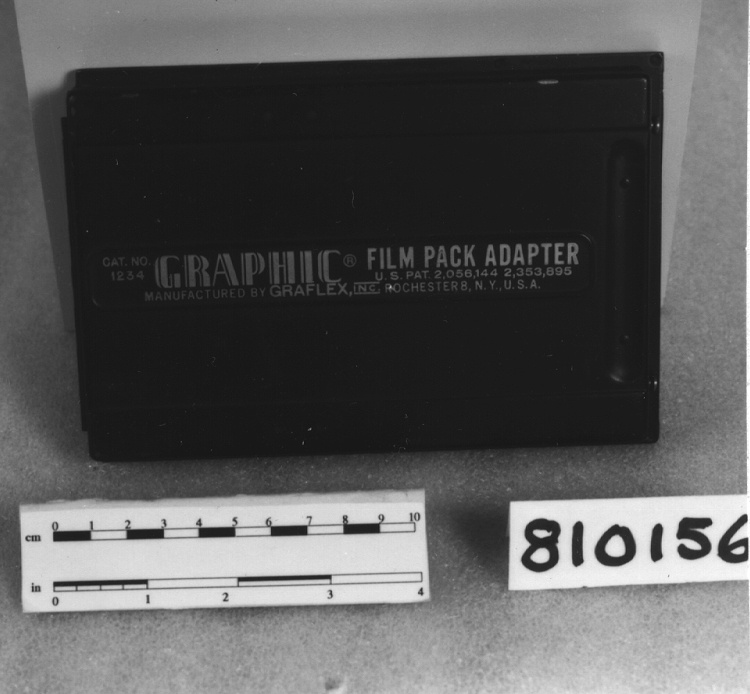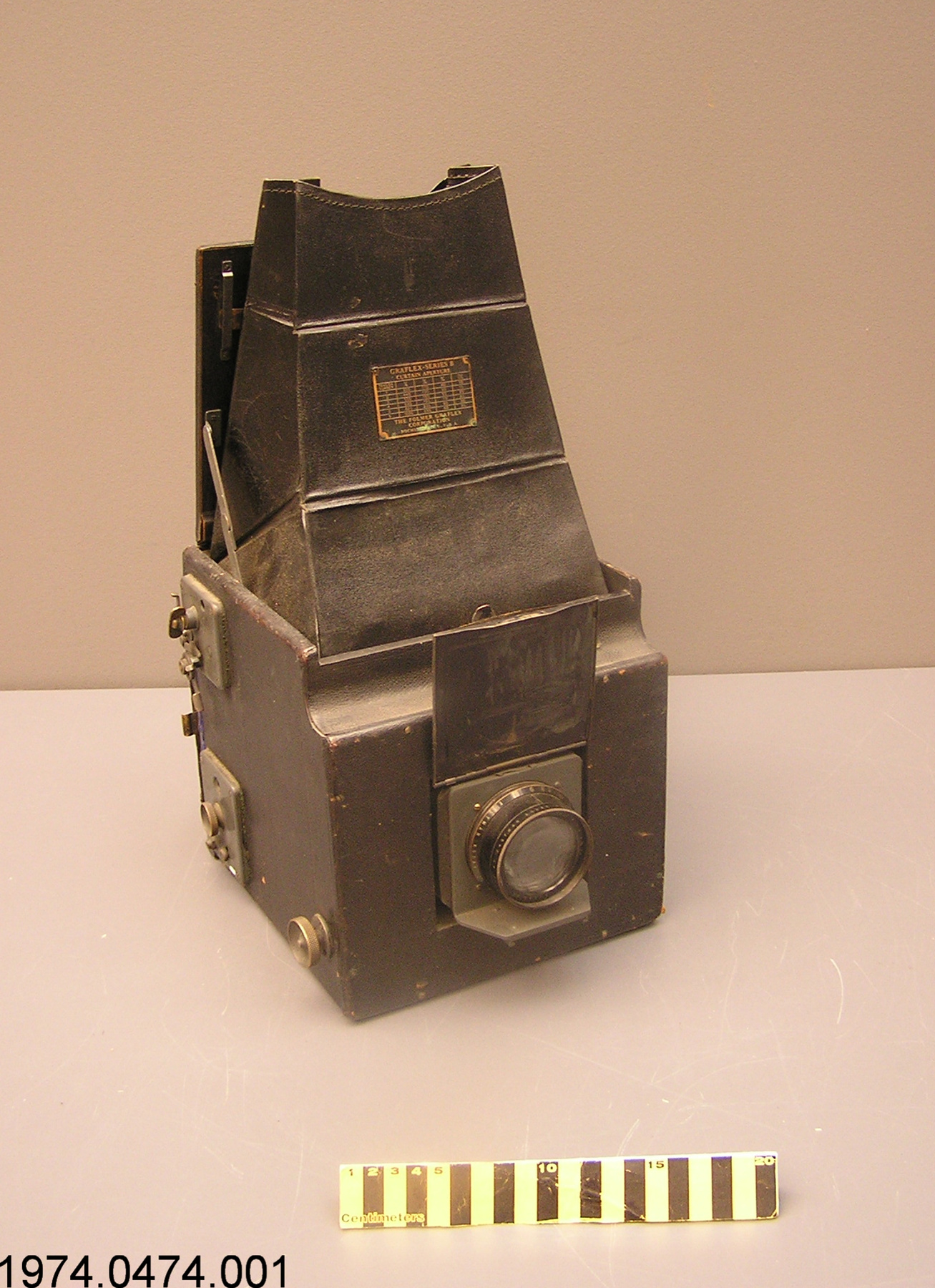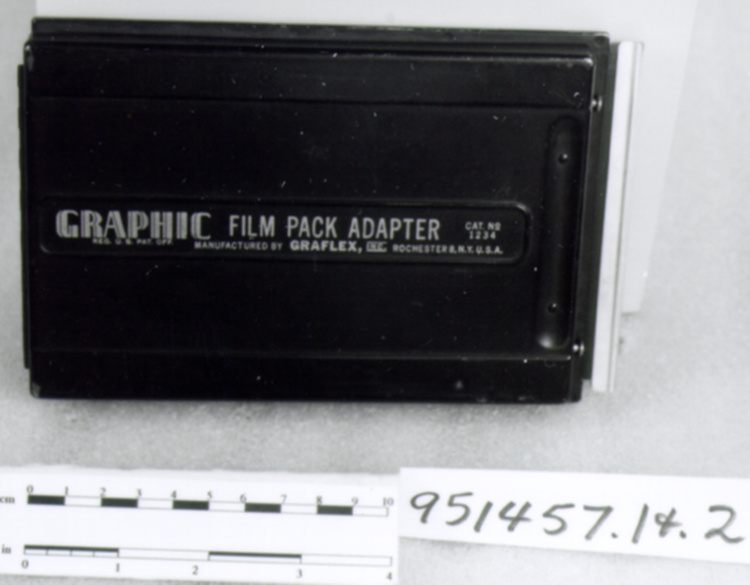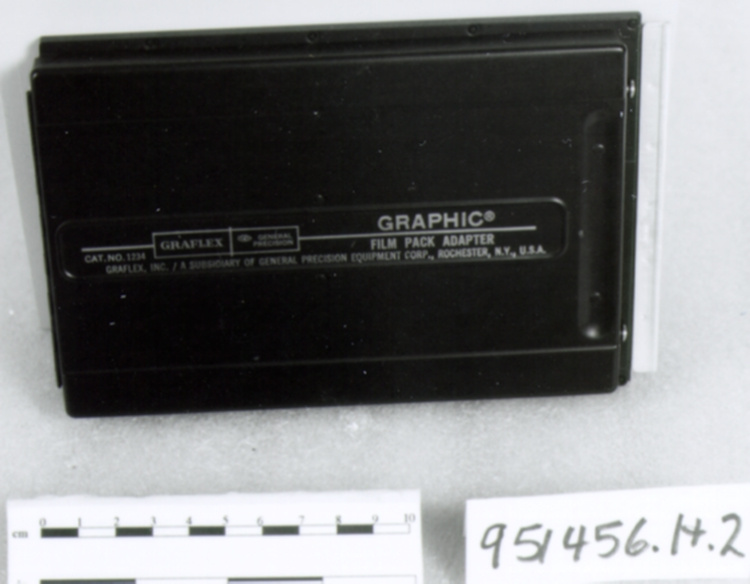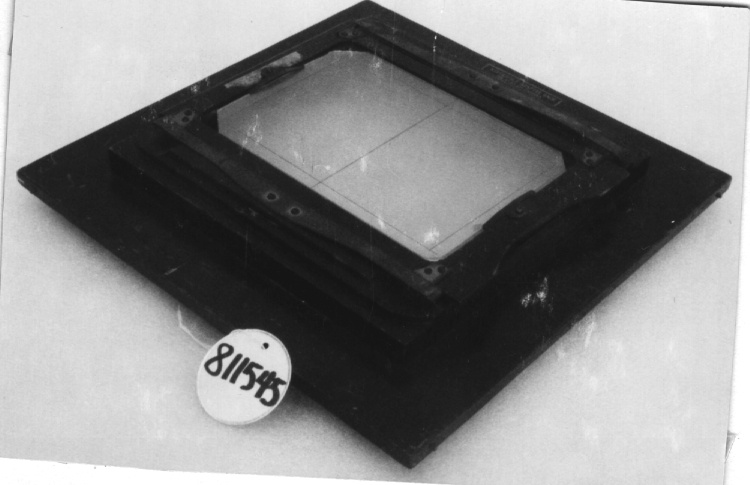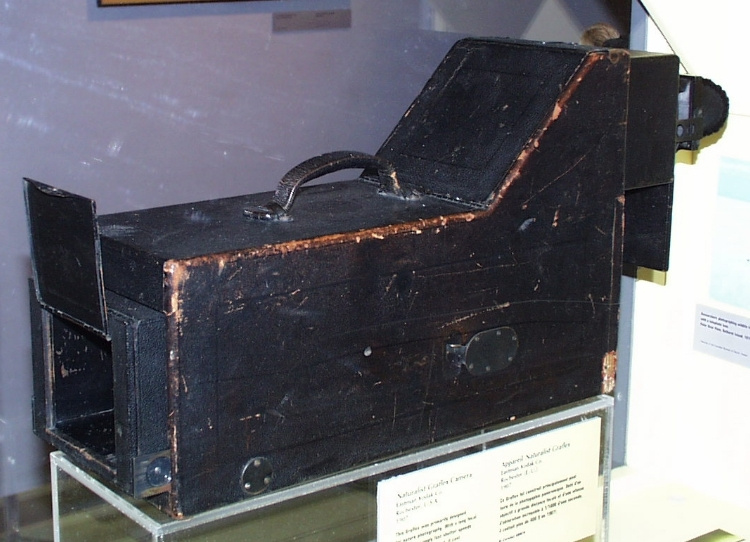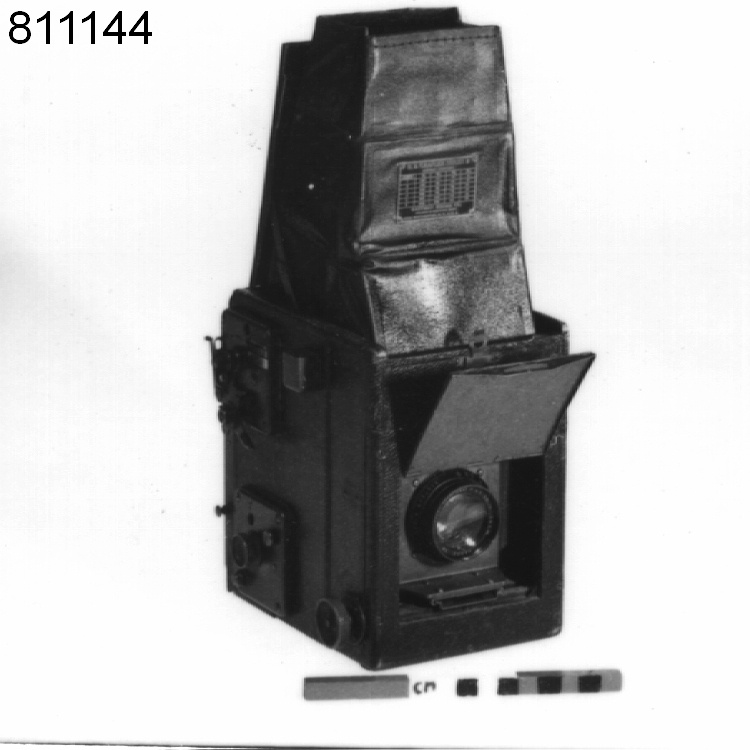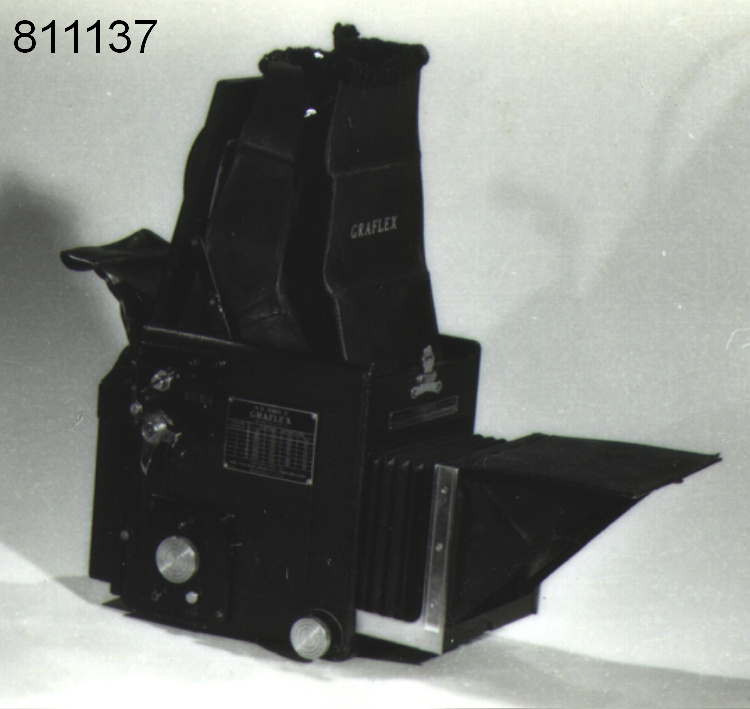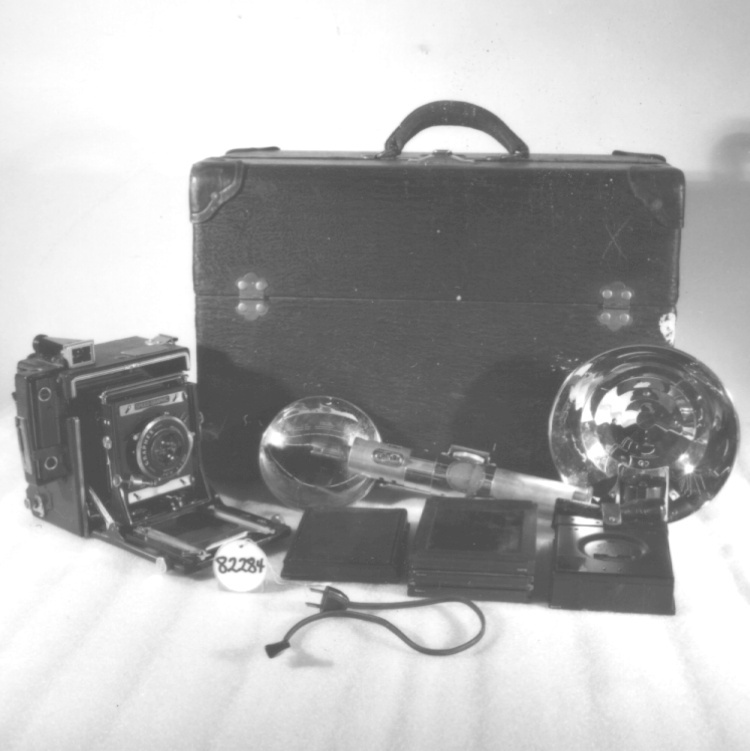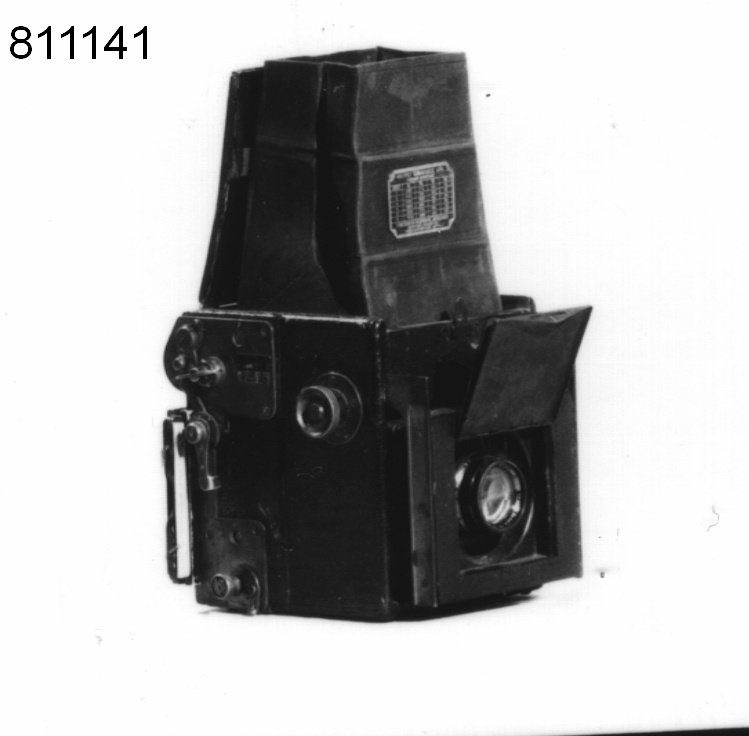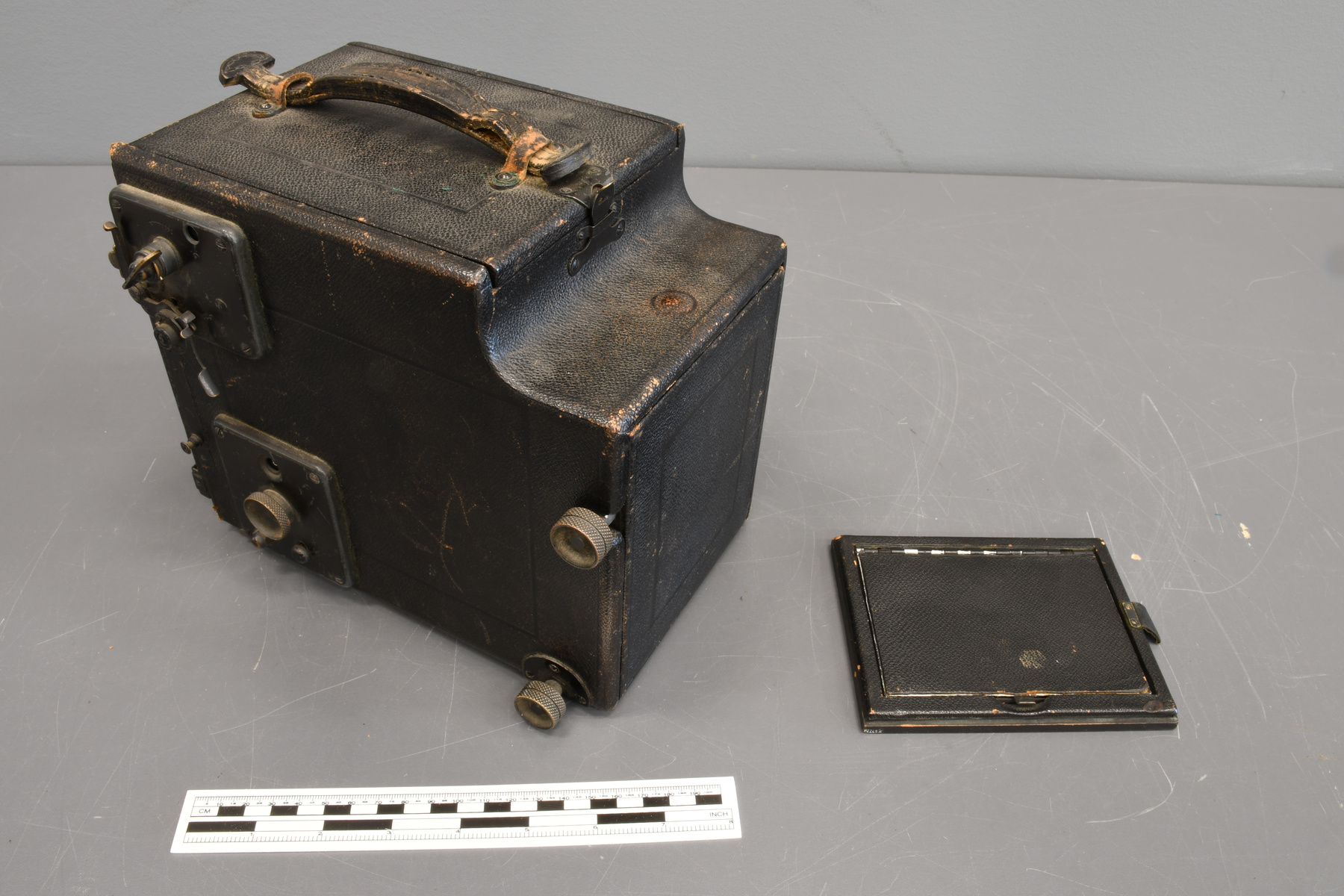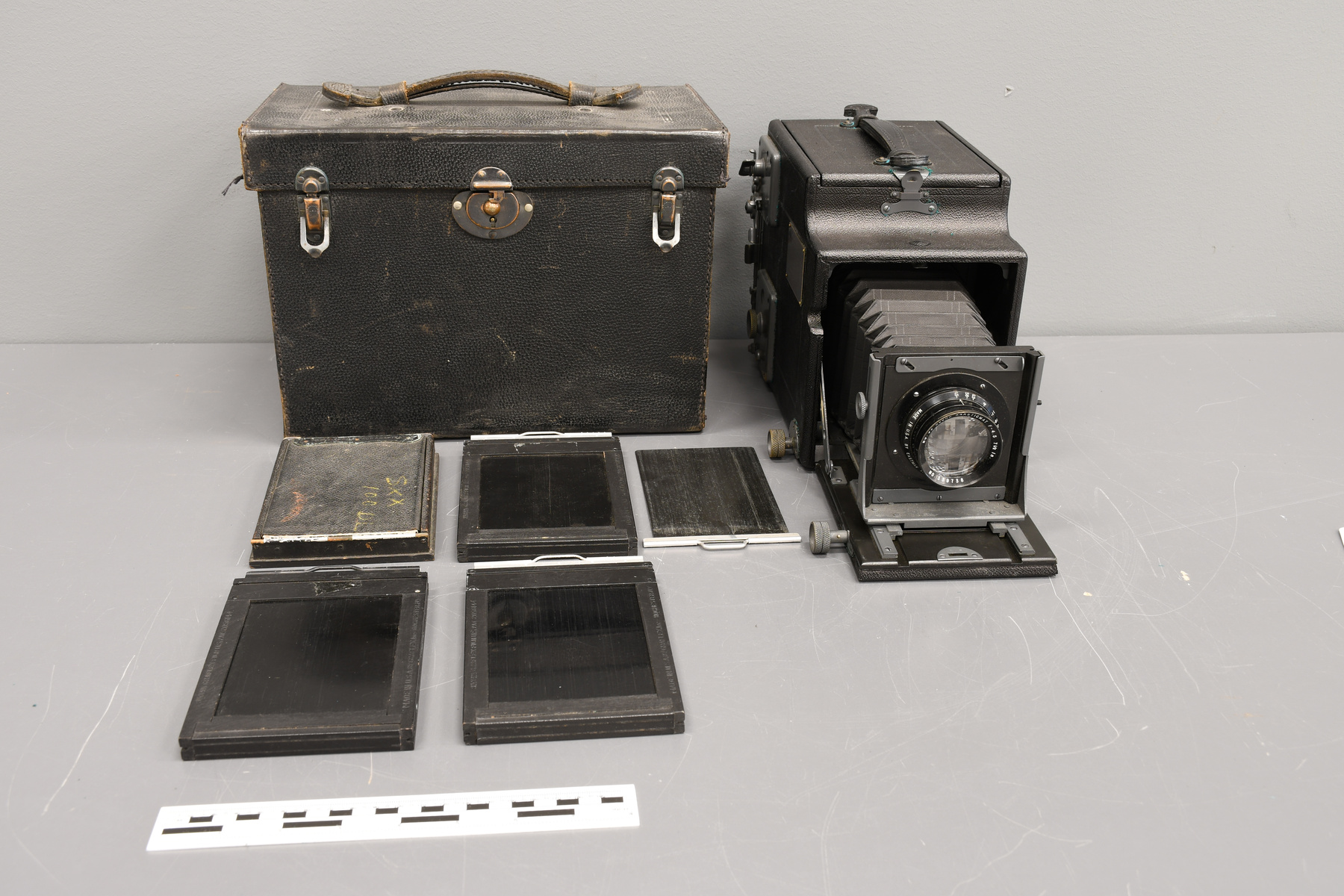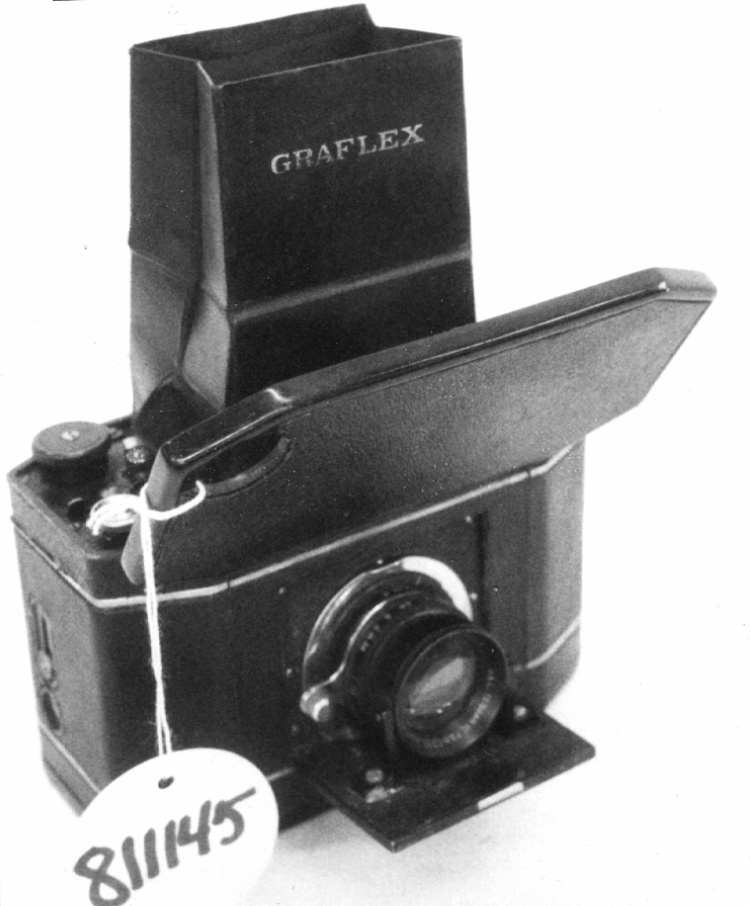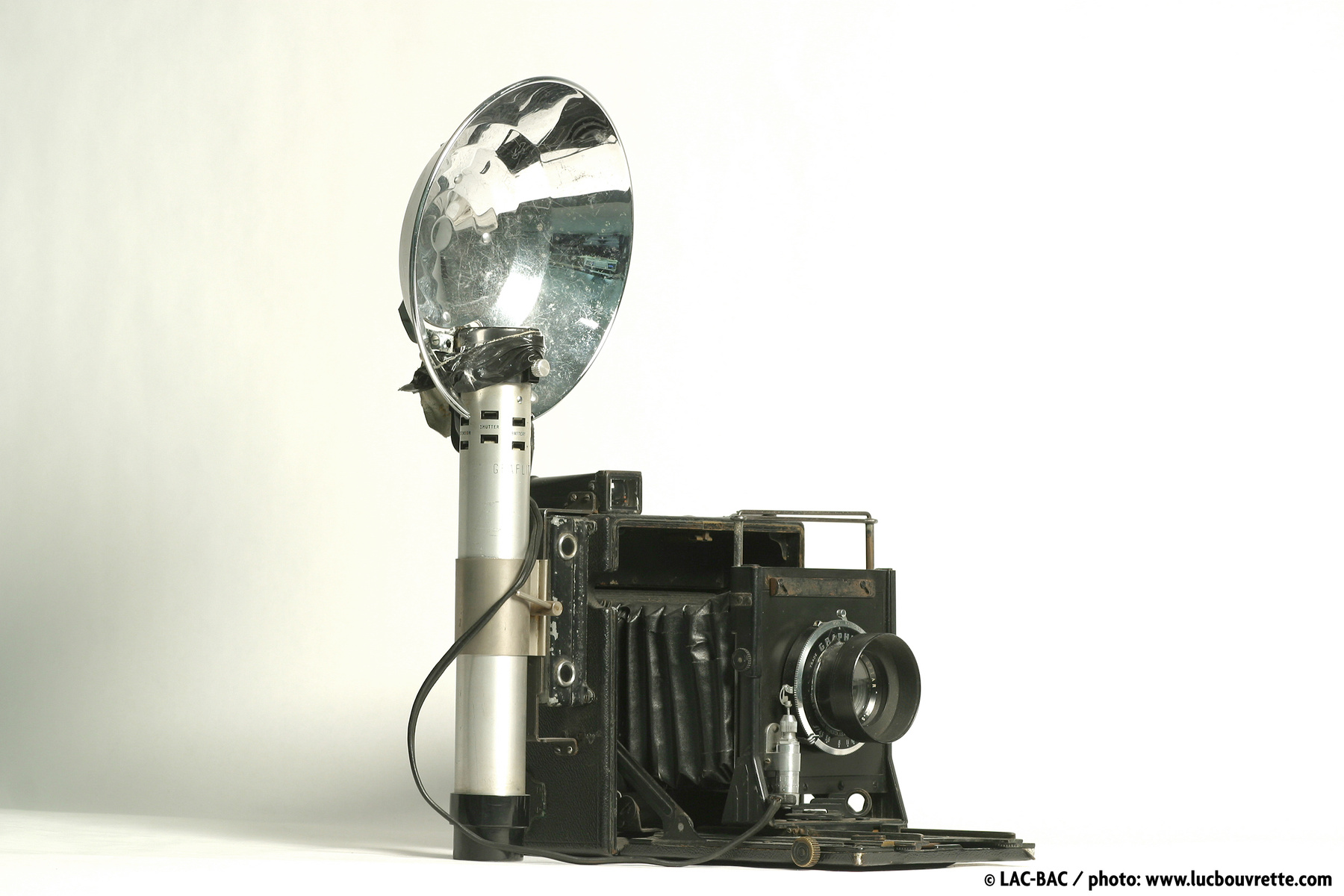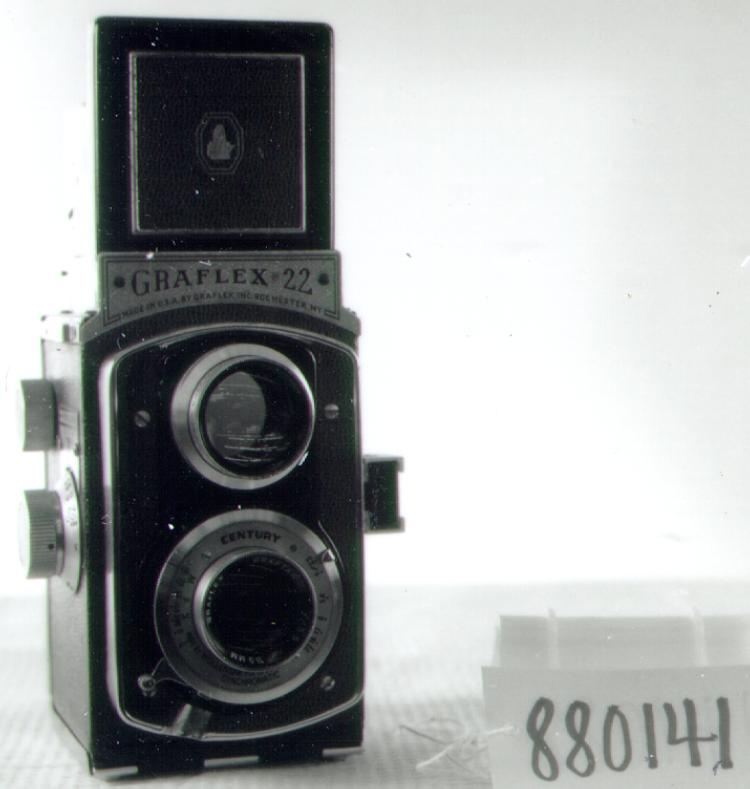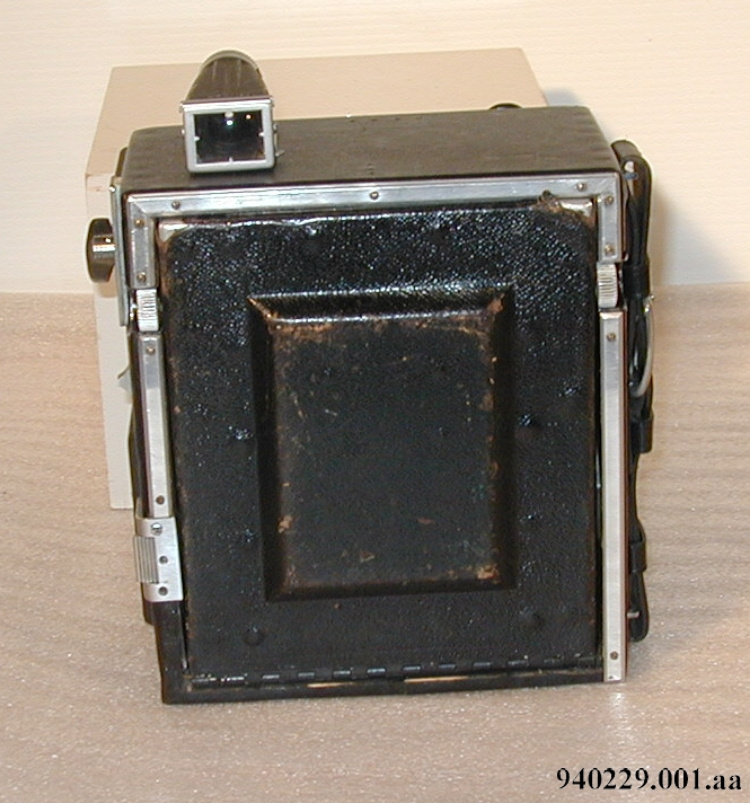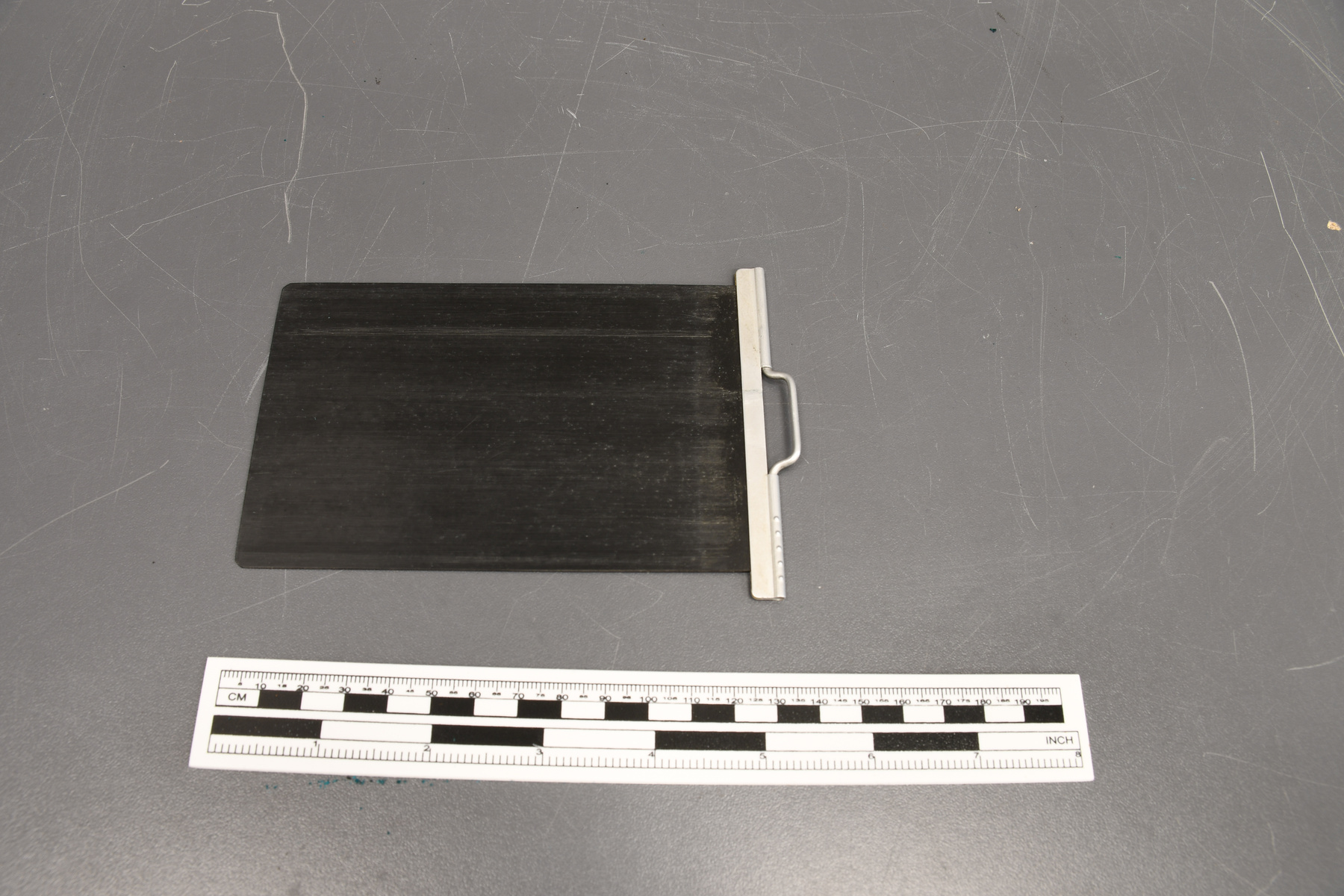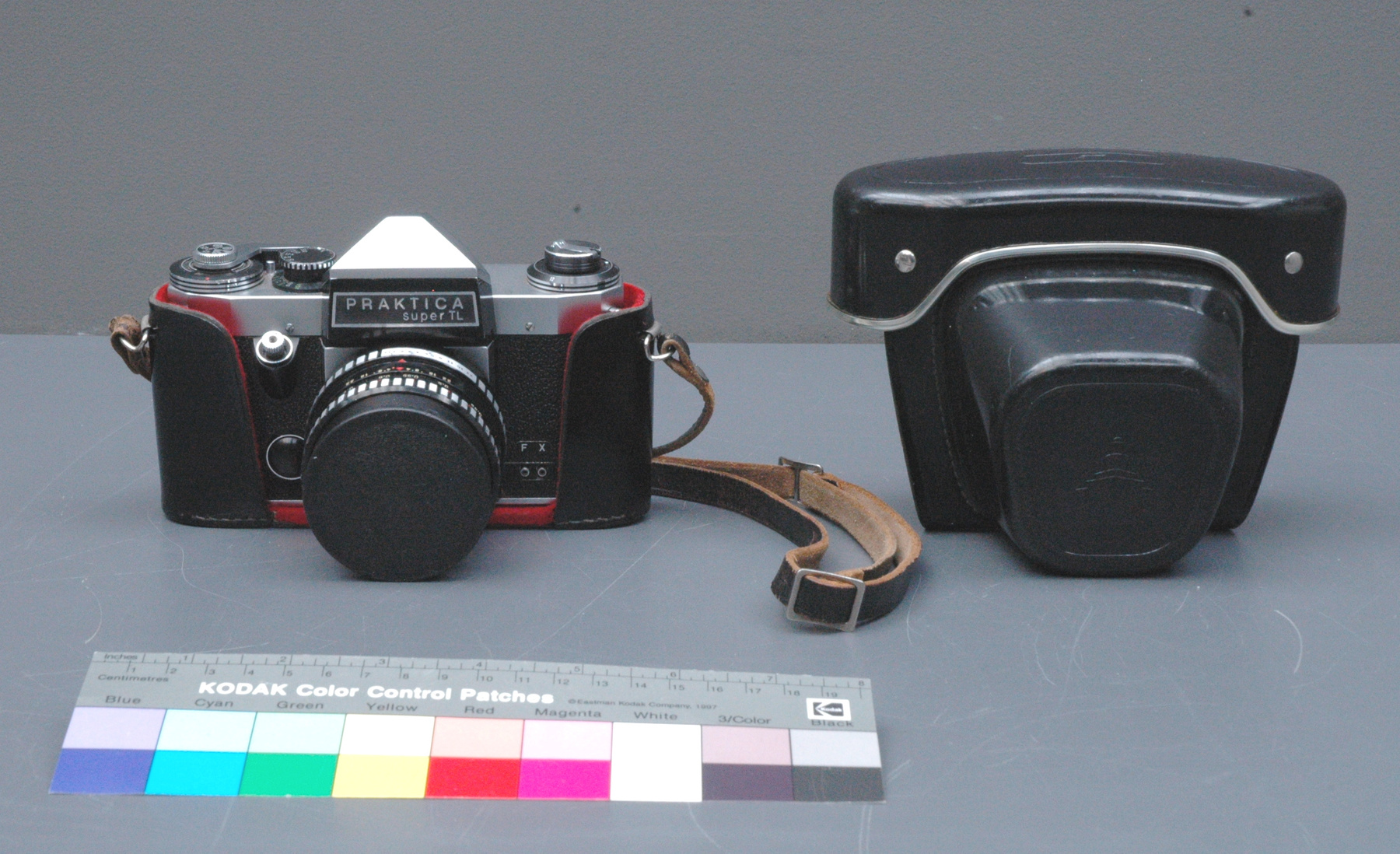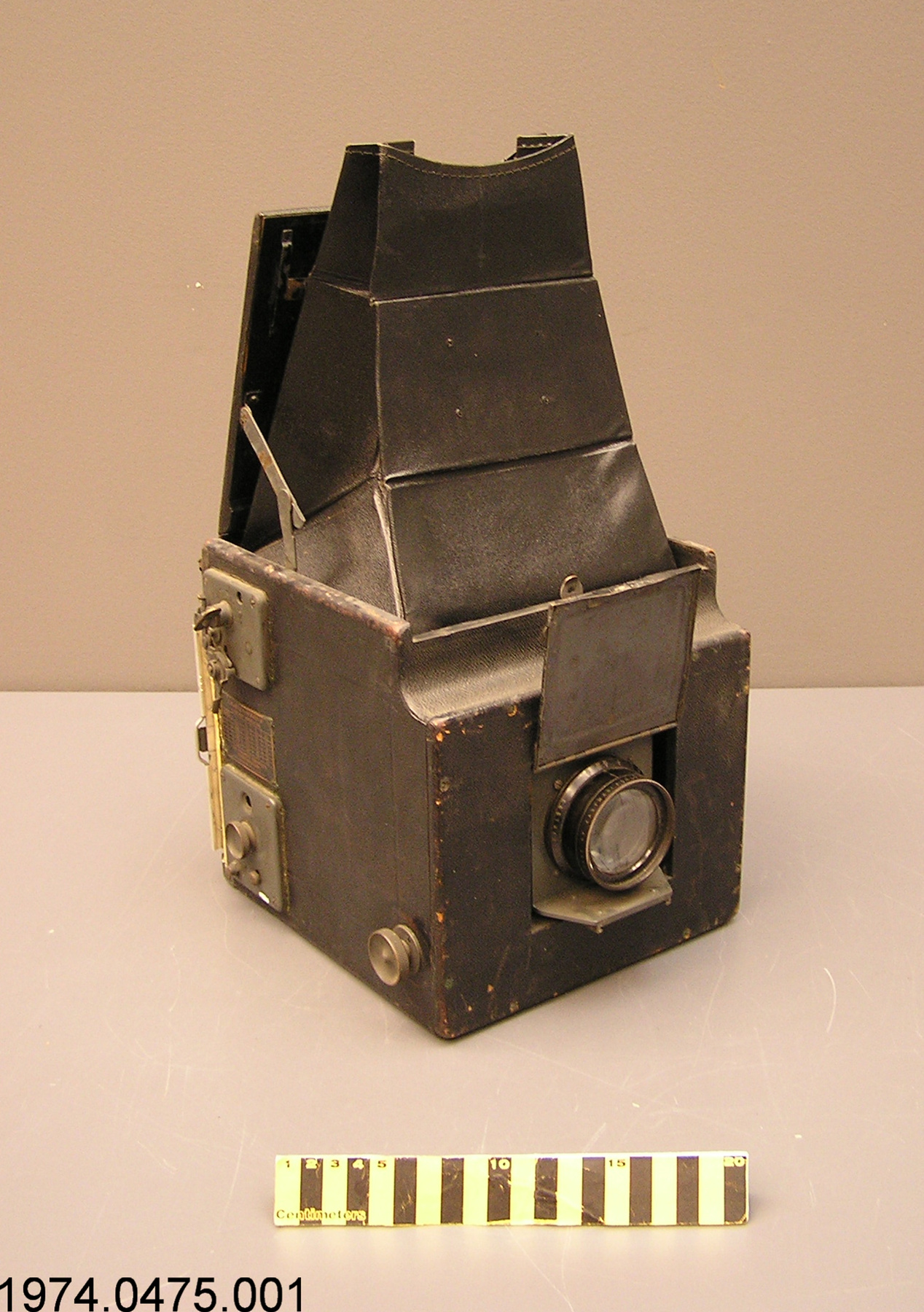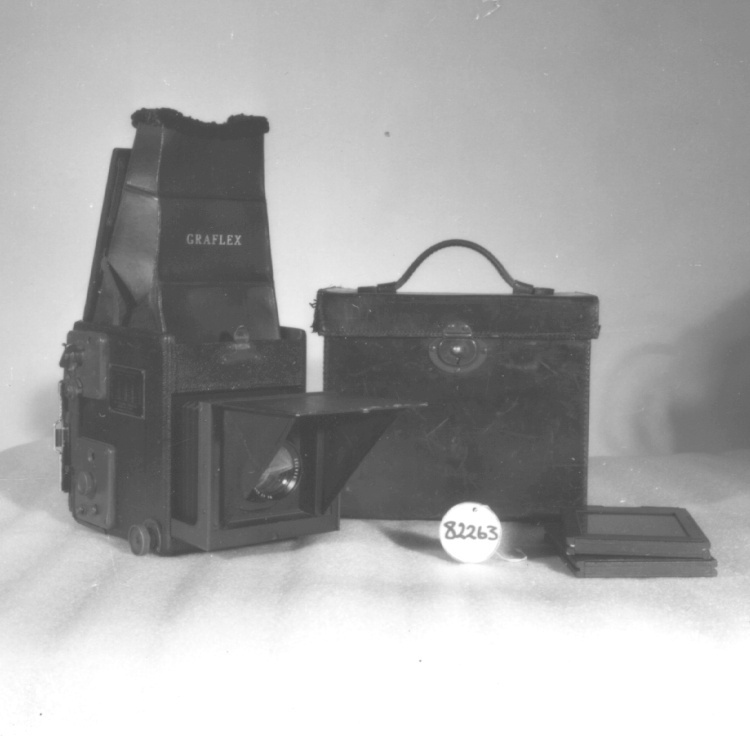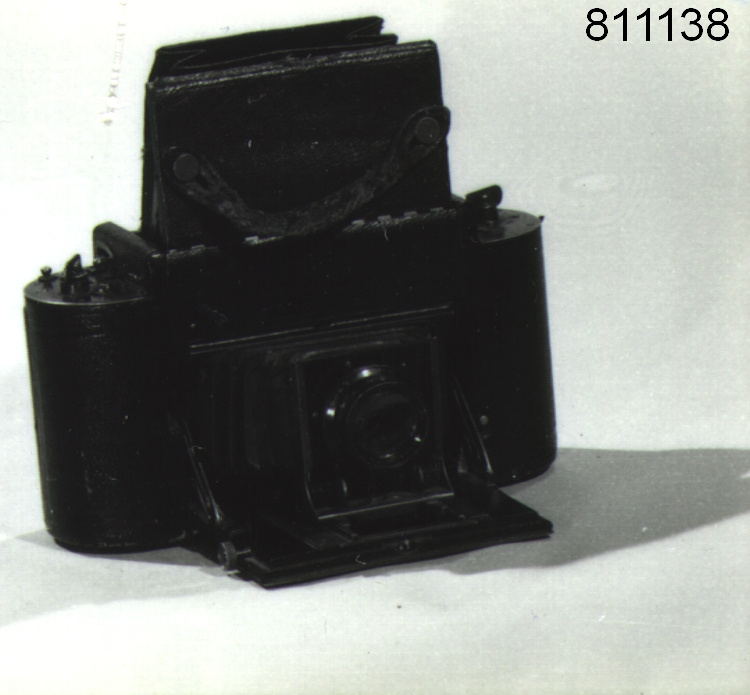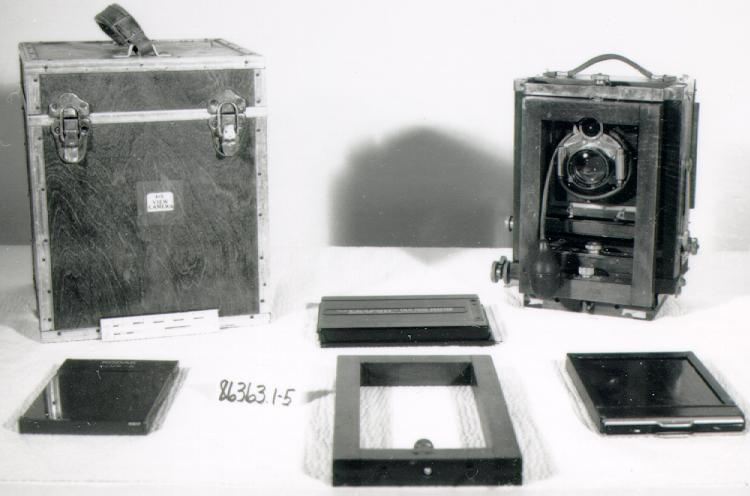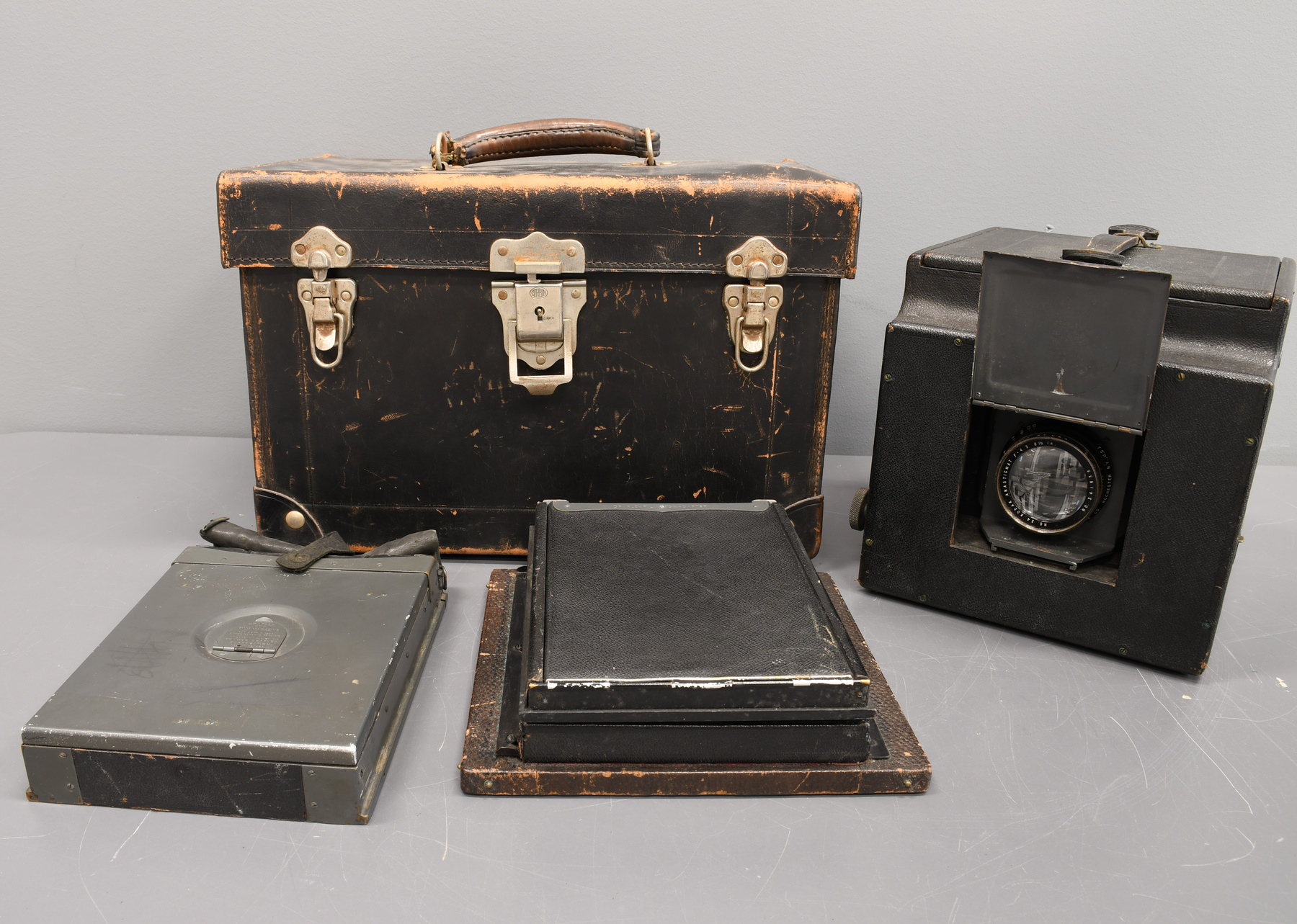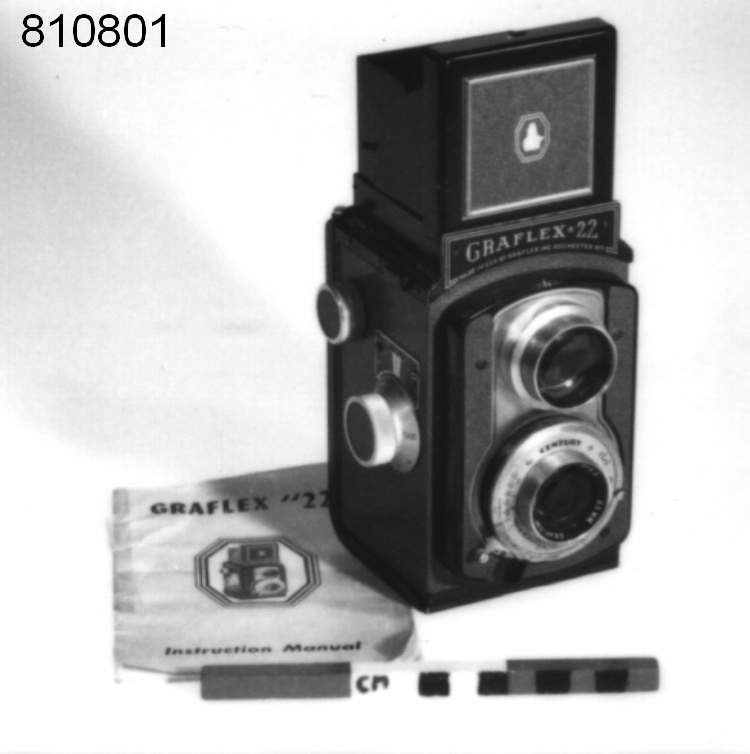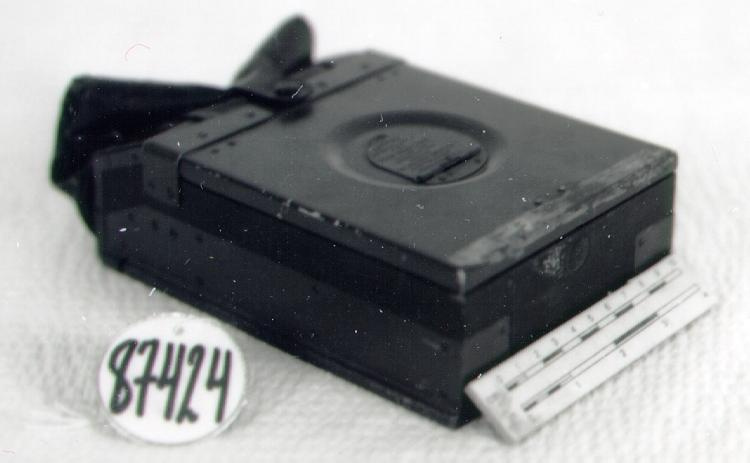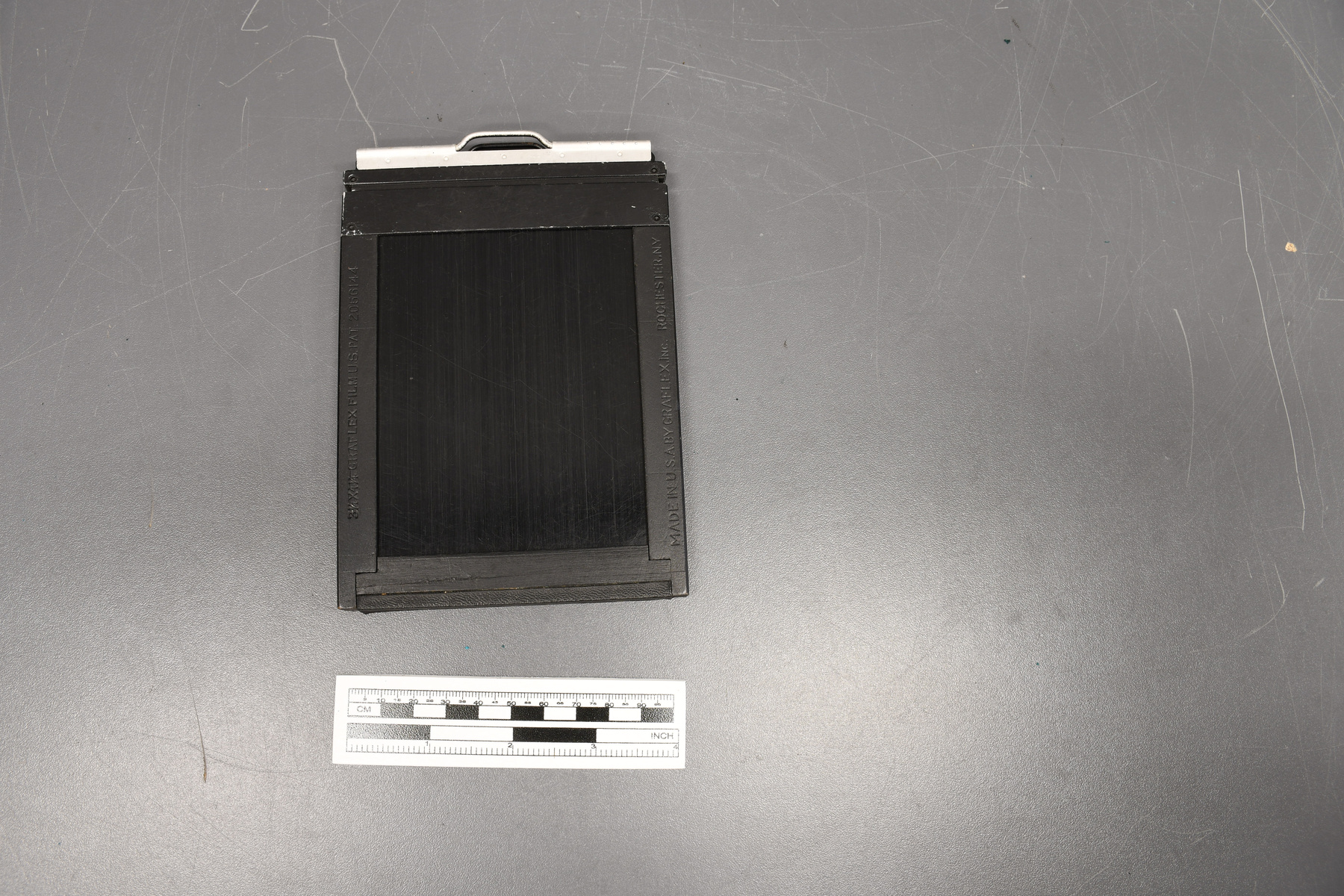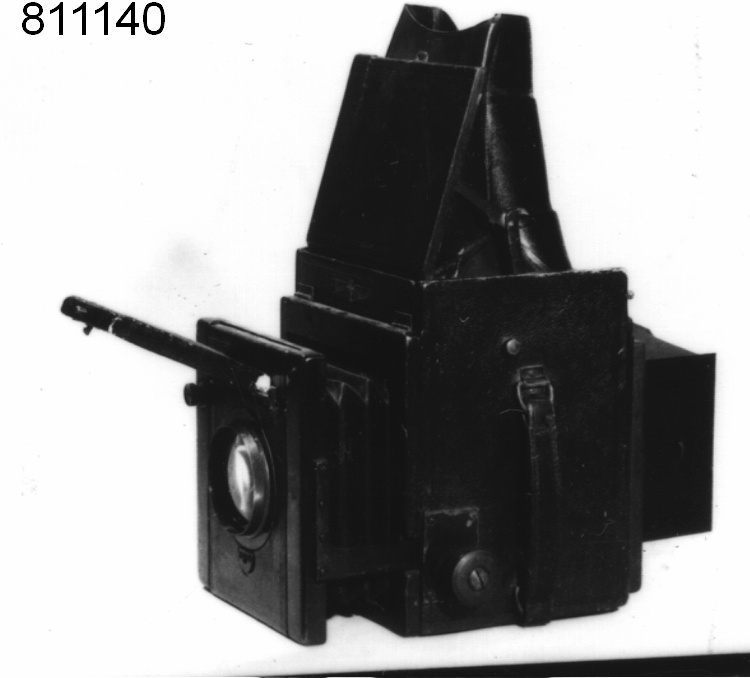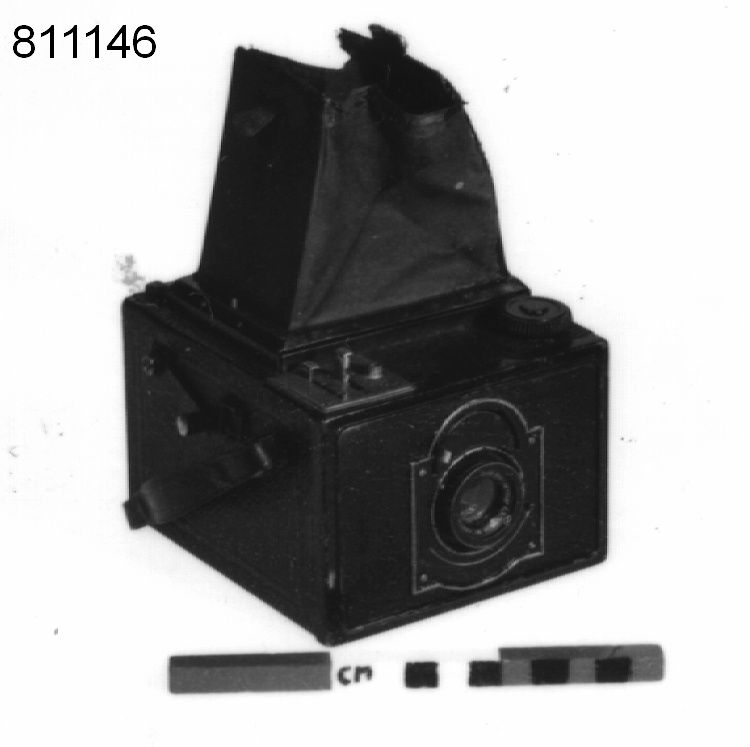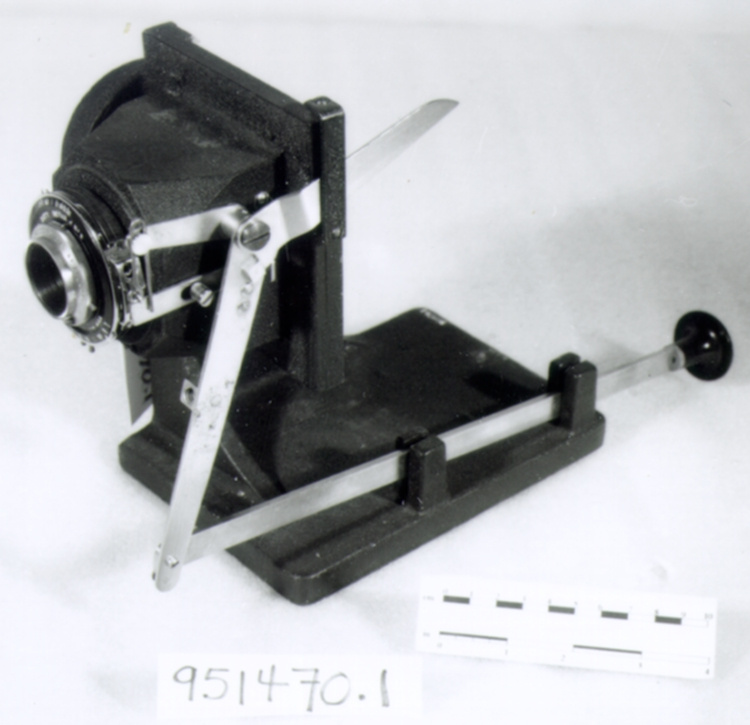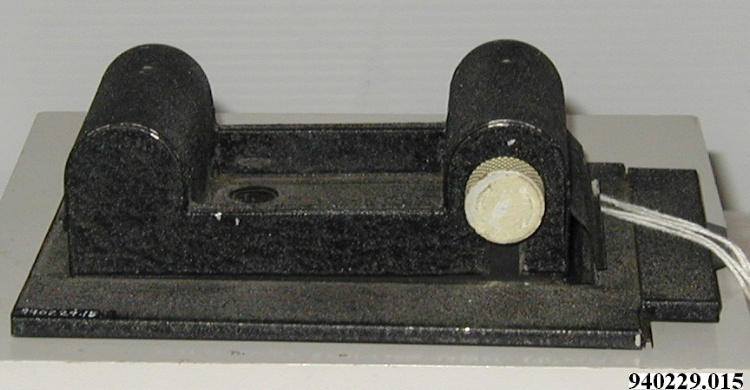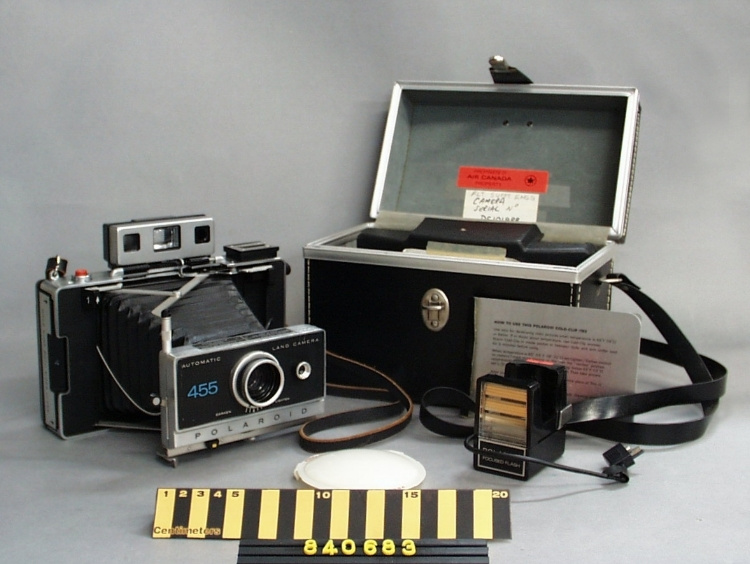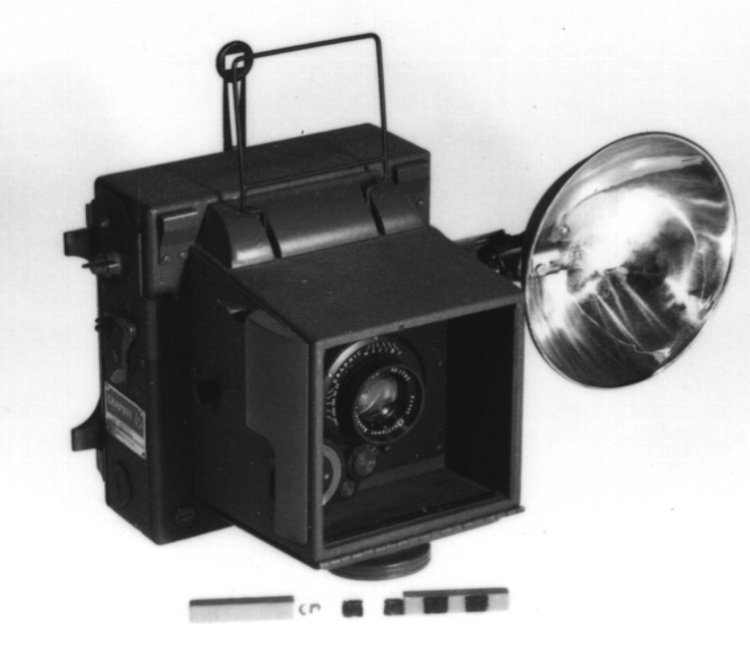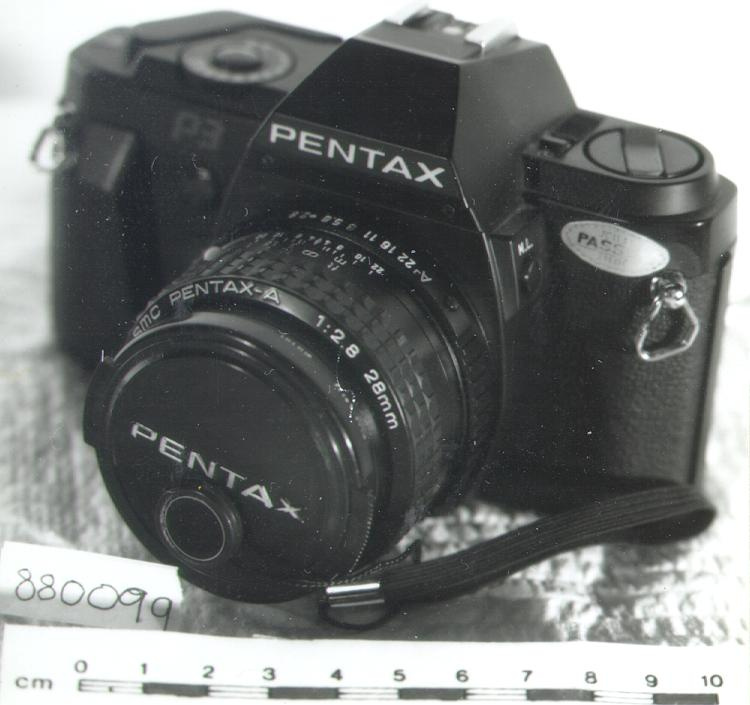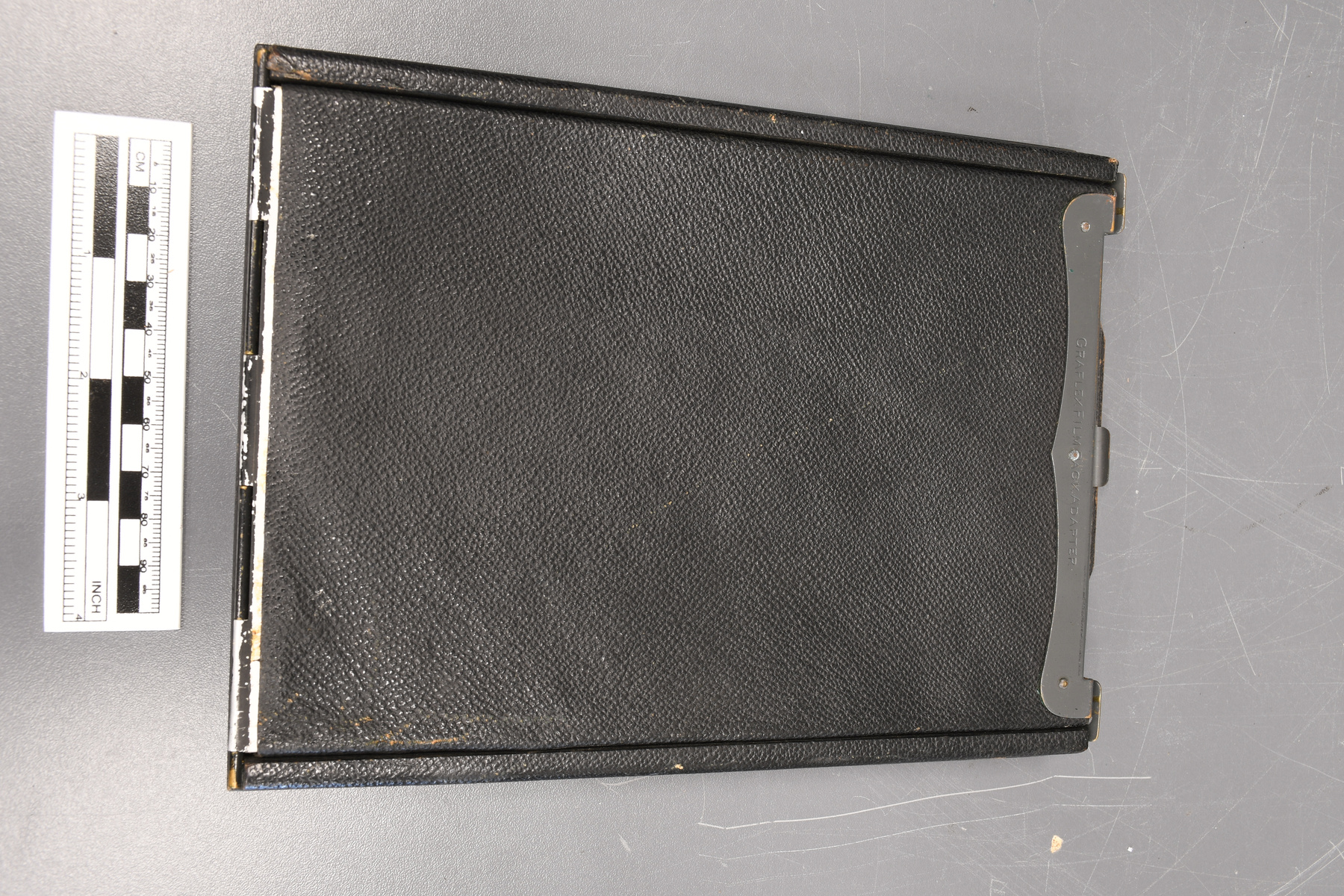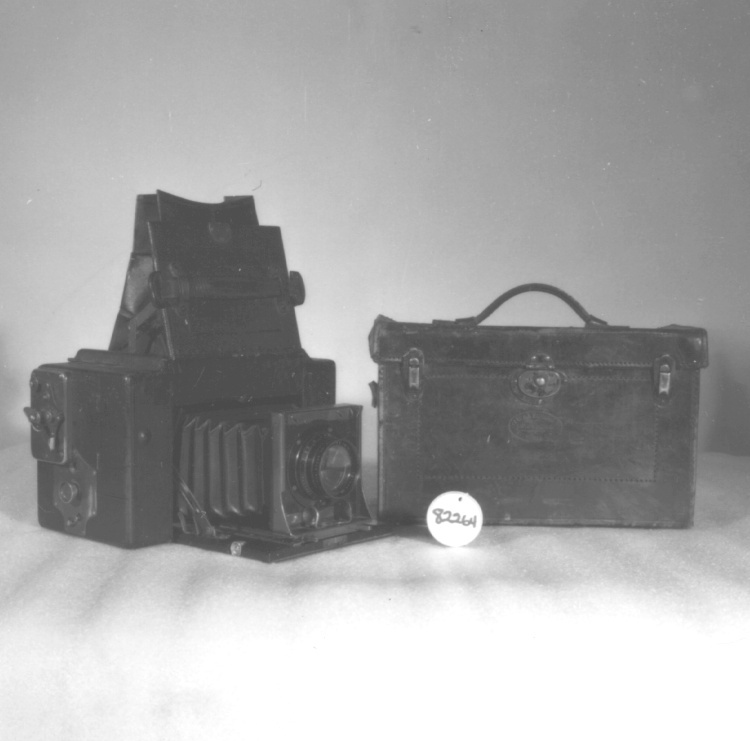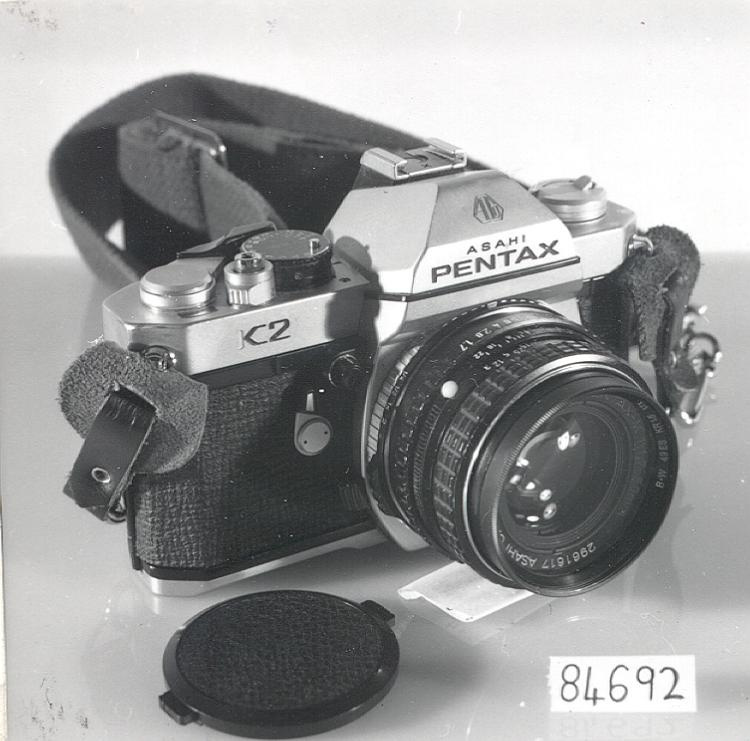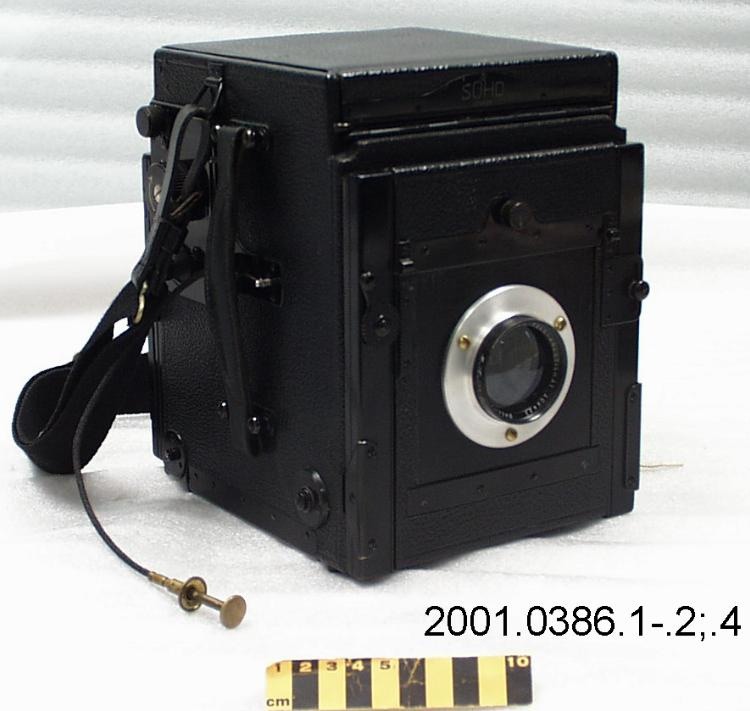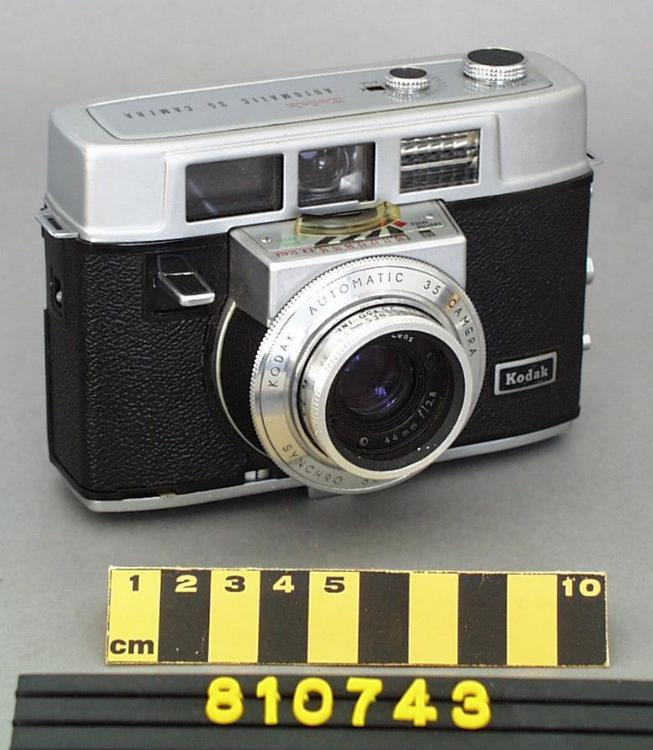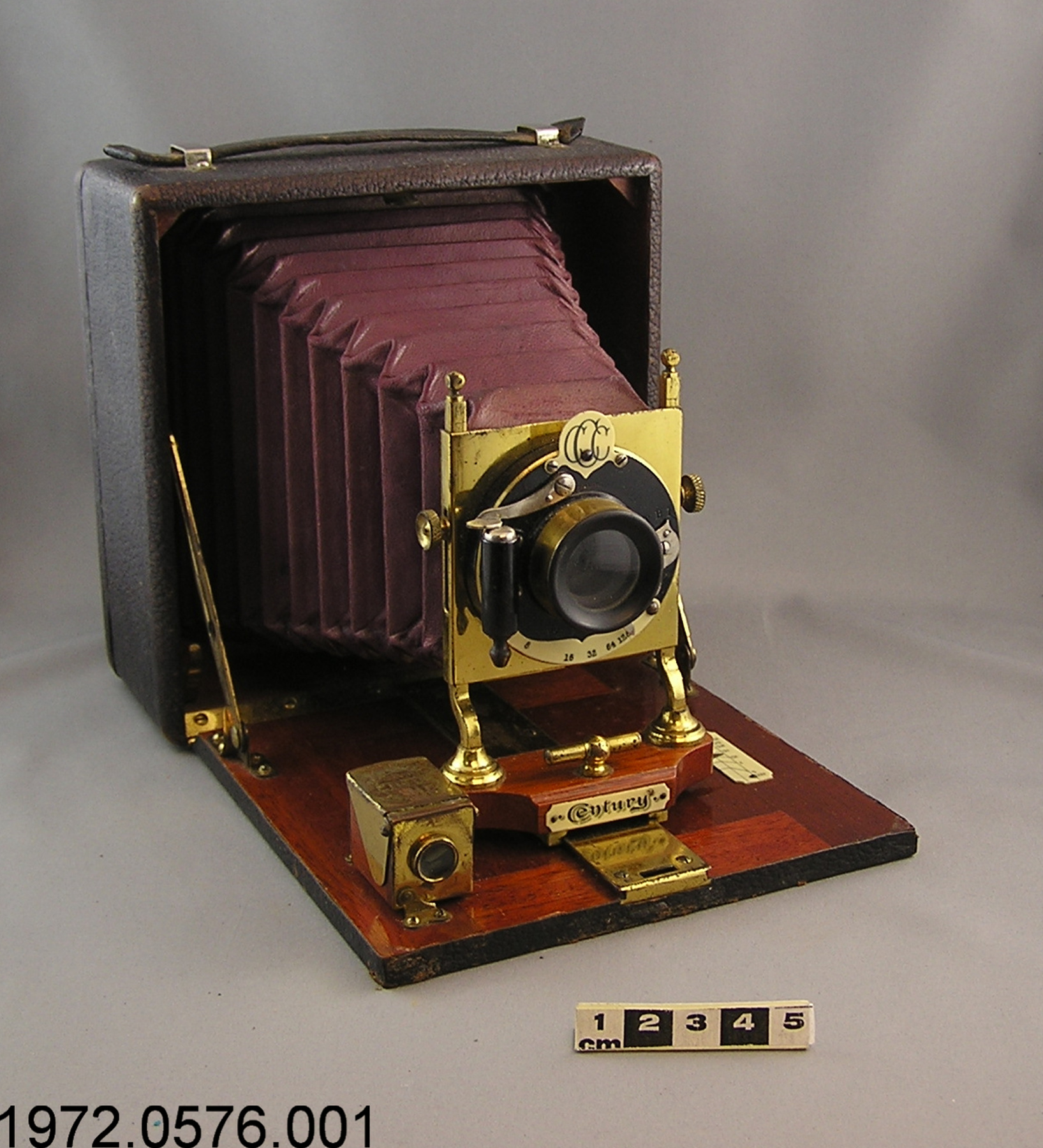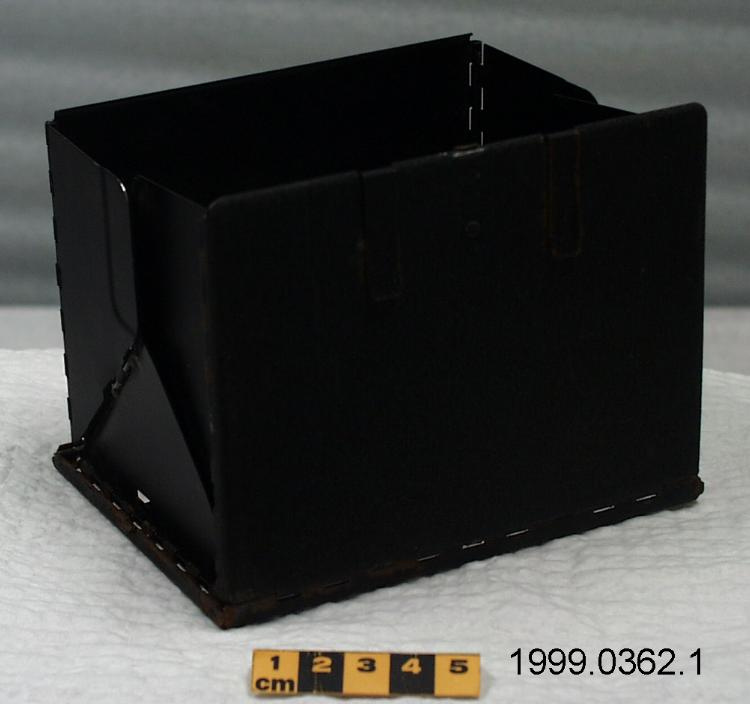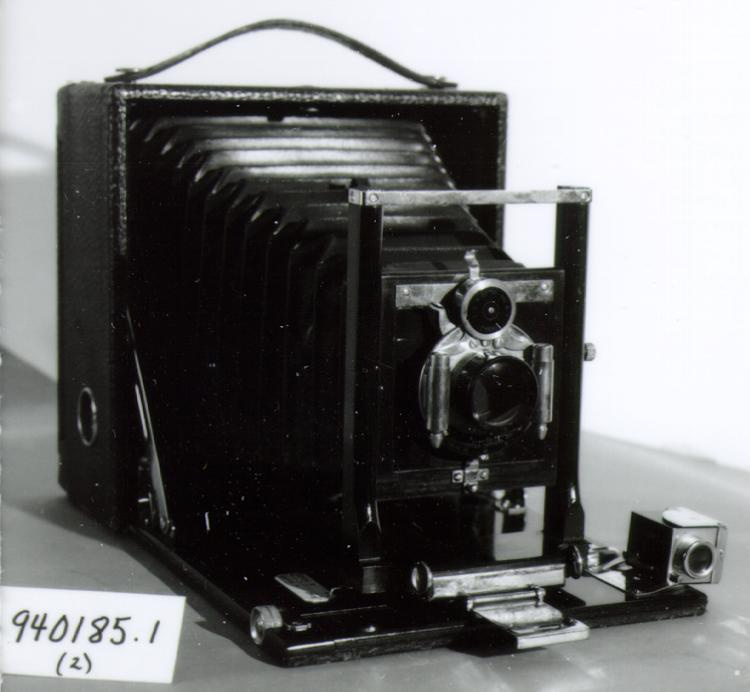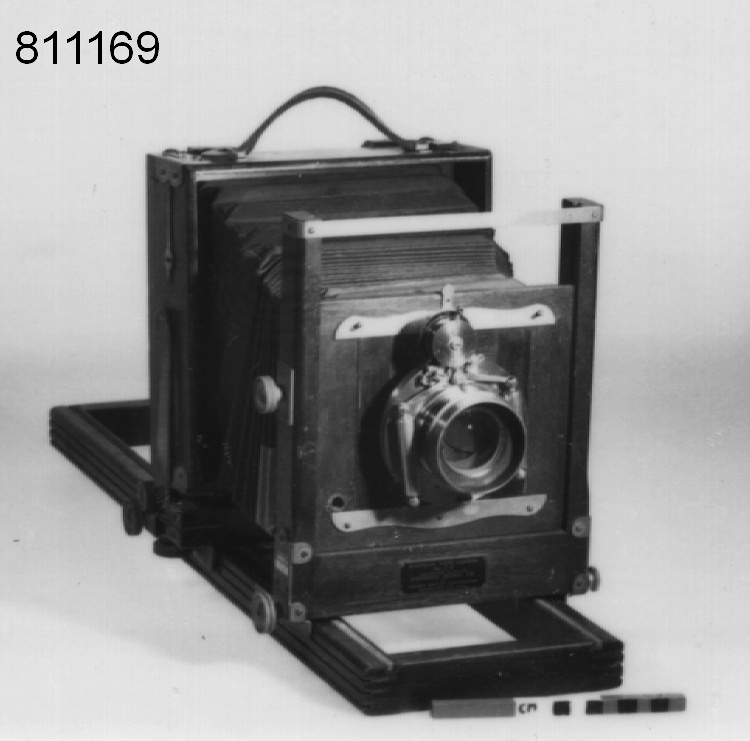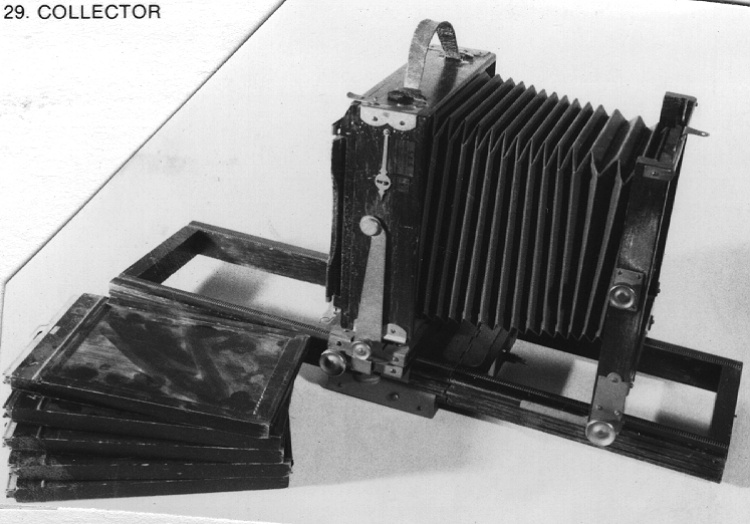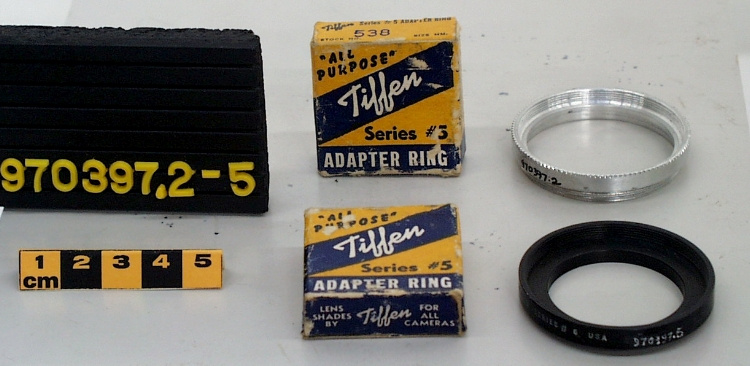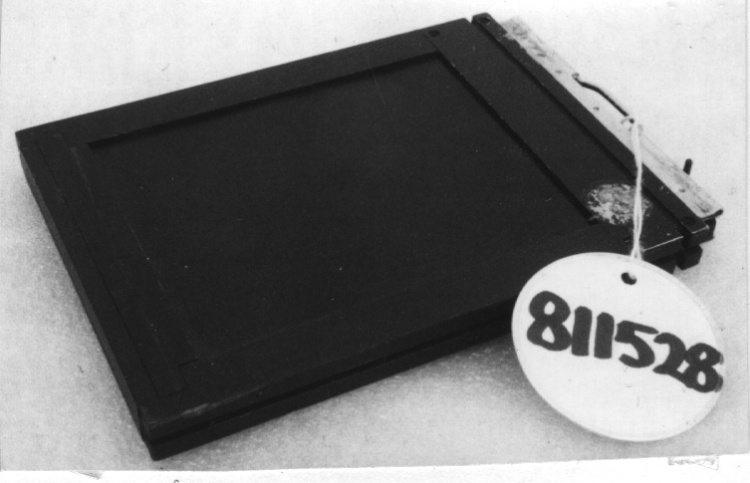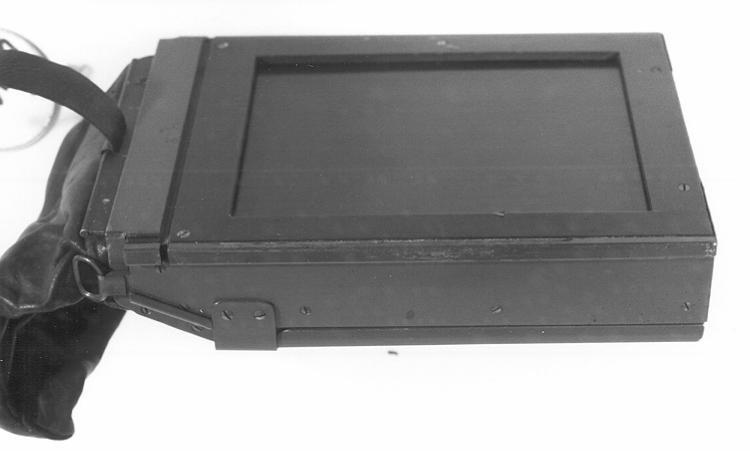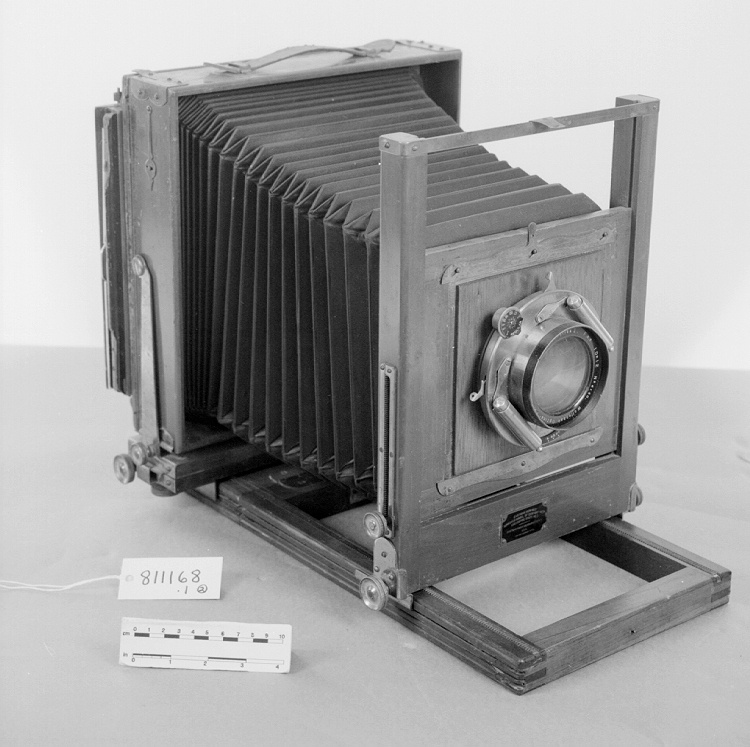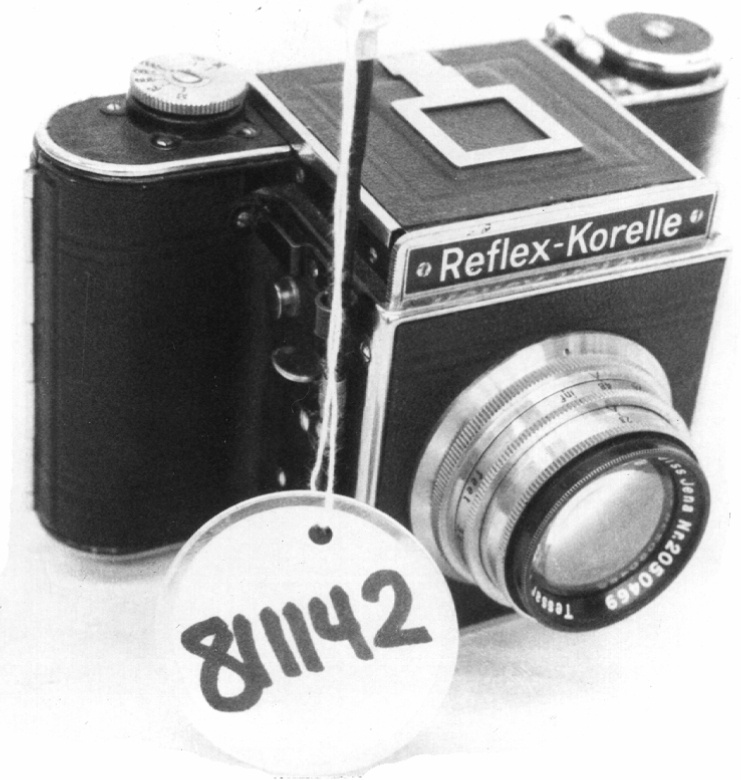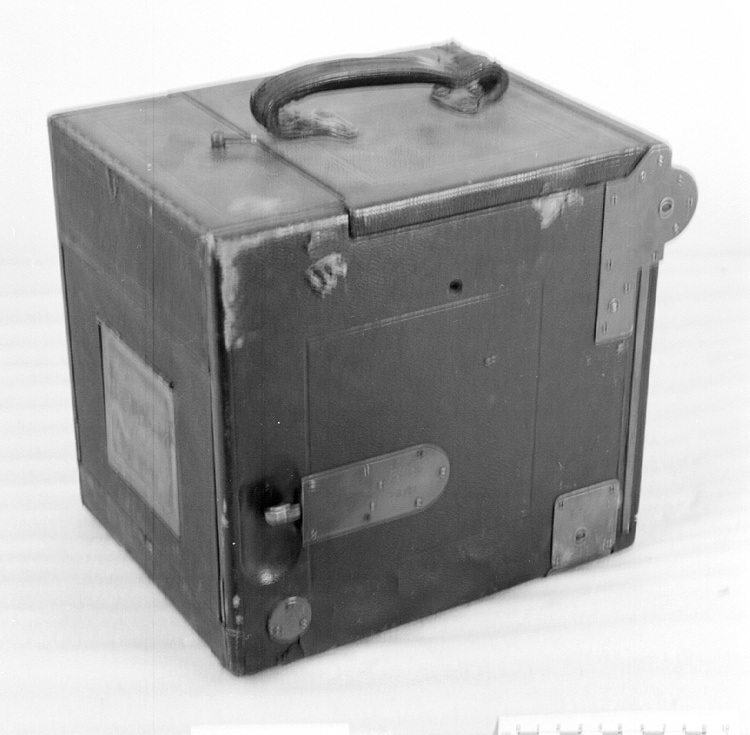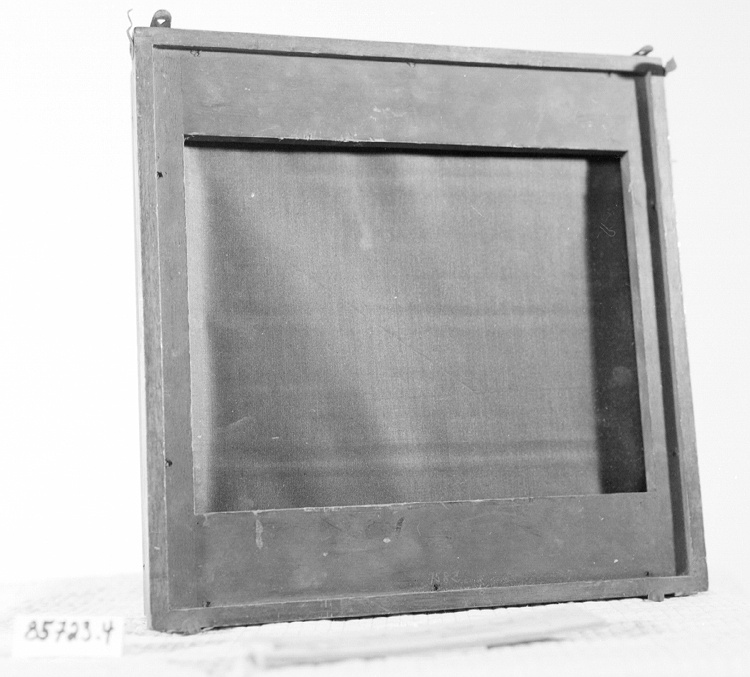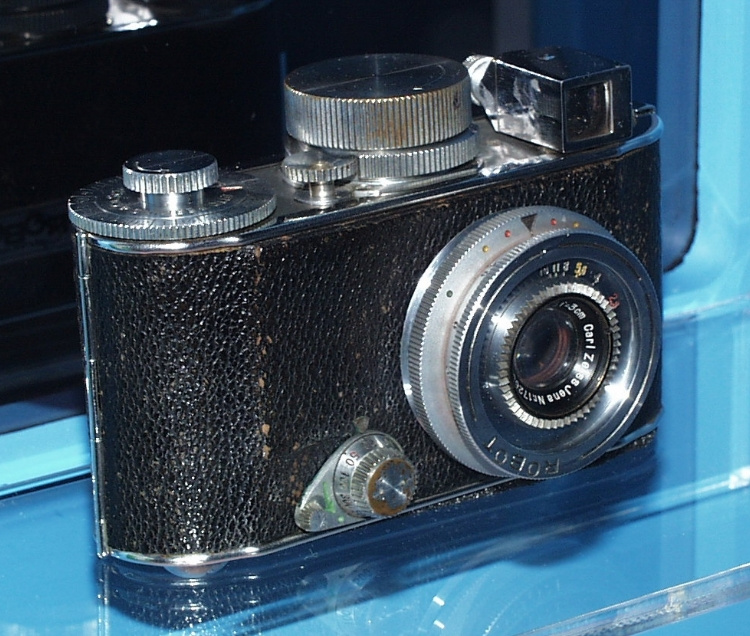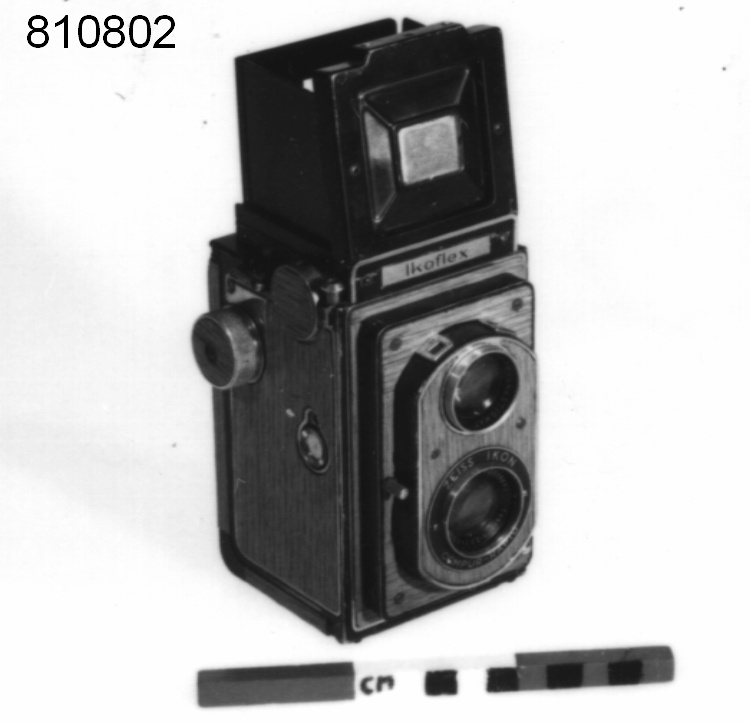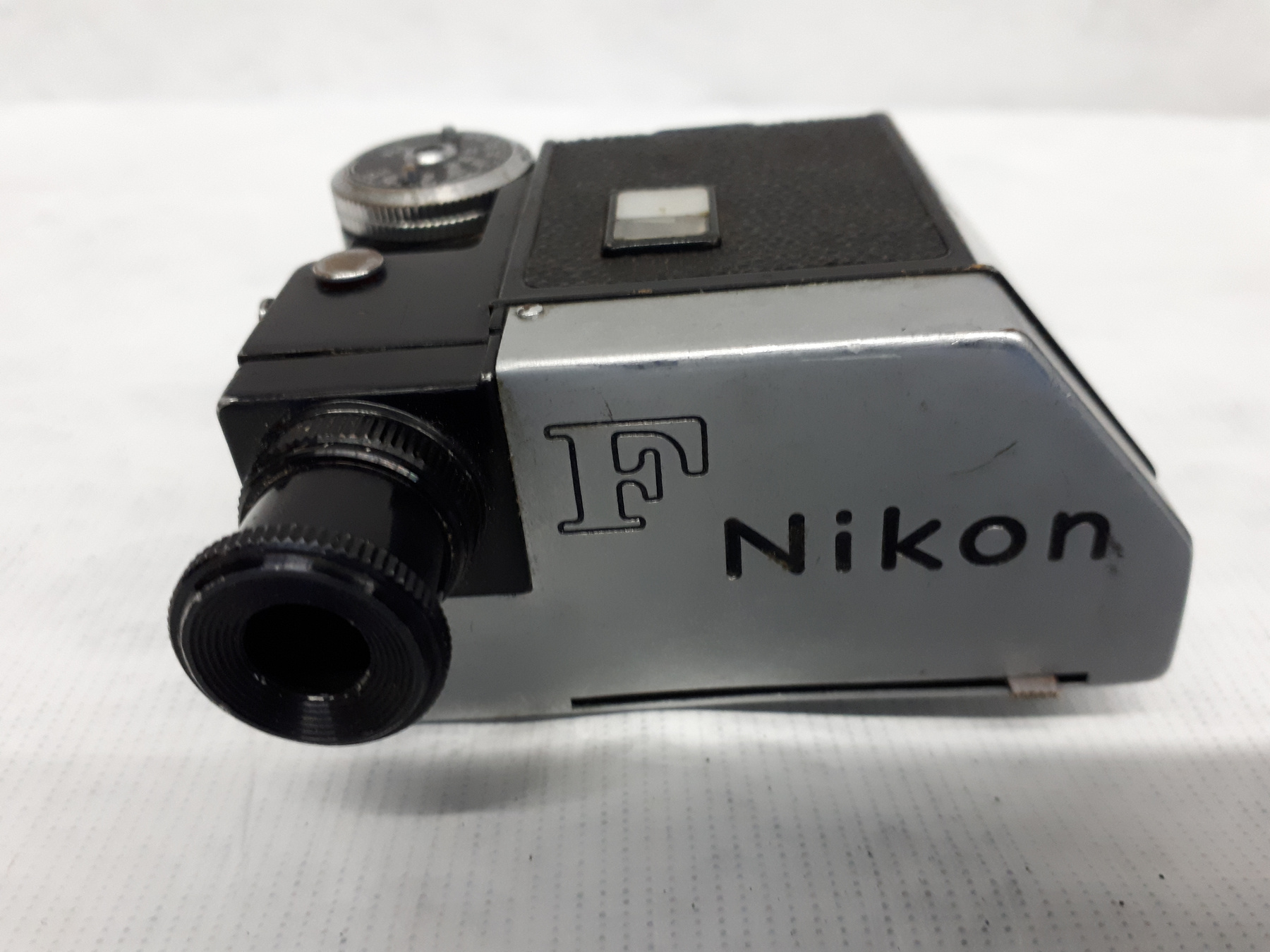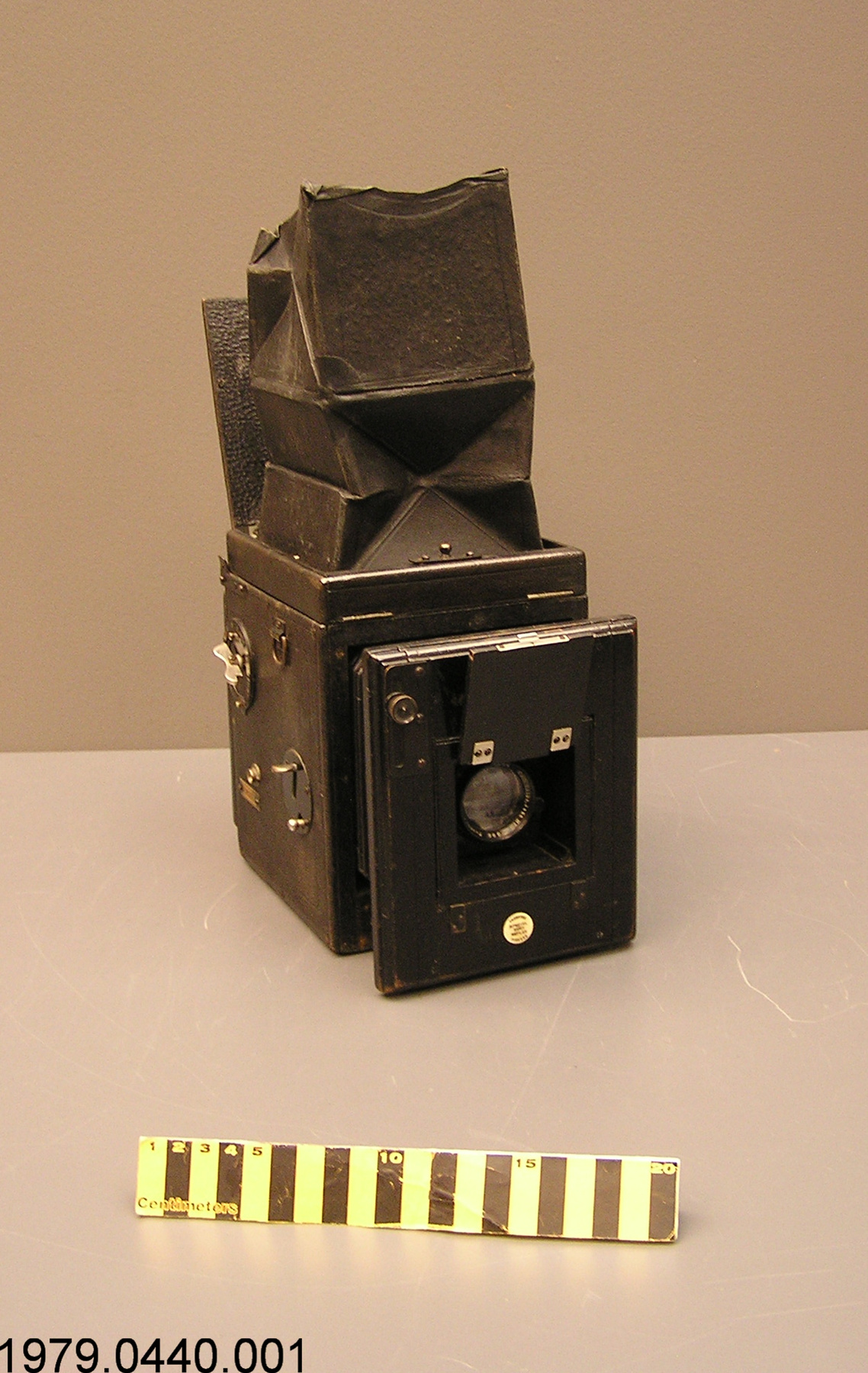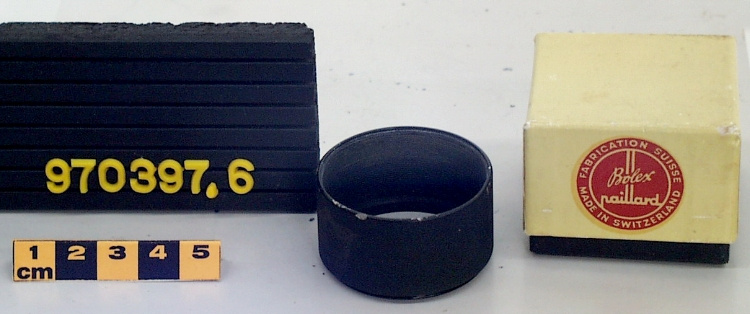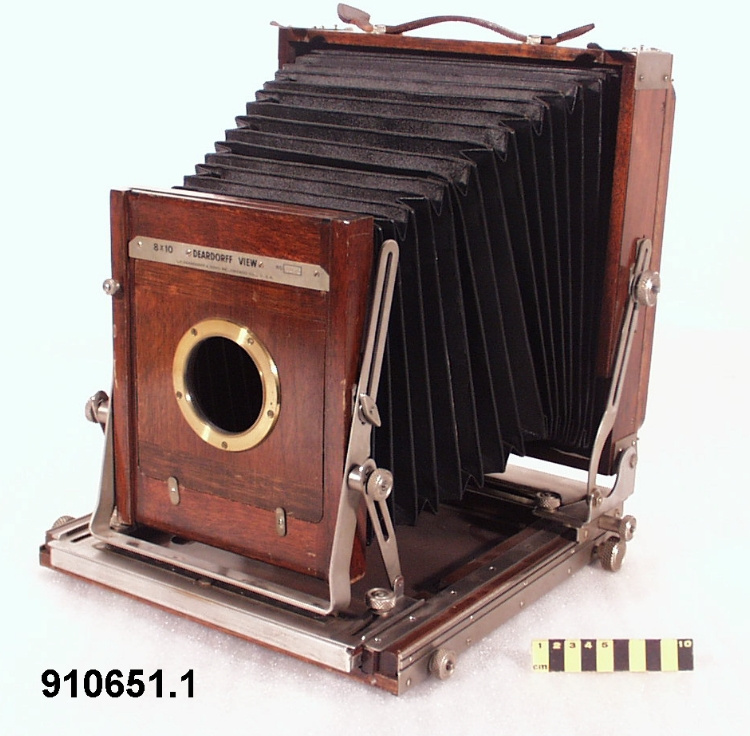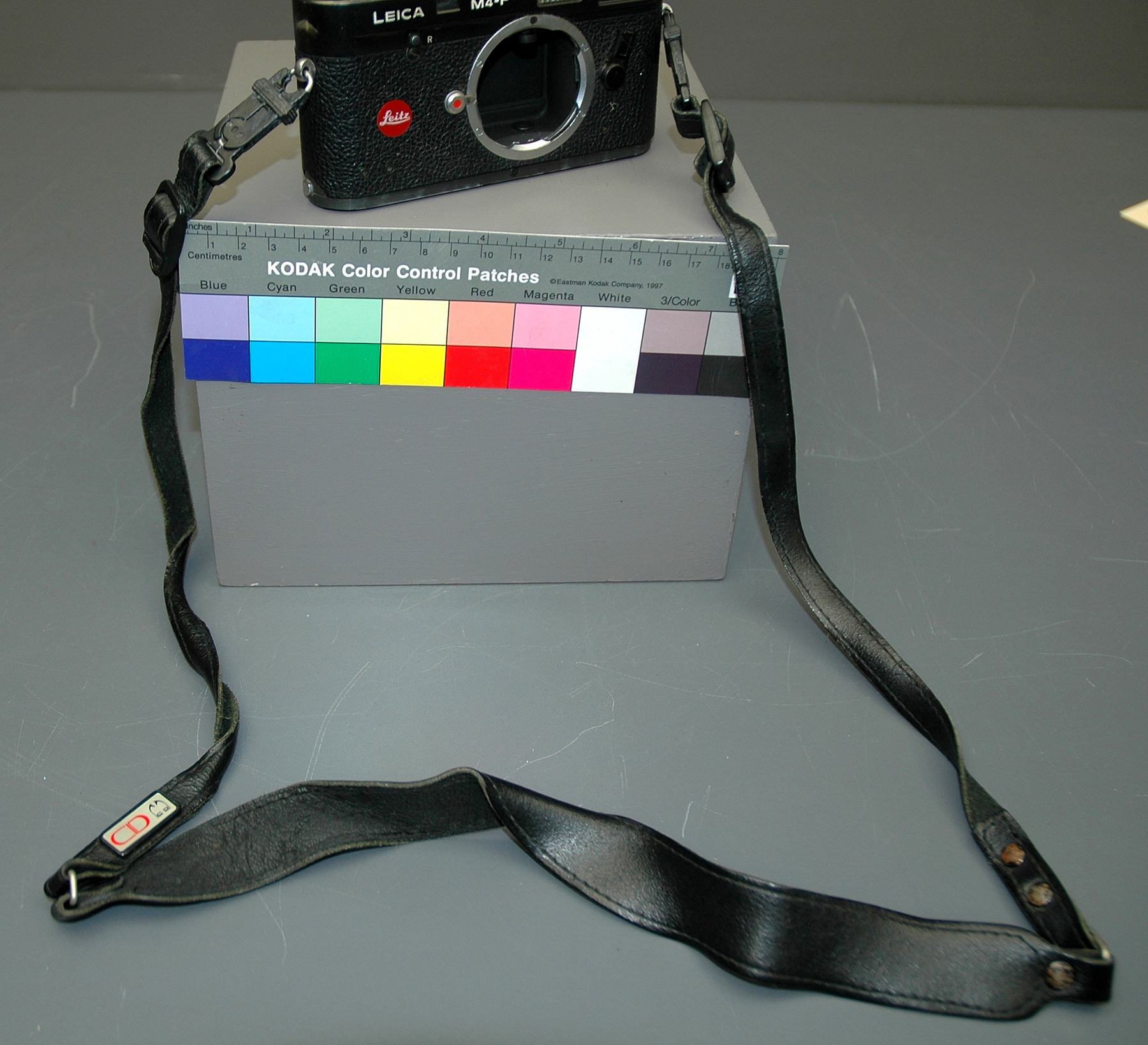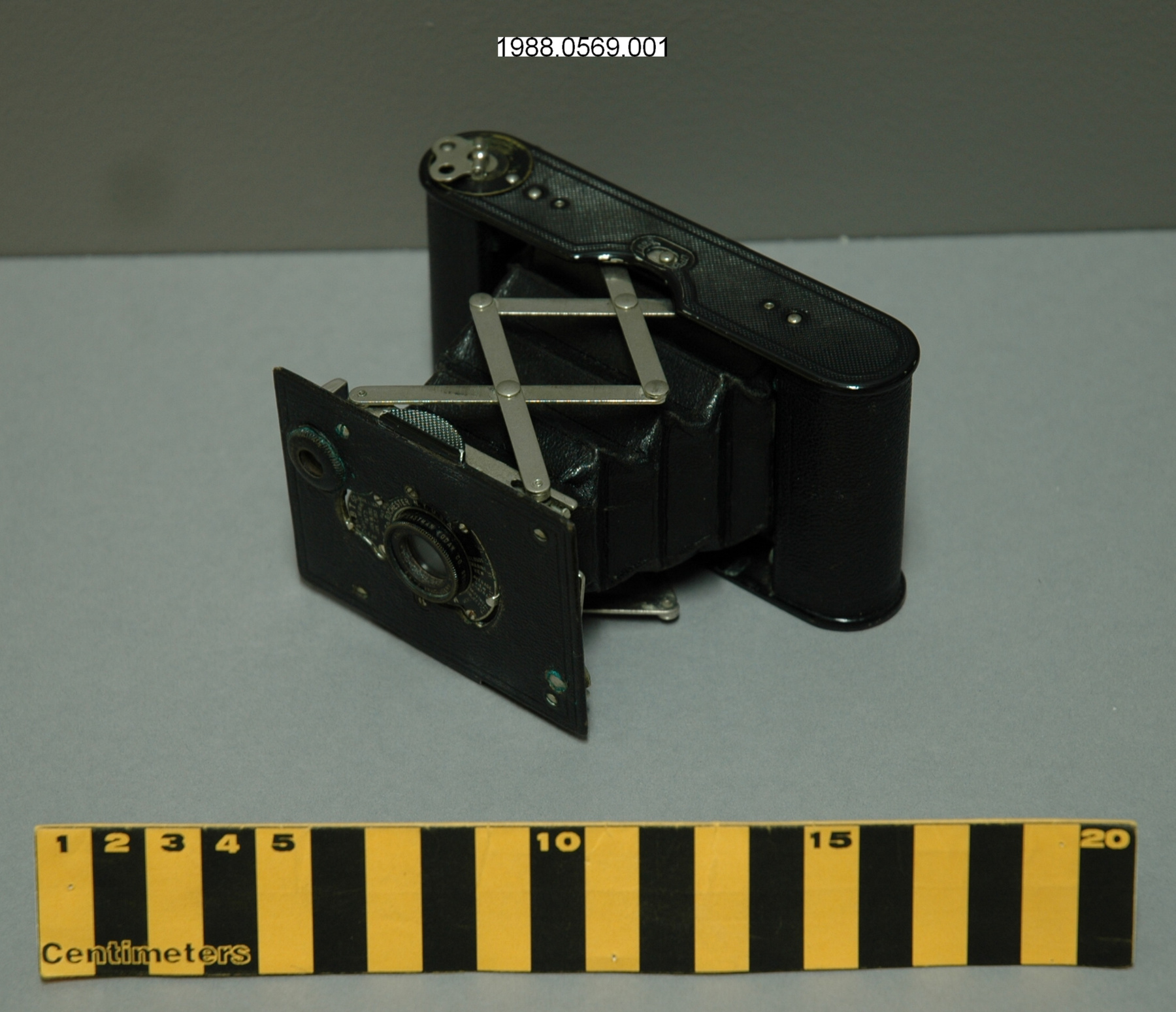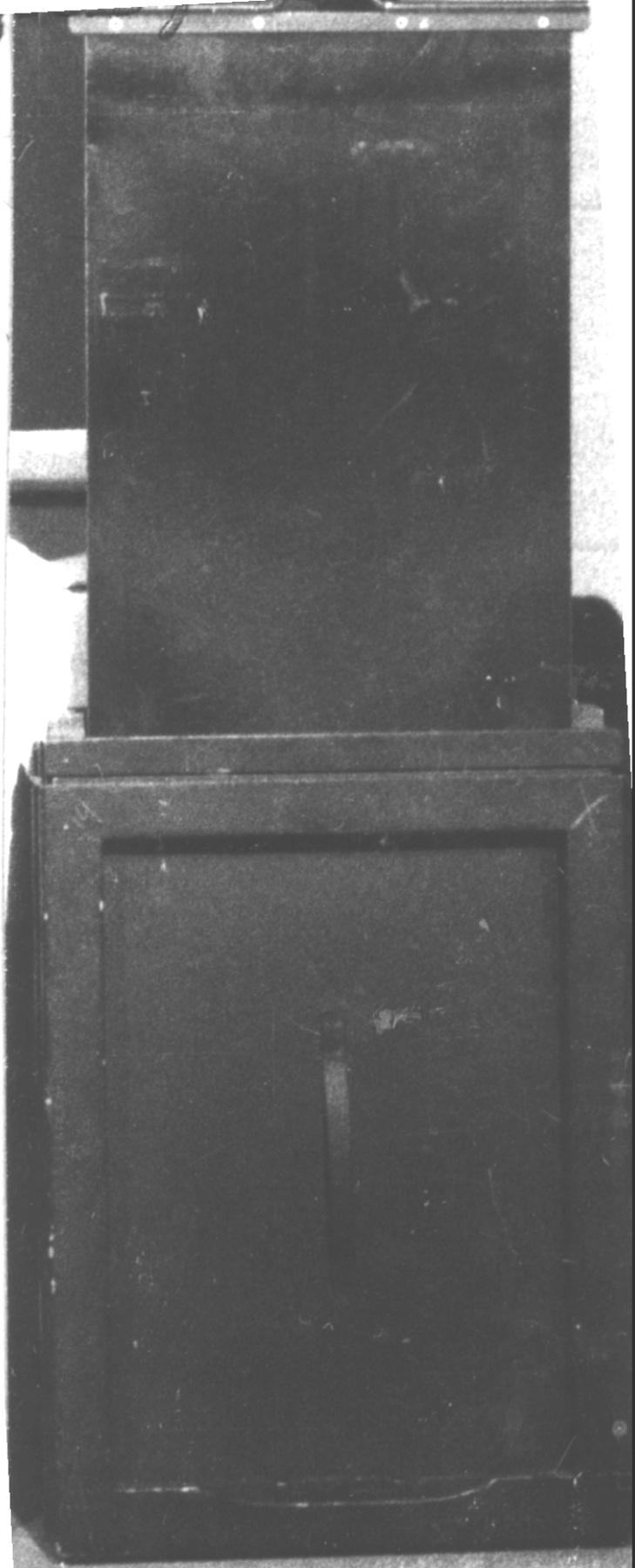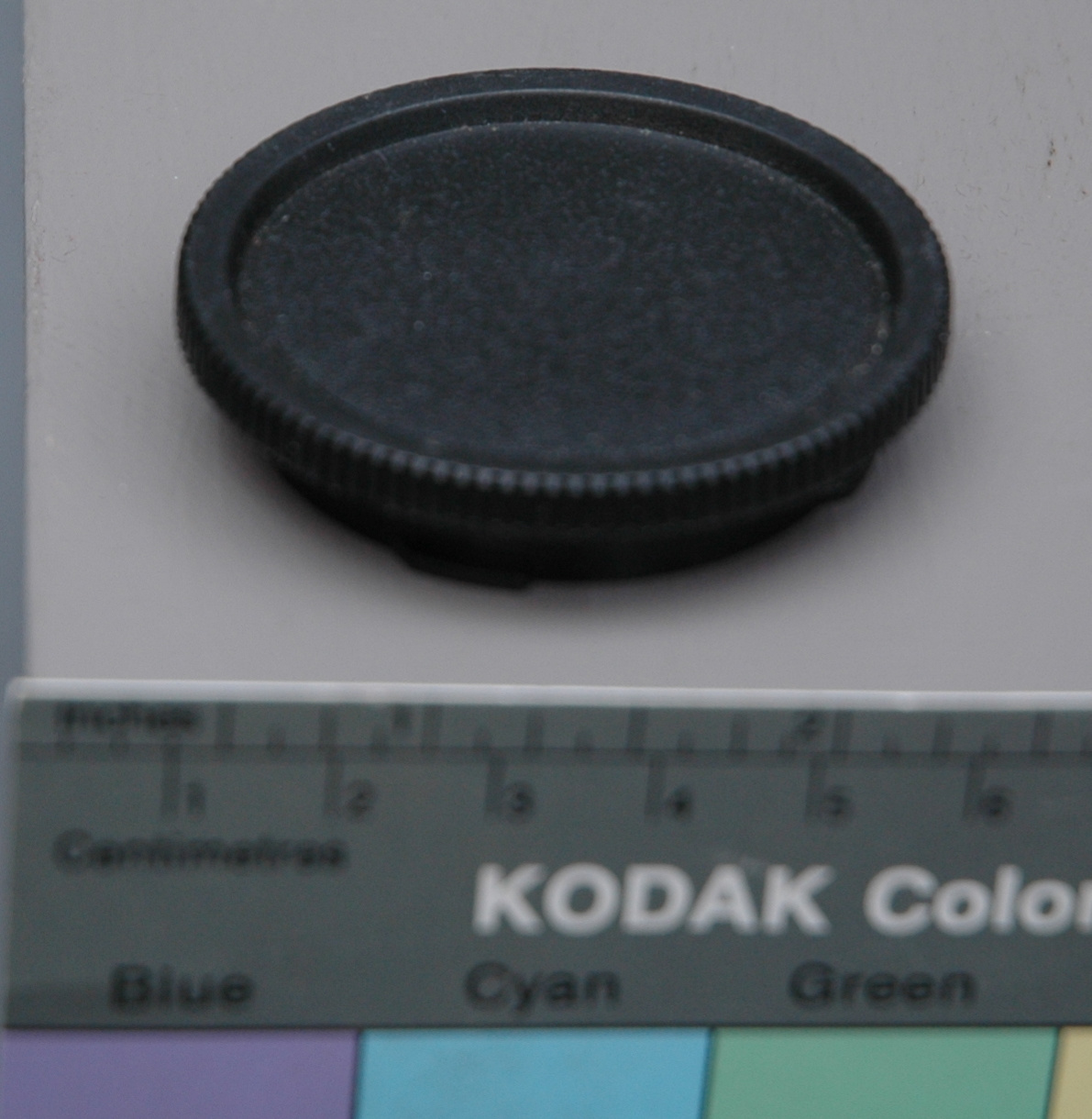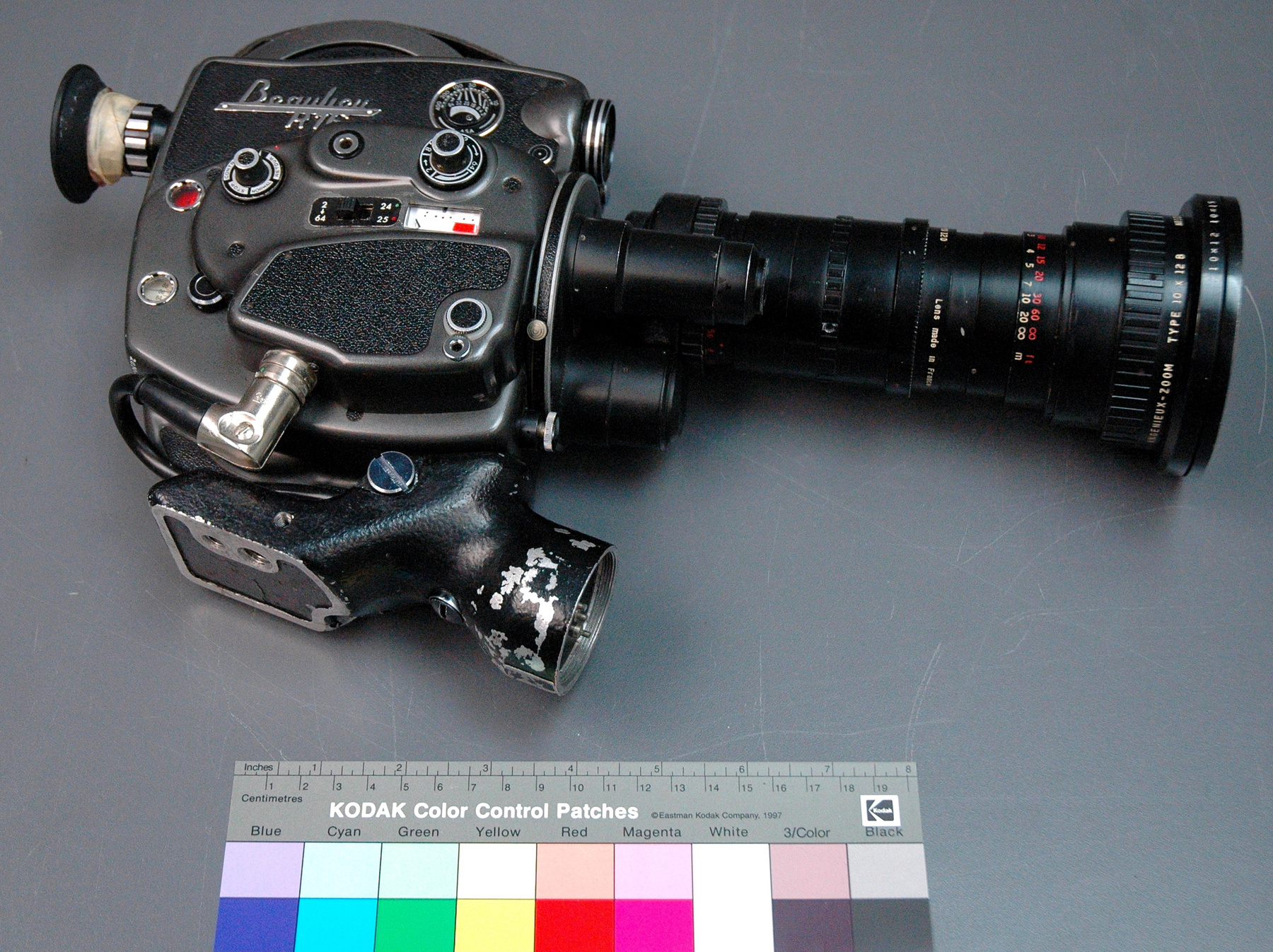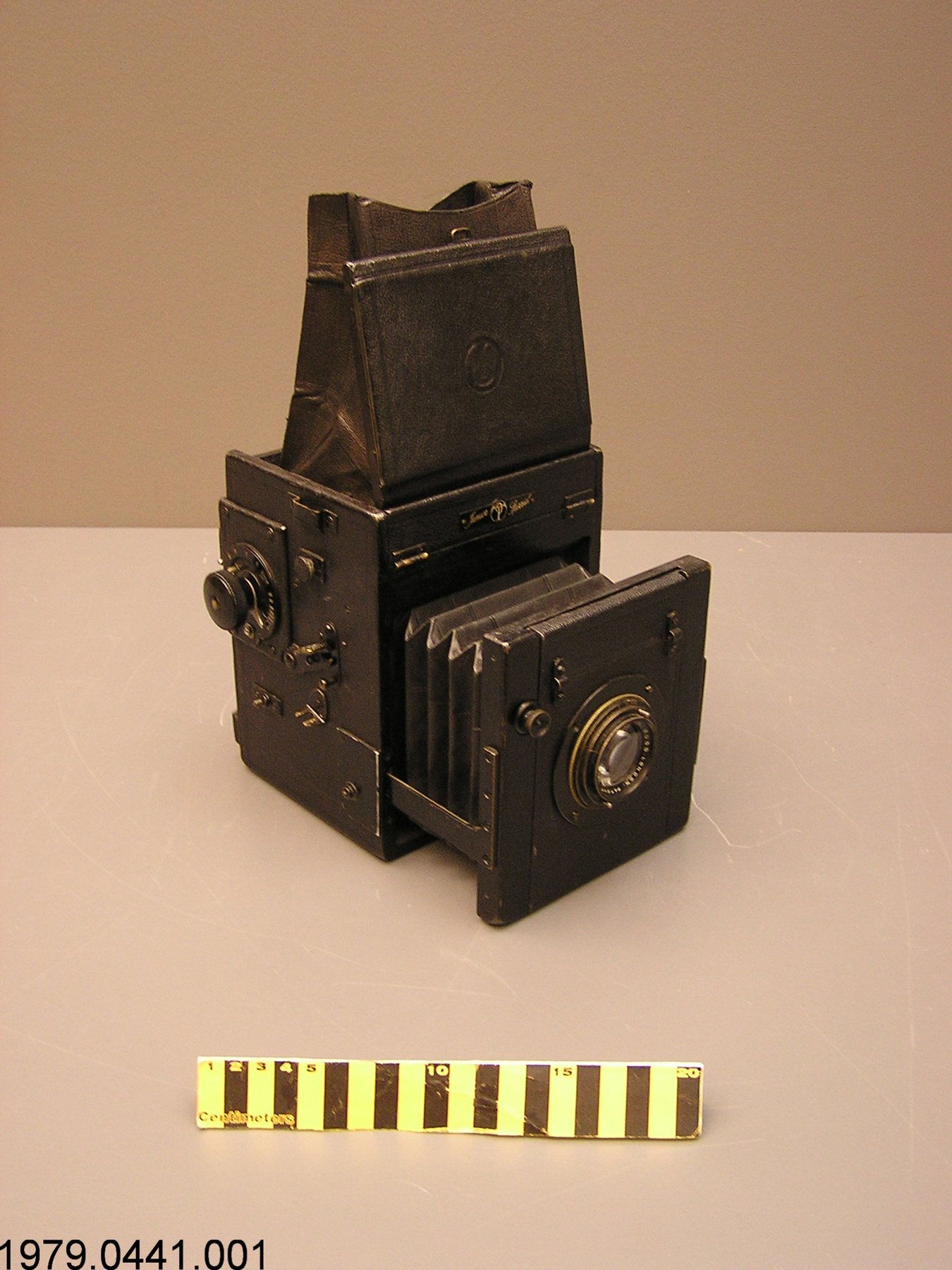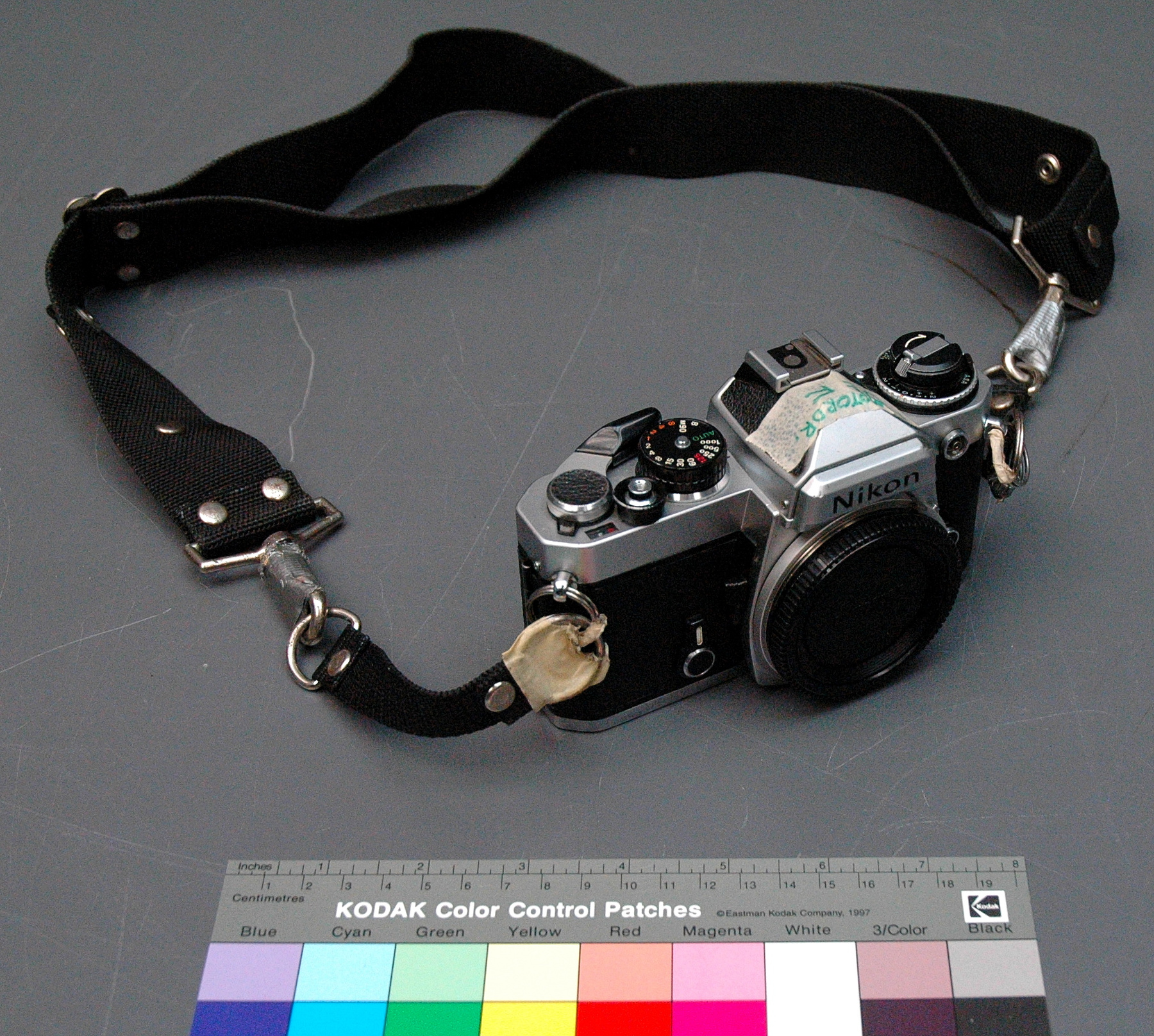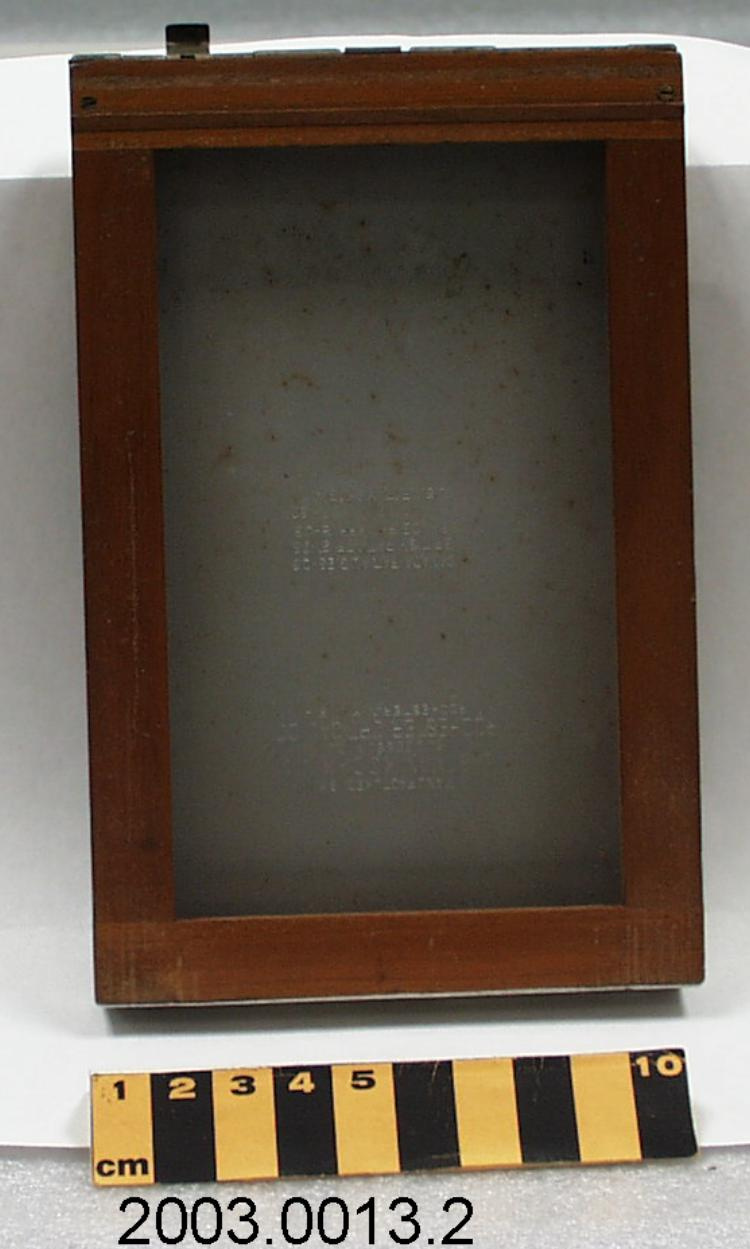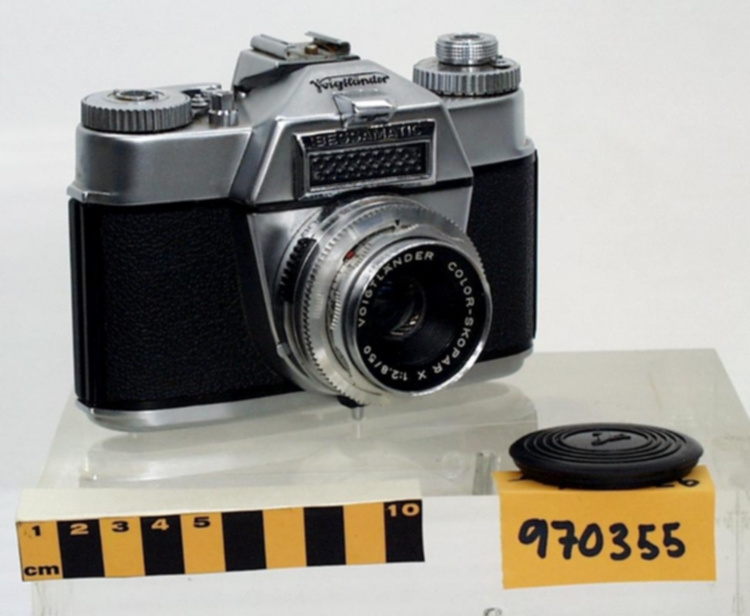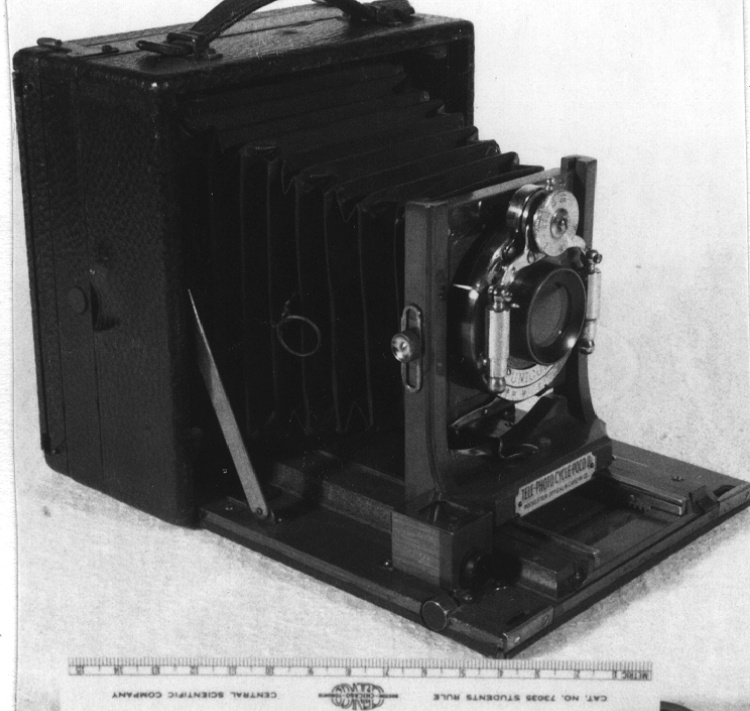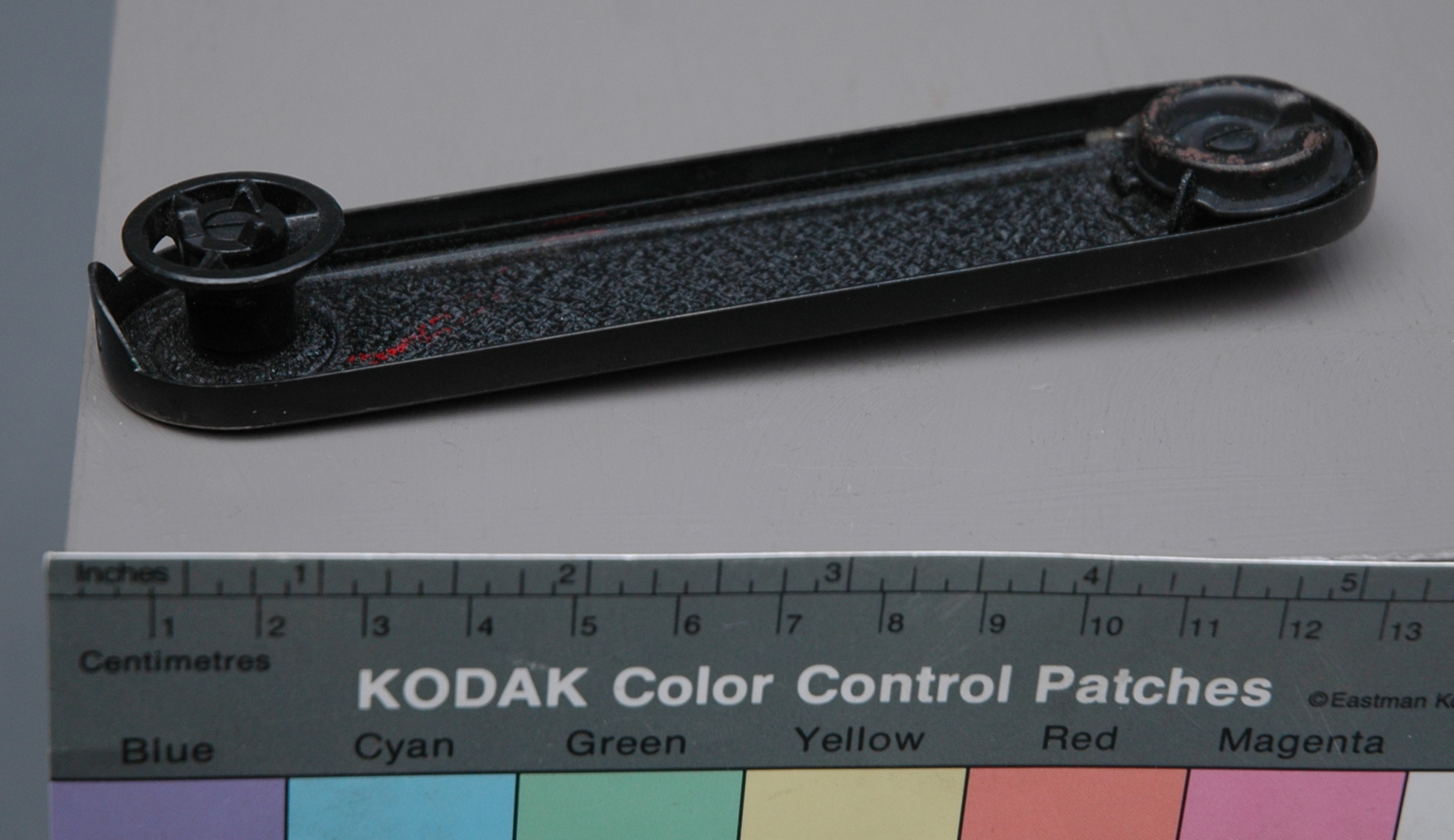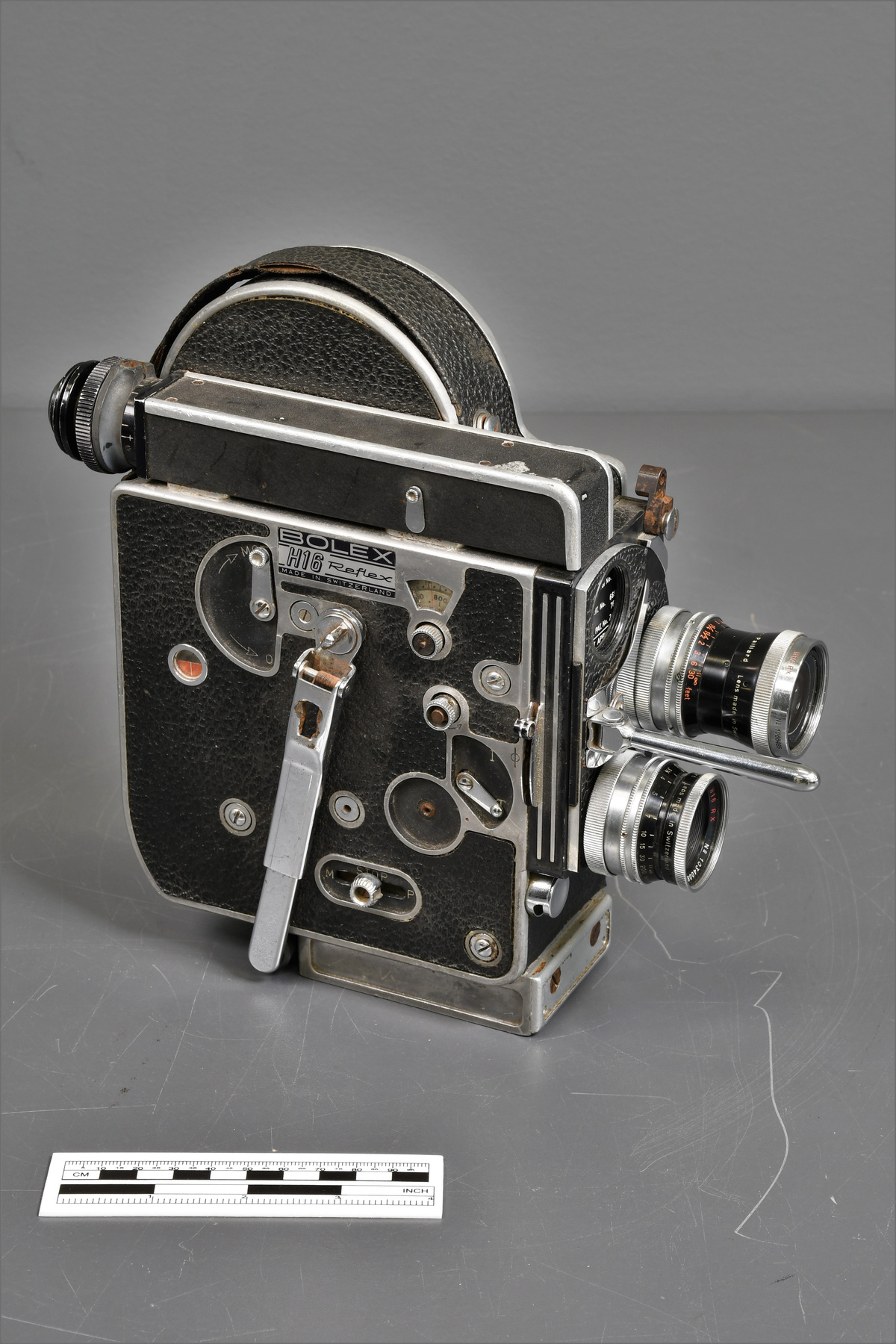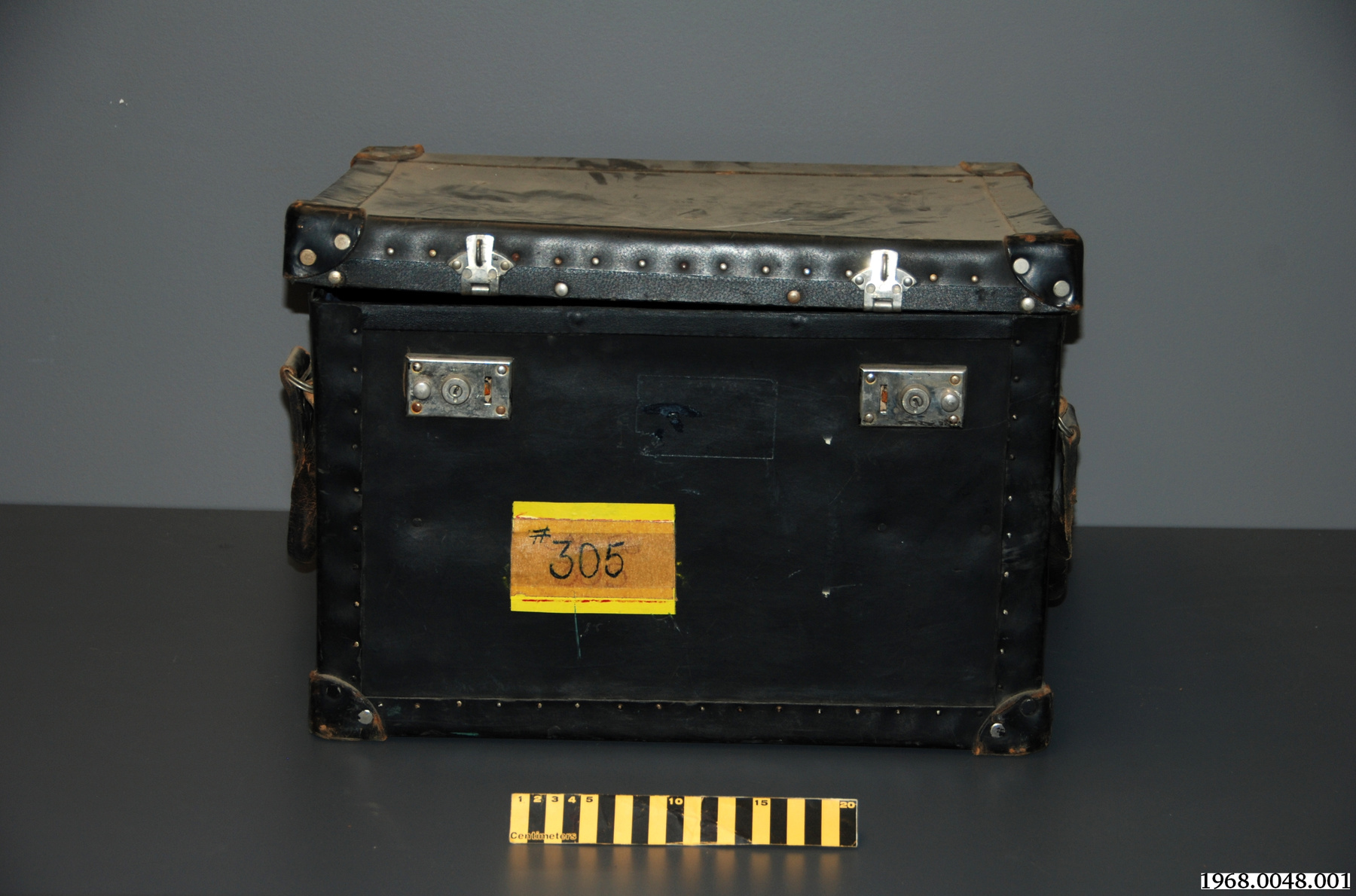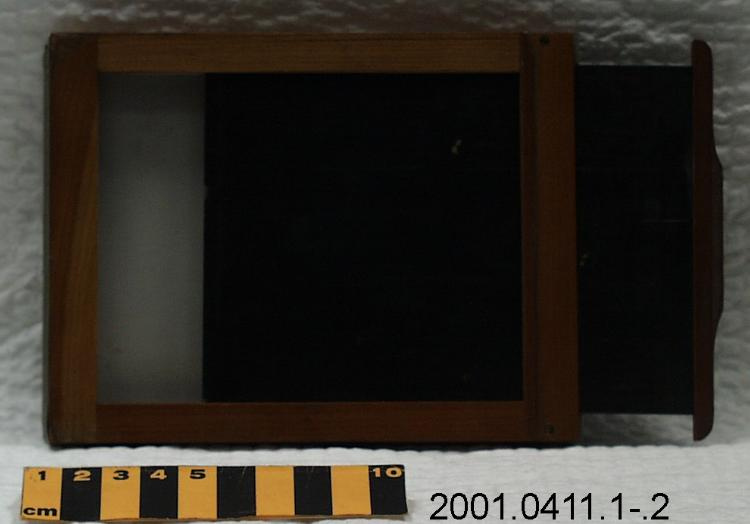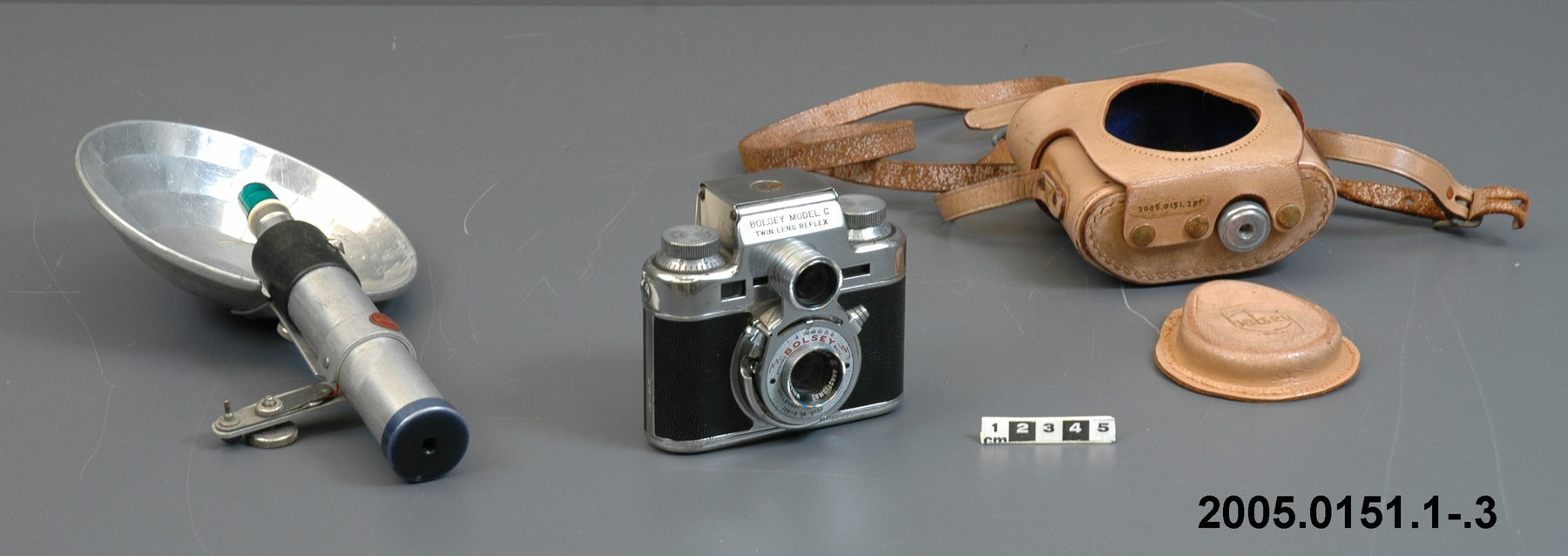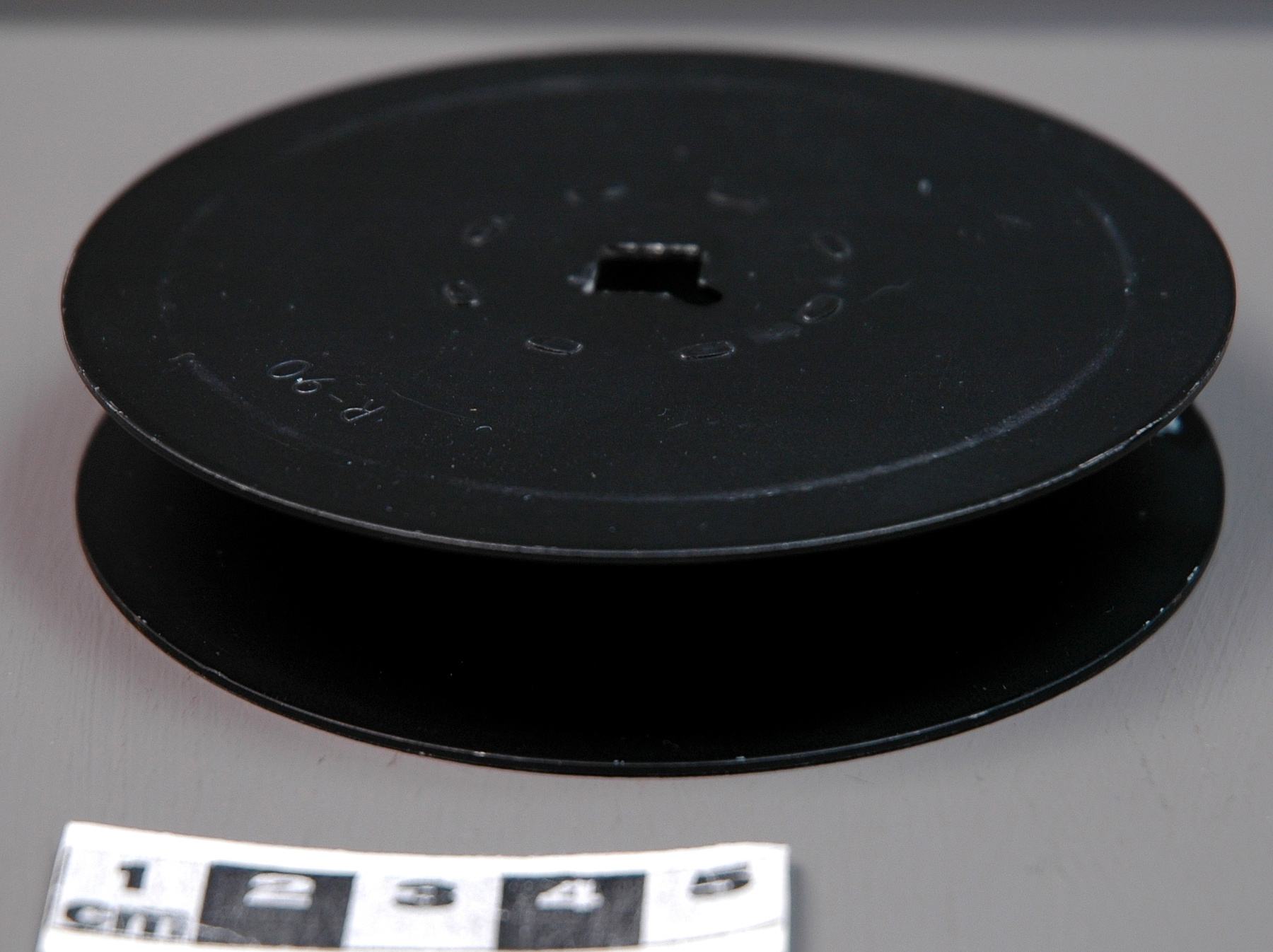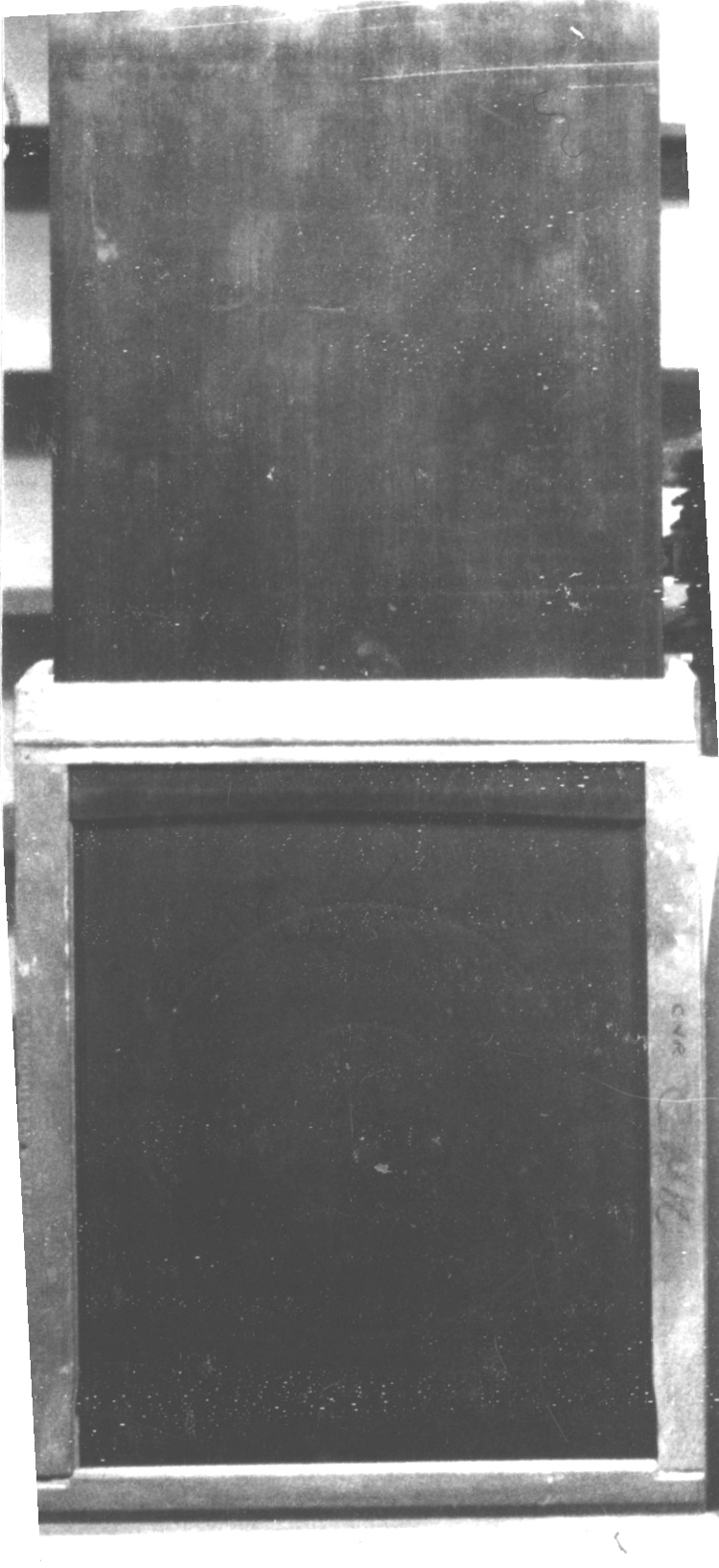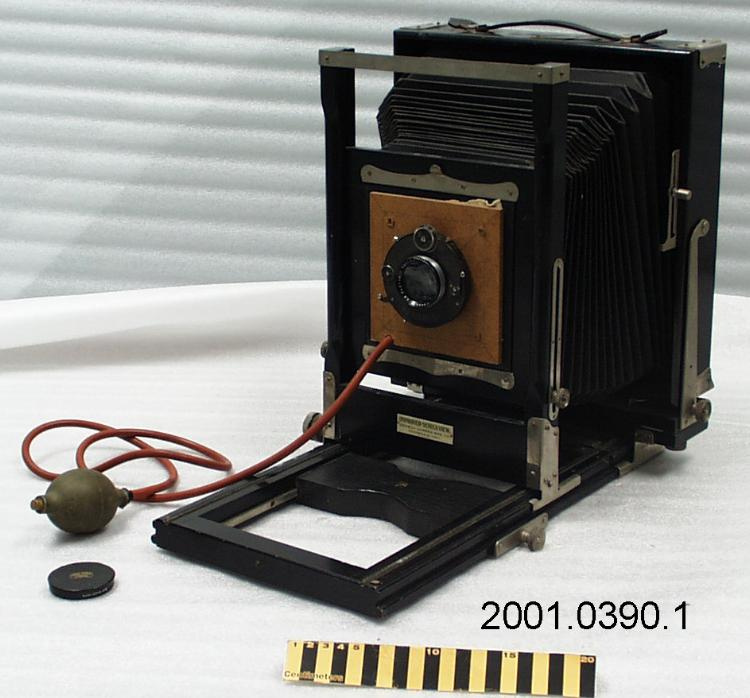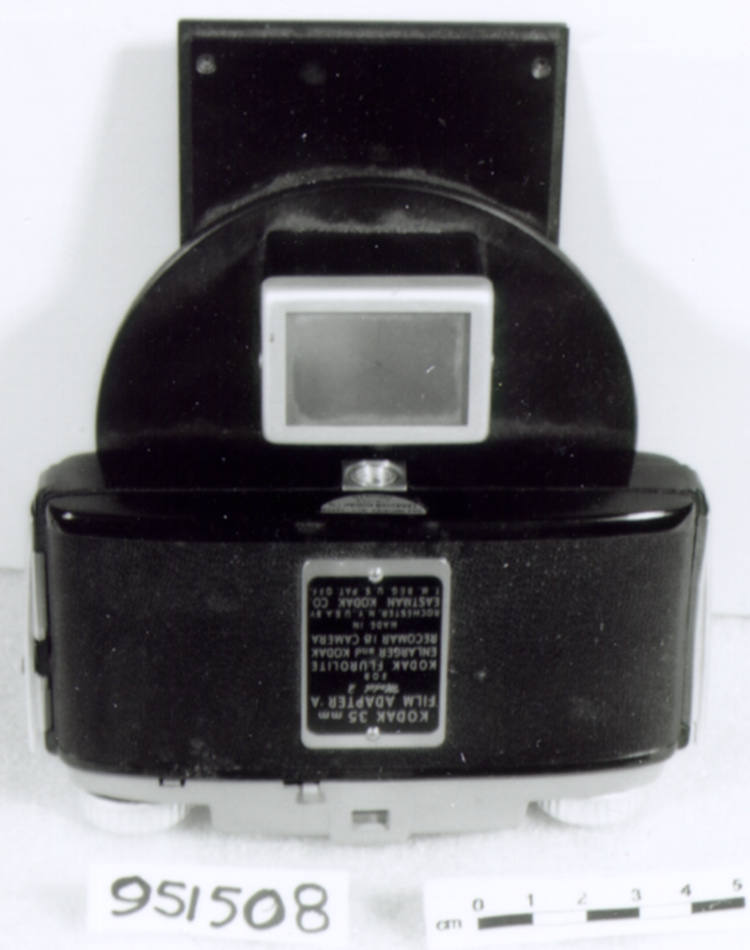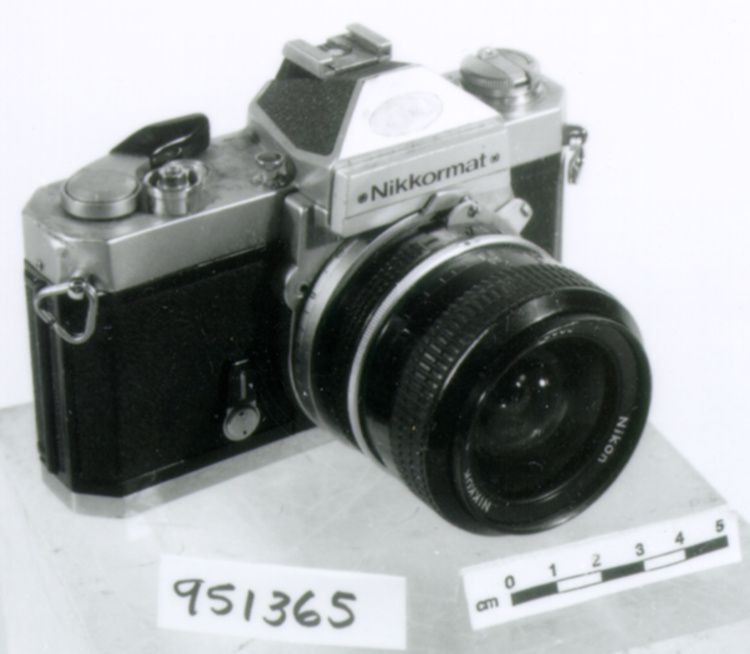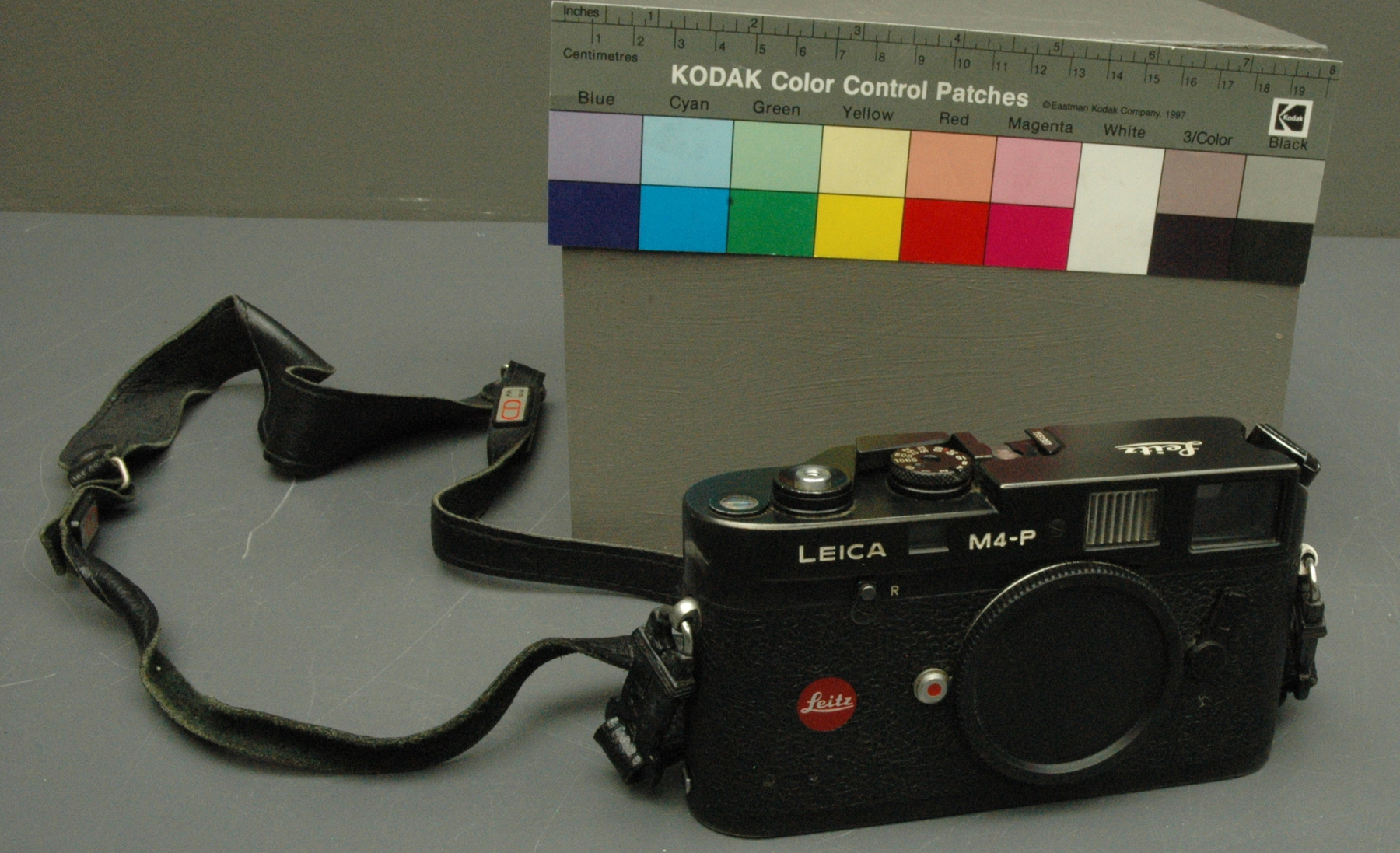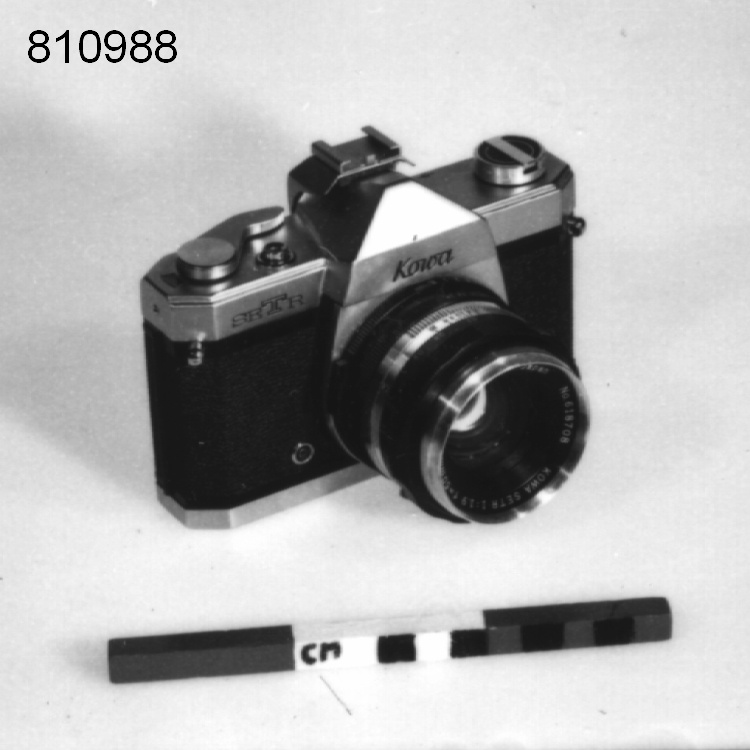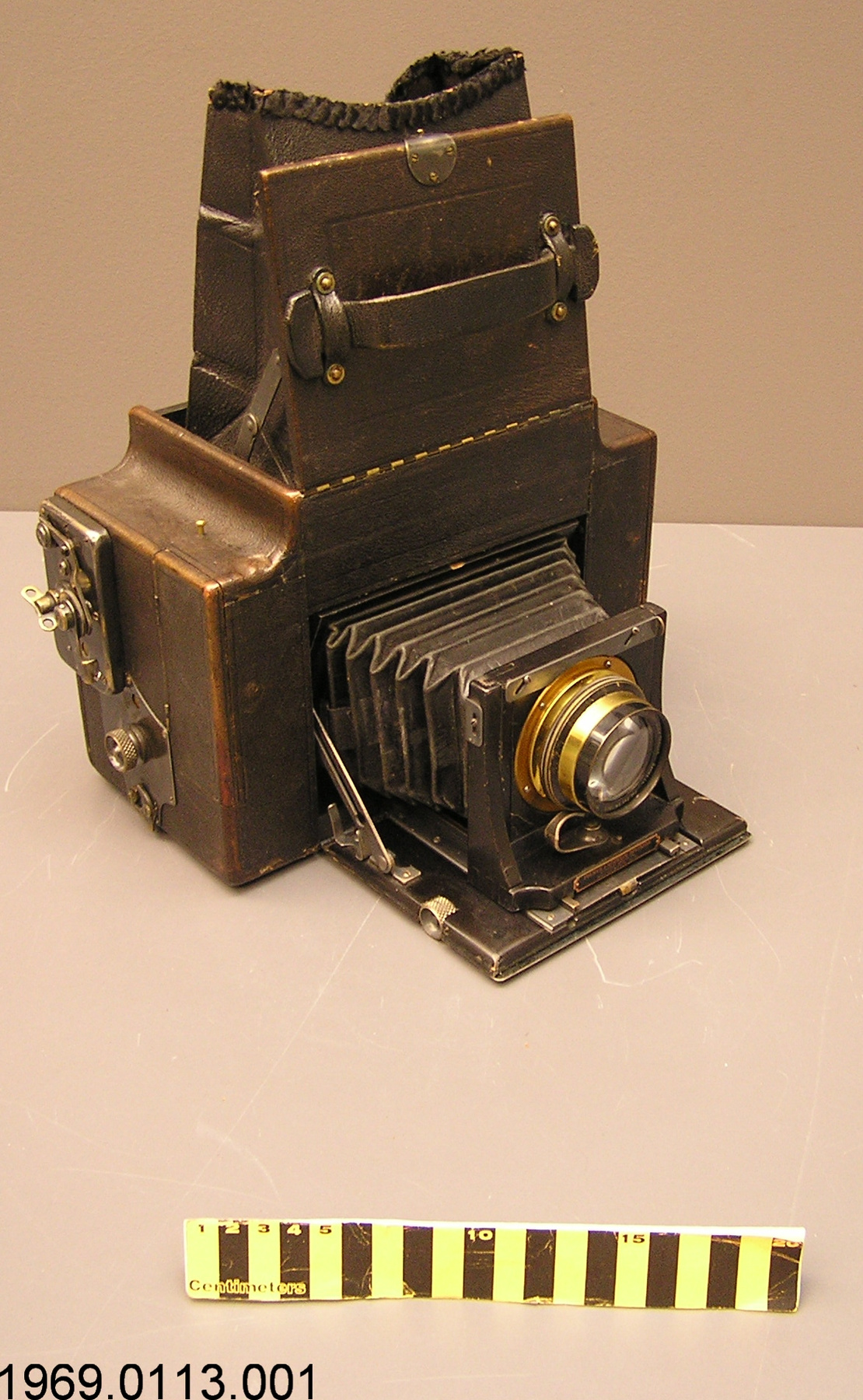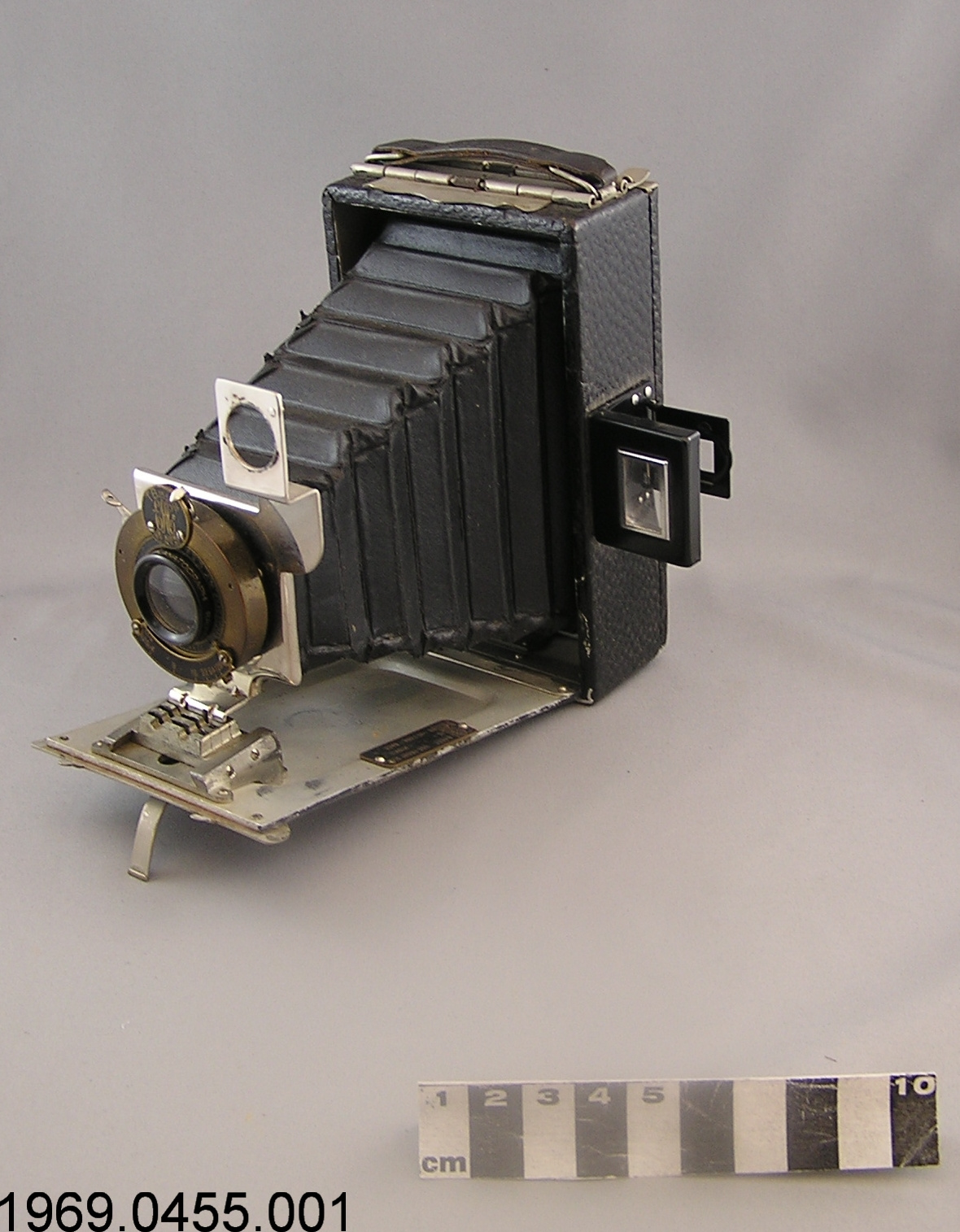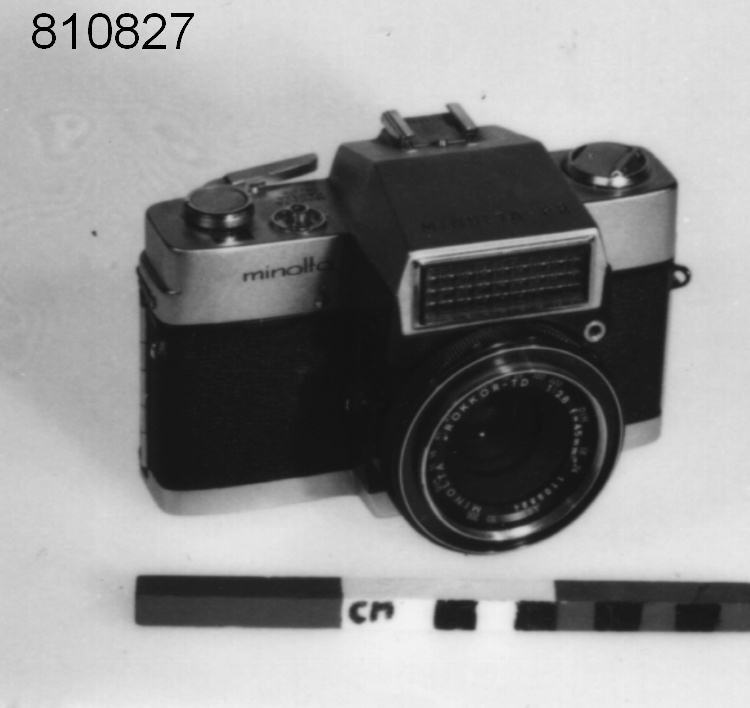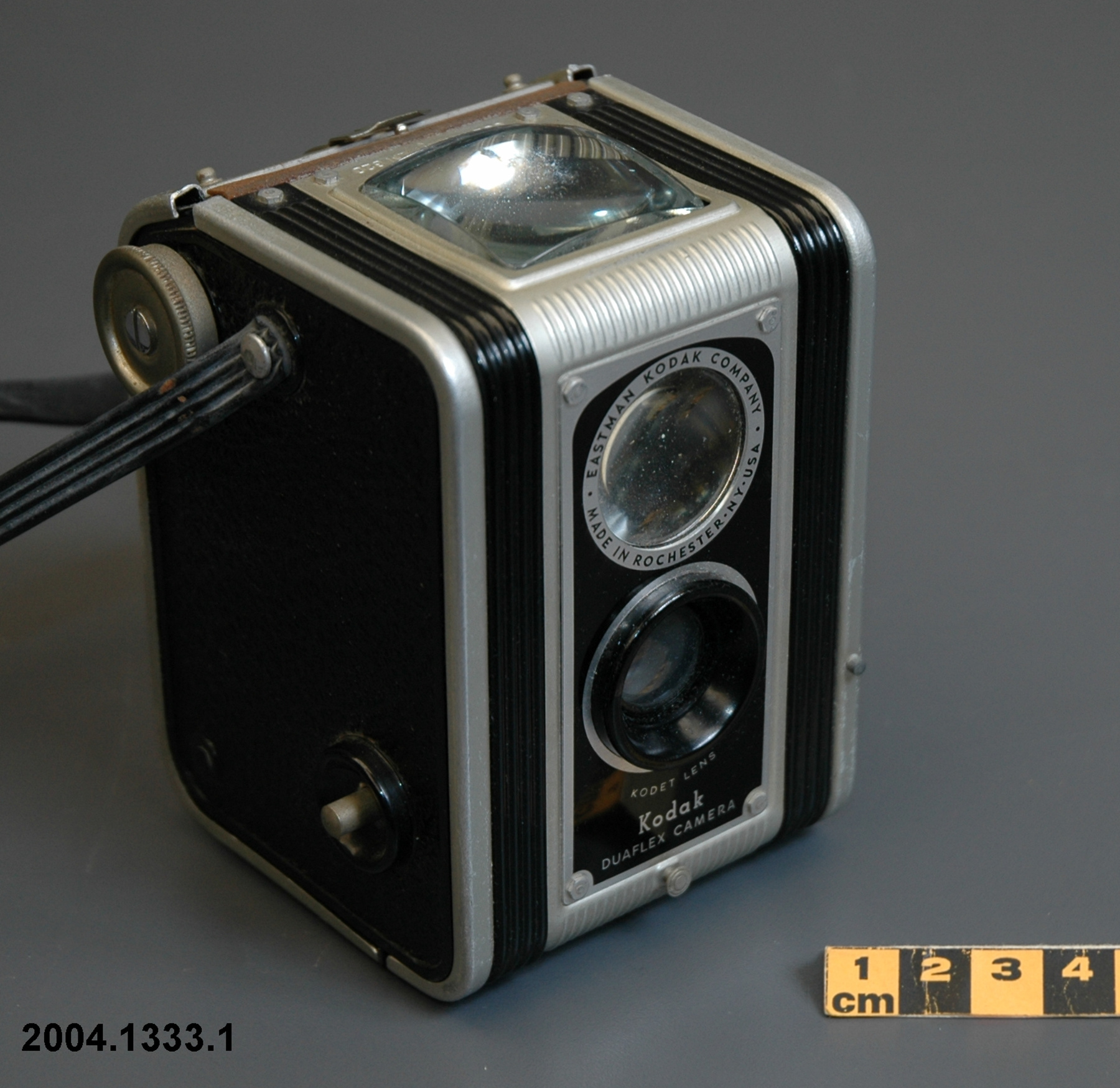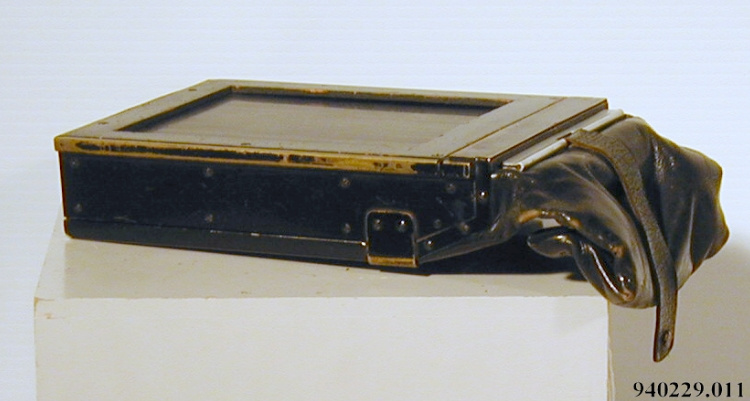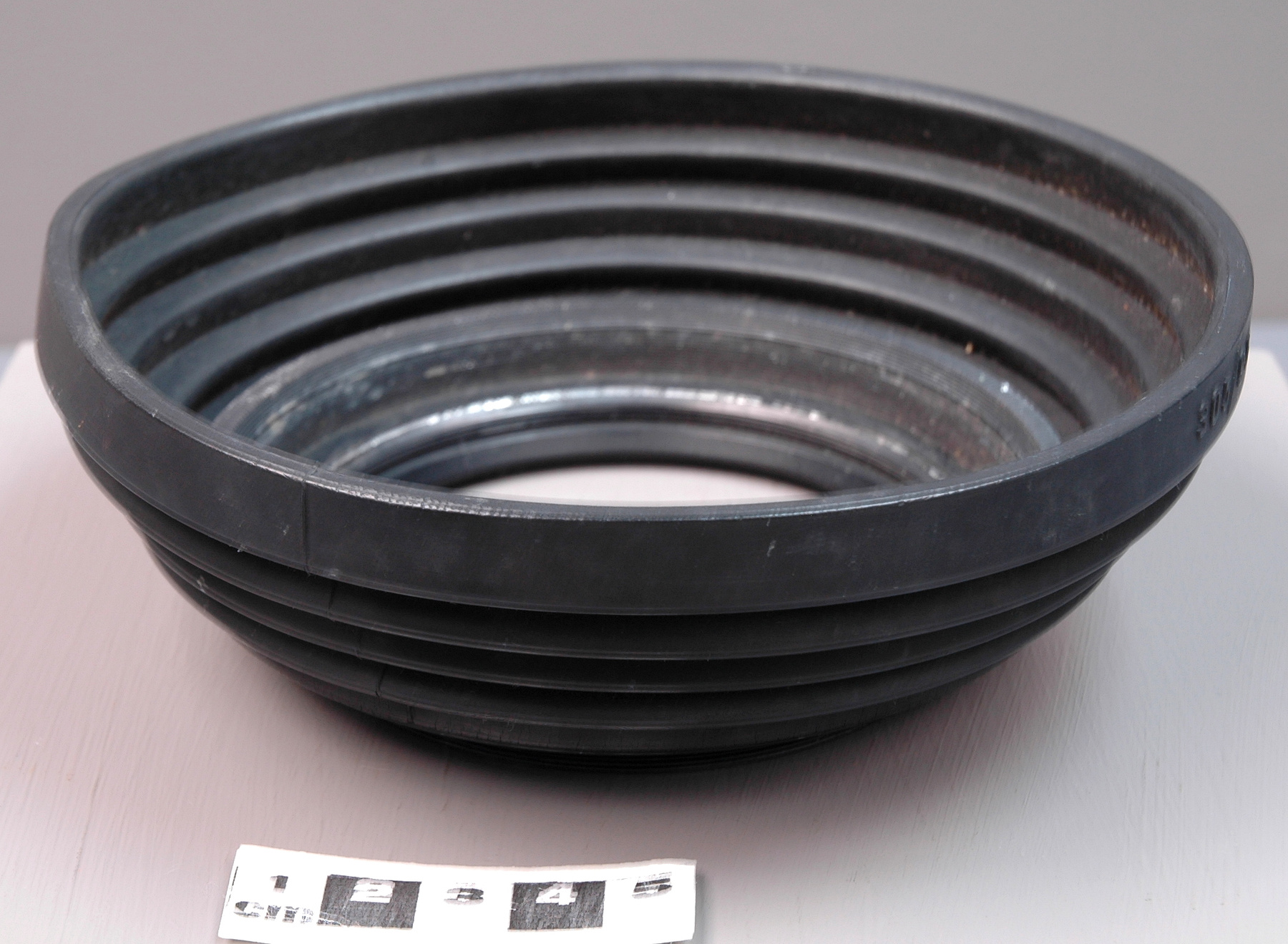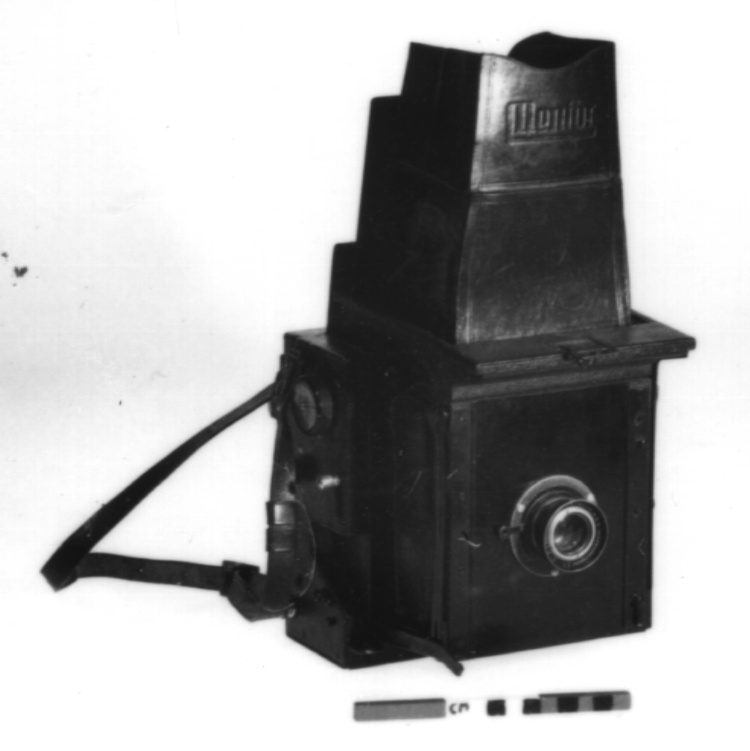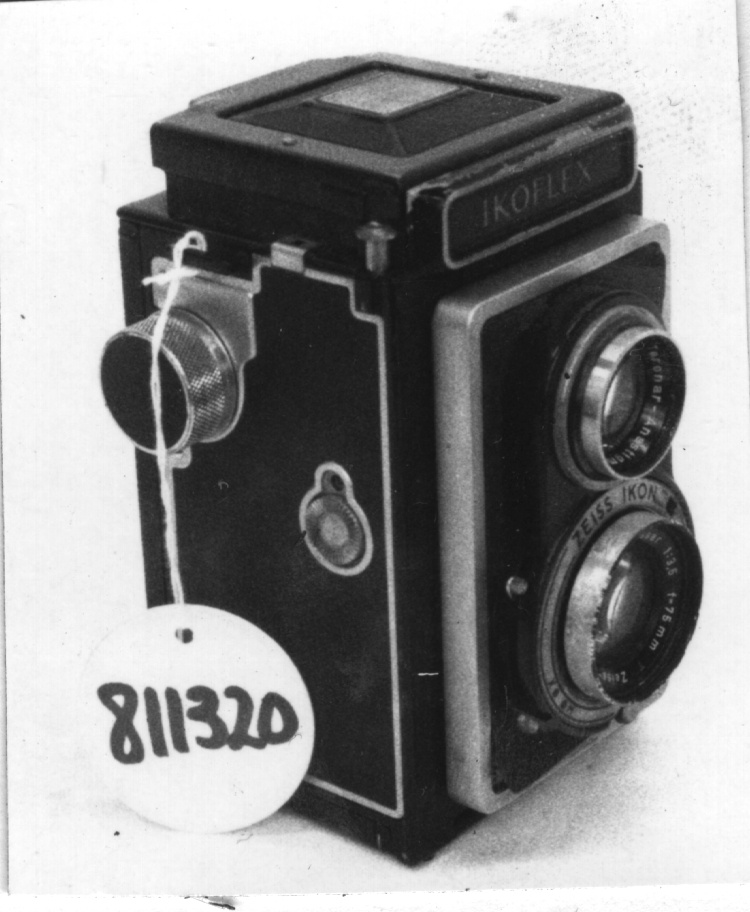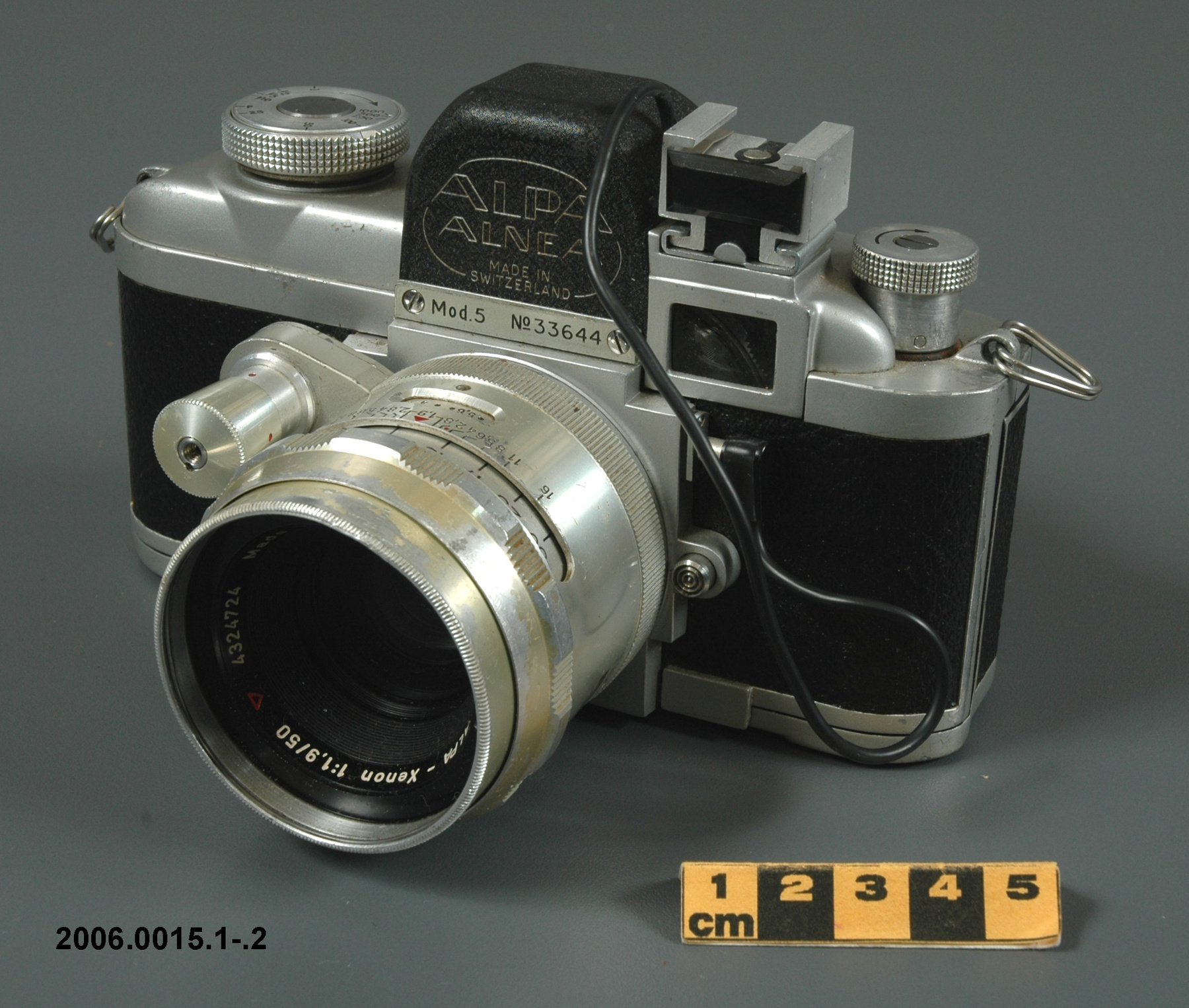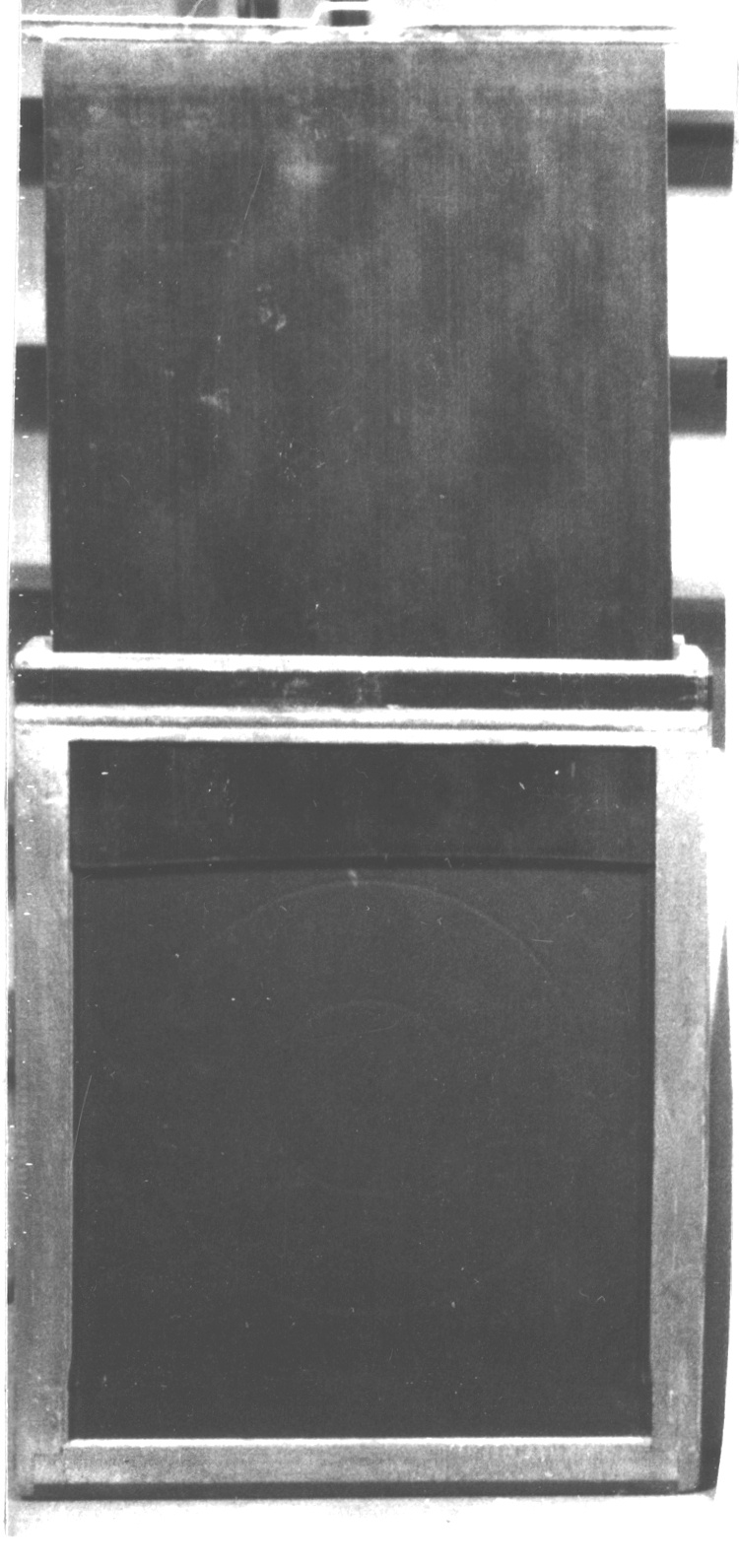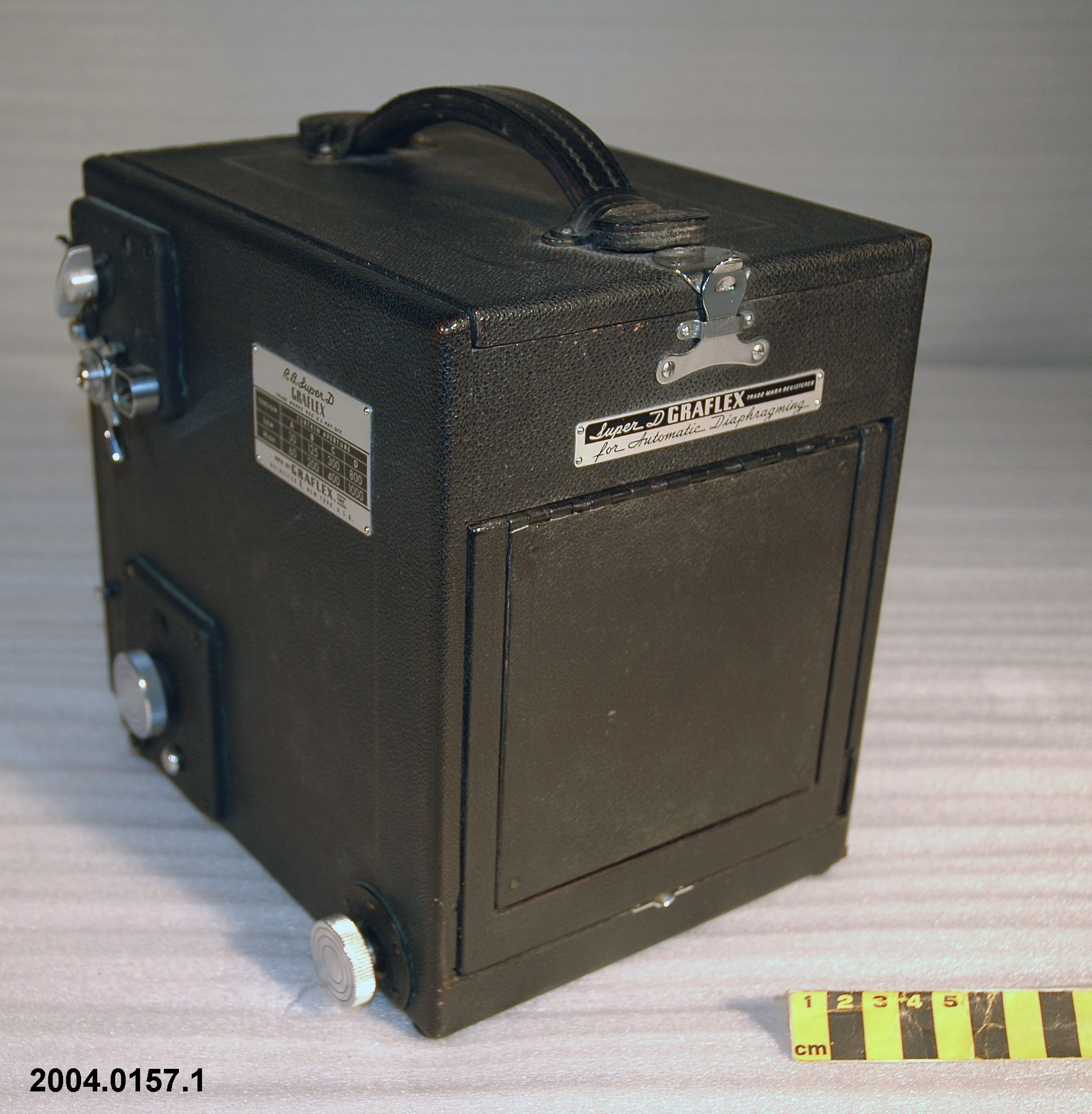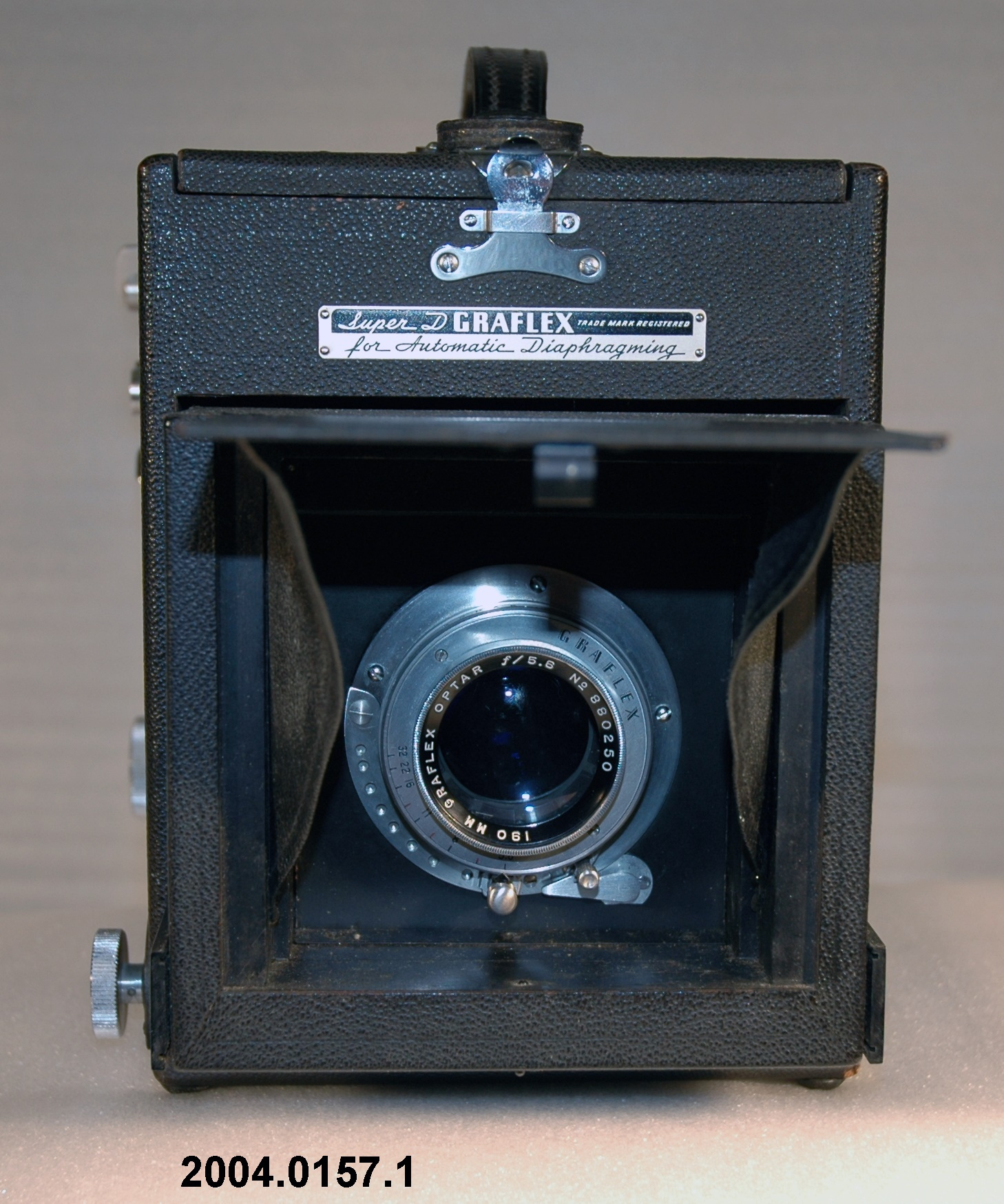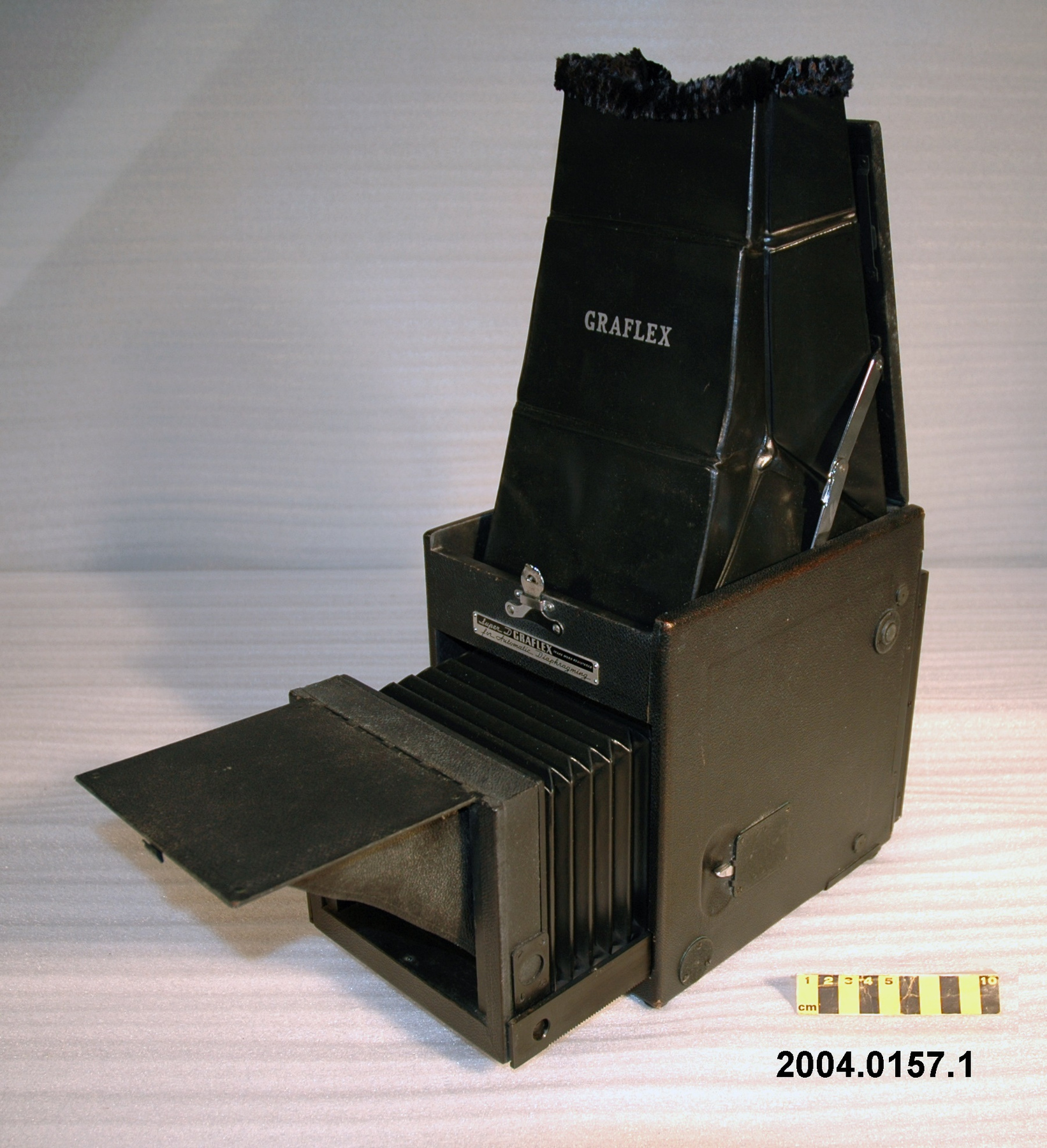Camera
Use this image
Can I reuse this image without permission? Yes
Object images on the Ingenium Collection’s portal have the following Creative Commons license:
Copyright Ingenium / CC BY-NC-ND (Attribution-NonCommercial 4.0 International (CC BY-NC 4.0)
ATTRIBUTE THIS IMAGE
Ingenium,
2004.0157.001
Permalink:
Ingenium is releasing this image under the Creative Commons licensing framework, and encourages downloading and reuse for non-commercial purposes. Please acknowledge Ingenium and cite the artifact number.
DOWNLOAD IMAGEPURCHASE THIS IMAGE
This image is free for non-commercial use.
For commercial use, please consult our Reproduction Fees and contact us to purchase the image.
- OBJECT TYPE
- SLR/4X5
- DATE
- 1954
- ARTIFACT NUMBER
- 2004.0157.001
- MANUFACTURER
- Graflex Inc.
- MODEL
- RB Super D
- LOCATION
- Rochester, New York, United States of America
More Information
General Information
- Serial #
- lens: 880250
- Part Number
- 1
- Total Parts
- 1
- AKA
- N/A
- Patents
- N/A
- General Description
- wood casing covered by pebbled leather/ leather strap/ metal film pack adapter & parts/ glass optical elements
Dimensions
Note: These reflect the general size for storage and are not necessarily representative of the object's true dimensions.
- Length
- 22.7 cm
- Width
- 18.3 cm
- Height
- 24.0 cm
- Thickness
- N/A
- Weight
- N/A
- Diameter
- N/A
- Volume
- N/A
Lexicon
- Group
- Photography
- Category
- Still cameras
- Sub-Category
- N/A
Manufacturer
- AKA
- Graflex
- Country
- United States of America
- State/Province
- New York
- City
- Rochester
Context
- Country
- Canada
- State/Province
- Unknown
- Period
- circa 1954+
- Canada
-
Example of a single lens reflex camera designed for use by professional & sophisticated amateur photographers. This particular camera was owned & used by Clovis Brisebois of Hudson, Quebec, an advanced amateur or semi-professional photographer who purchased the camera in 1954. - Function
-
Device used to record still images on light sensitive film or plate. - Technical
-
Single lens reflex viewing was one of the most important developments in the history of the camera. A single lens reflex (SLR) camera allows through the lens viewing & focusing by reflecting incoming light from the lens upward to a viewing screen using a mirror or mirror & prism placed in front of the film or plate. At the moment of shutter release, this reflective assembly is moved out of the way to allow the light to strike the photosensitive material behind. Because the photographer is able to view the scene through the lens itself, SLR cameras allow very precise composition & focusing even on moving objects. They are especially well suited to photography with long focal length lenses, where accurate focusing is more critical than with the short focus lenses widely used on consumer point & shoot cameras. Large numbers of reflex cameras began appearing in the 1890s, the most influential design being the Graflex (1898). Designed by William F. Folmer, the main feature included a focal plane shutter, a folding hood for the focusing screen, a compact almost cubical body & a lens that was extended on a bellows operated by rack & pinion. Most SLR cameras before 1914 resembled the Graflex, which became especially popular among press photographers. The Graflex R.B. Super D. camera was a refinement of the R.B. Graflex Series D, which was introduced in 1928. Both featured a revolving back that allowed a vertical or horizontal orientation of the picture frame without having to turn the camera on its side. The Super D. was the last Graflex SLR made: the 3.25 x 4.25 camera was introduced in 1941, the 4X5 model in 1948. The Super D differed from Series D in having an automatic diaphragm (full open for focusing, automatically stopping down to preset opening when shutter released) & an Ektalite field lens, which made the image in the viewing screen brighter and made focusing easier & more precise even in subdued light. As well it had built0in flash synchronization. The Super D was ideal for scenic work & for fine portraiture in natural light or with a flash. This example if fitted with a Graflex Optar f/5.6 190 mm lens & a film pack adapter back, though the Super D could also take a Kodak Ektar lens & a variety of film & plate attachments. - Area Notes
-
Unknown
Details
- Markings
- plate on side reads "R. B. Super D/ GRAFLEX/ TRADE MARKS REG. U.S. PAT. OFF." & "MFD. BY GRAFLEX, INC./ ROCHESTER 8, NEW YORK, U.S.A."/ plate on front reads "Super D [script] GRAFLEX TRADE MARKS REGISTERED/ for Automatic Diaphragming"/ incised lettering on lens housing reads "GRAFLEX" with incised number 5.6 to 32; white lettering reads "190 MM GRAFLEX OPTAR f/5.6 No 880250"/ plate on film holder reads "CAT. NO. 1134/ GRAFLEX (R) FILM PACK ADAPTER/ U.S. PAT. 2,056,144 2,353,895/ MANUFACTURED BY GRAFLEX, INC. ROCHESTER 8, N.Y., U.S.A."/ plate inside lens compartment reads "MF'D UNDER ONE OR MORE OF THE FOLLOWING U.S.A. PATS./ 2,029238 2,669,401 2,304,035/ 2,236,925 2,273,386/ OTHER PATS. PENDING"
- Missing
- appears complete
- Finish
- black body covering & strap/ black painted, plated & metallic parts
- Decoration
- N/A
CITE THIS OBJECT
If you choose to share our information about this collection object, please cite:
Graflex Inc., Camera, circa 1954, Artifact no. 2004.0157, Ingenium – Canada’s Museums of Science and Innovation, http://collections.ingeniumcanada.org/en/id/2004.0157.001/
FEEDBACK
Submit a question or comment about this artifact.
More Like This
